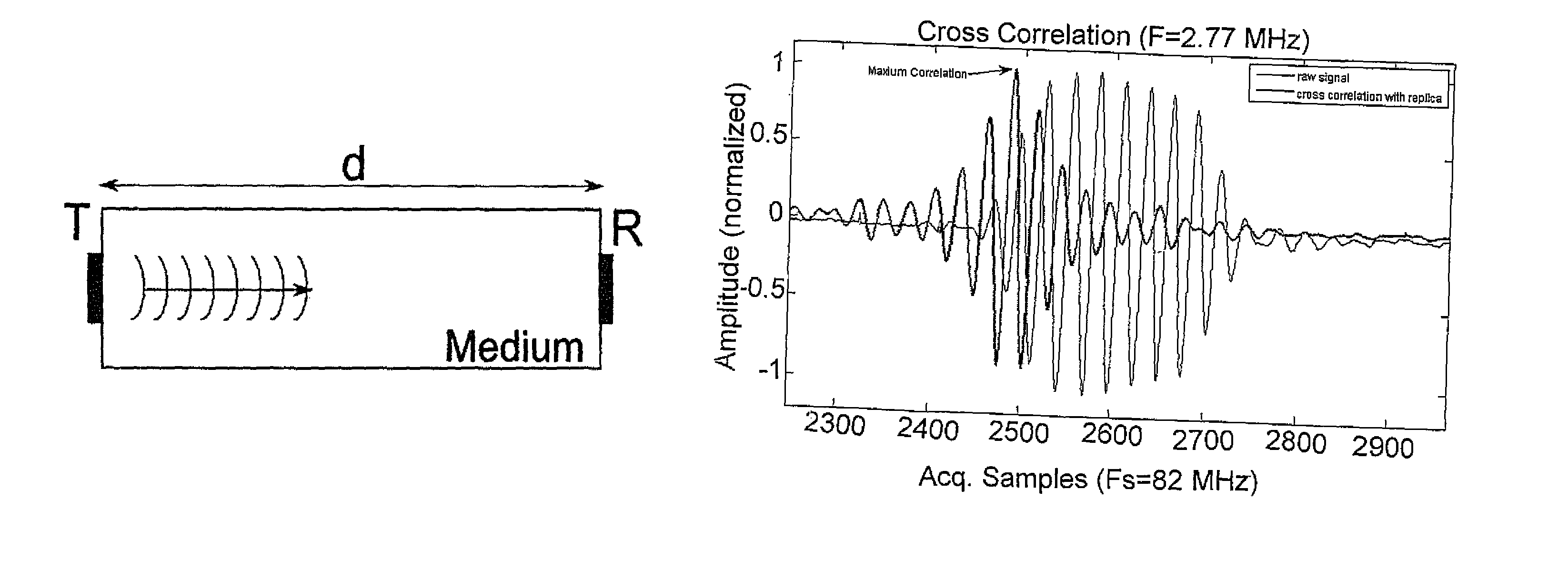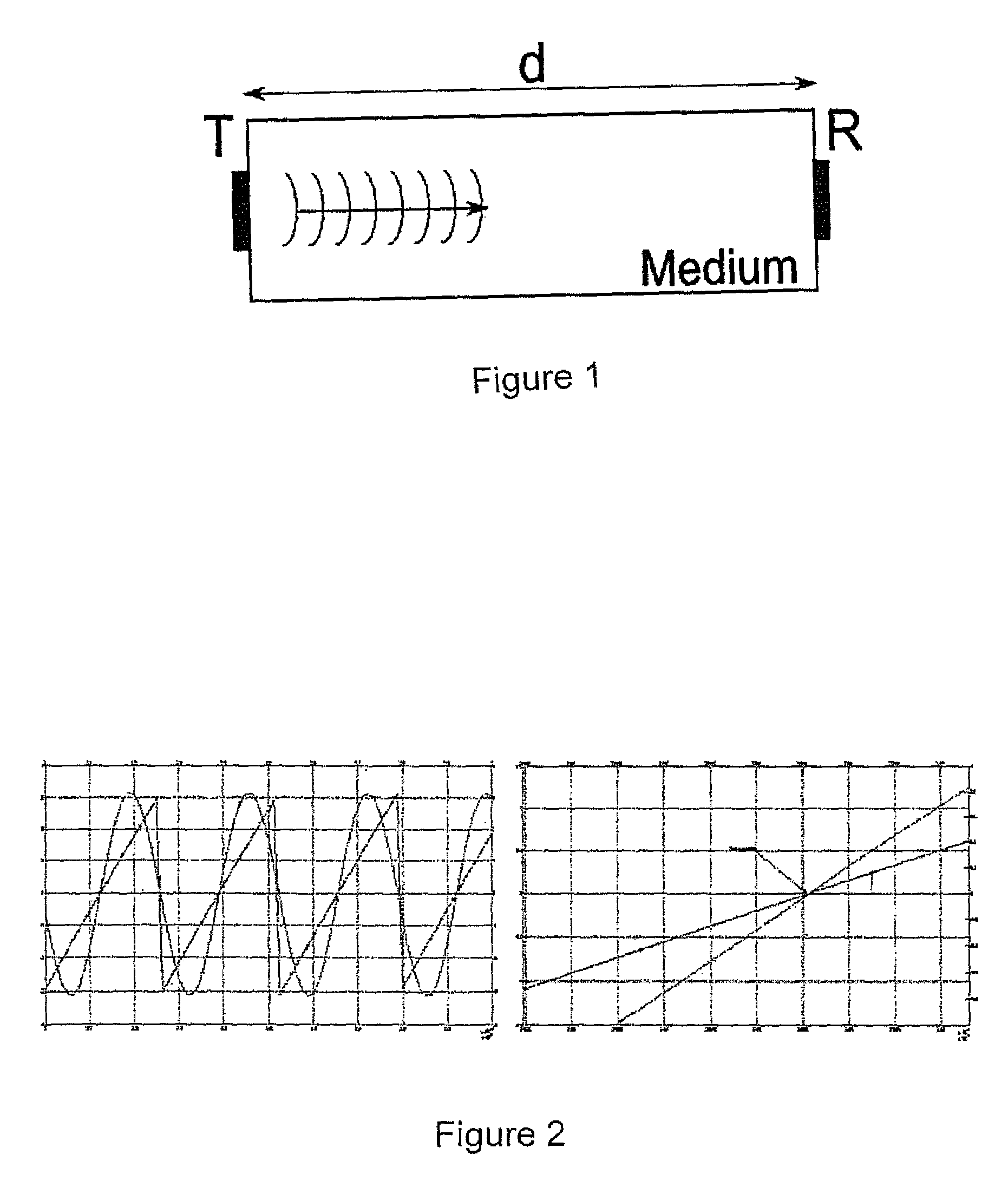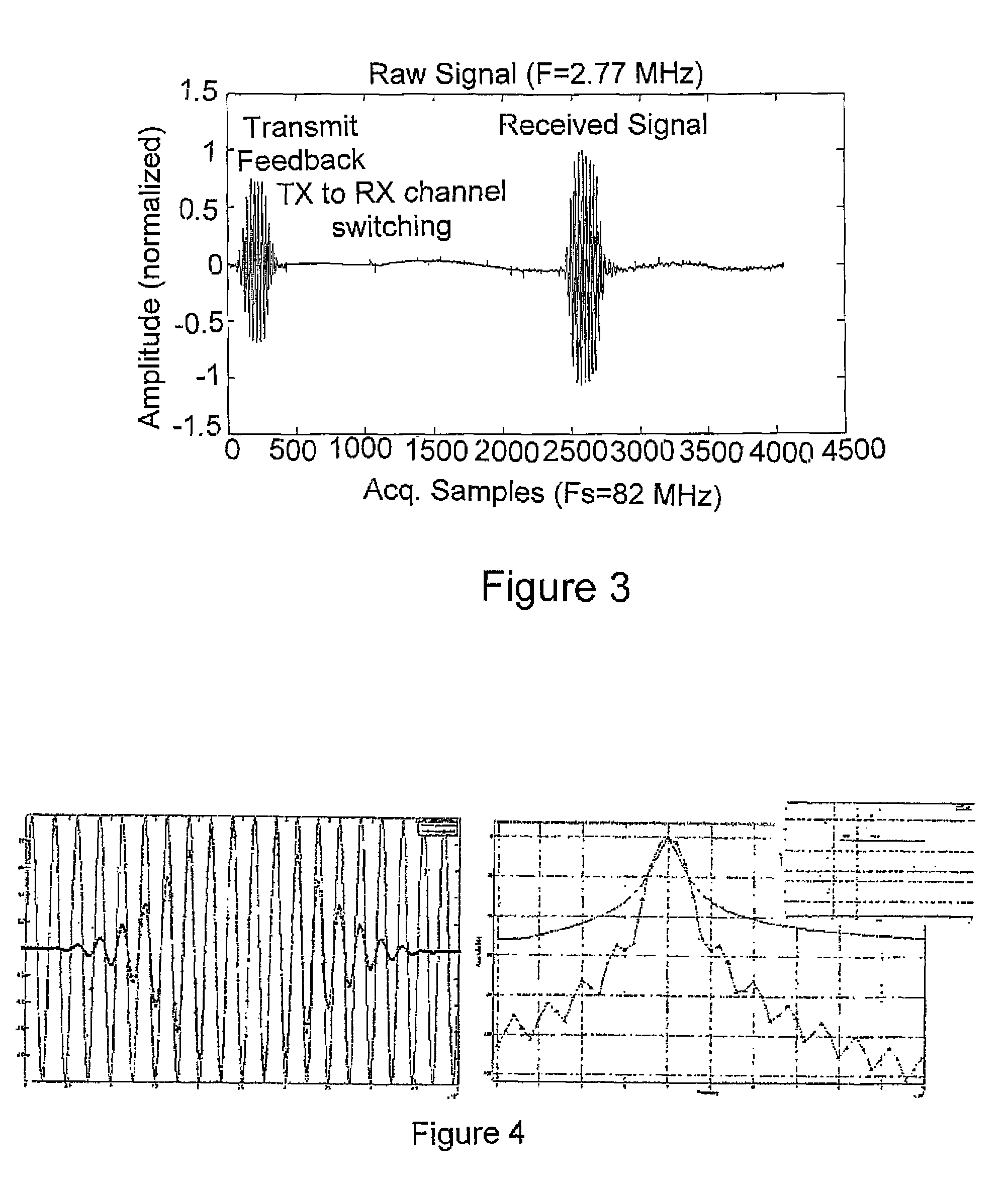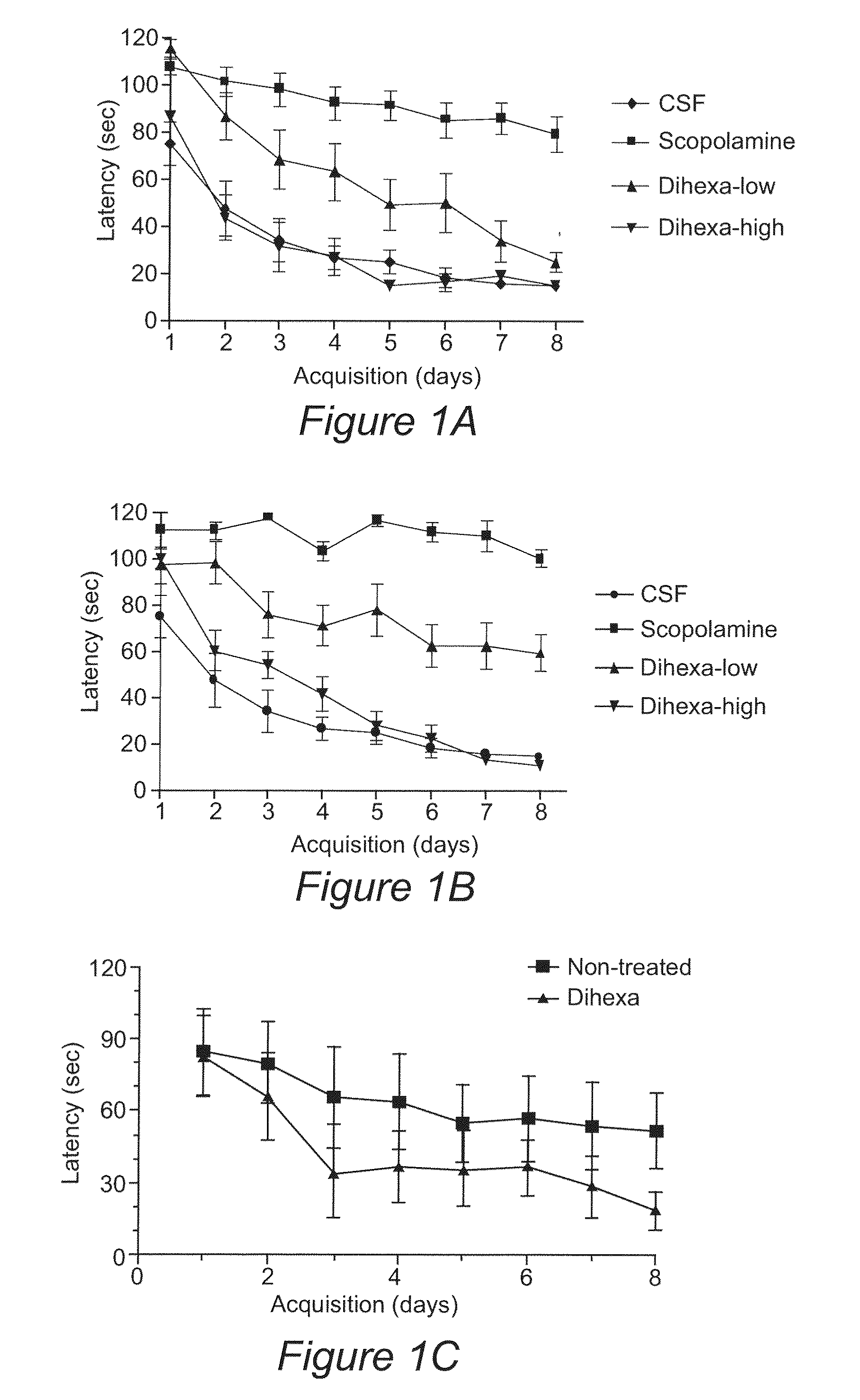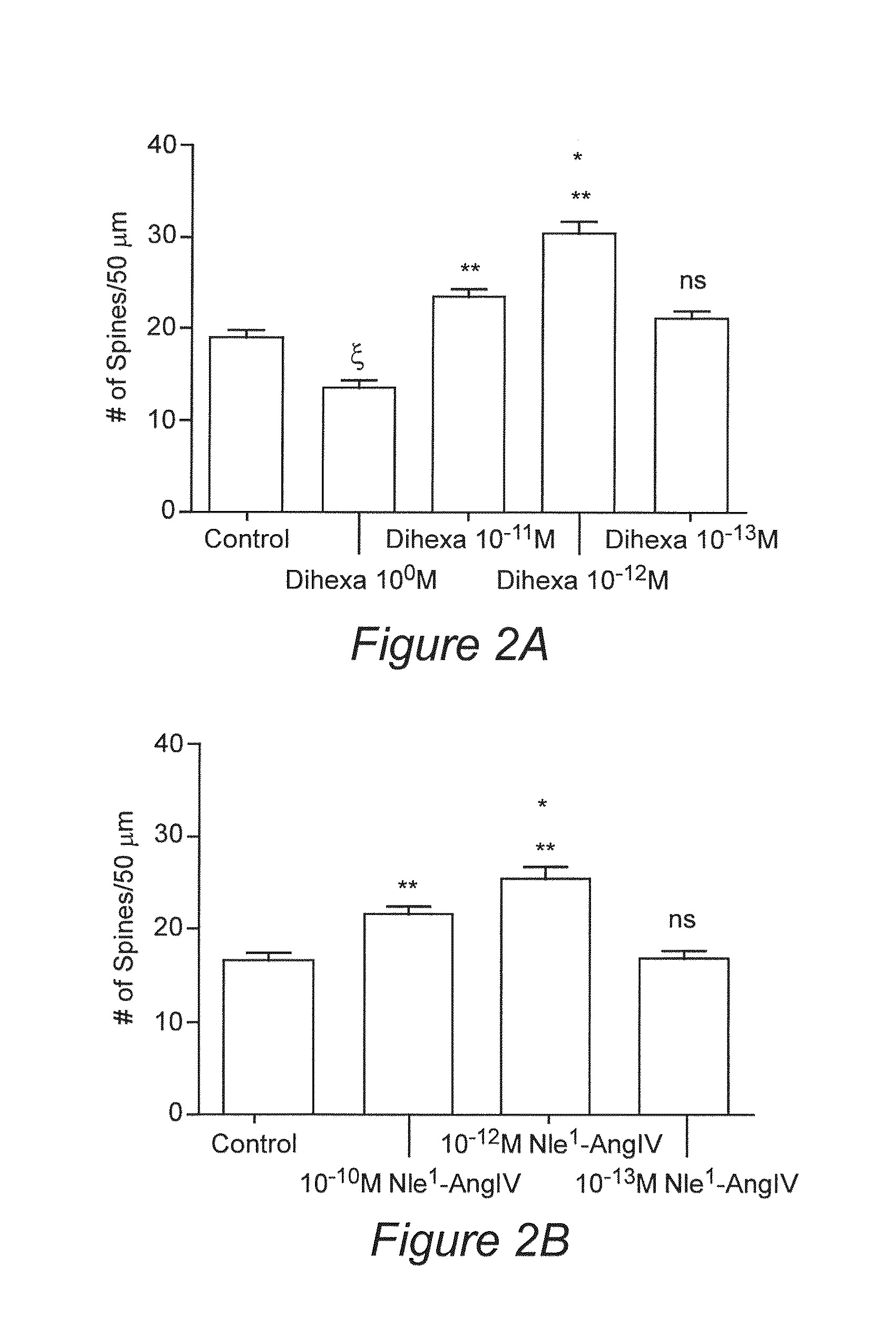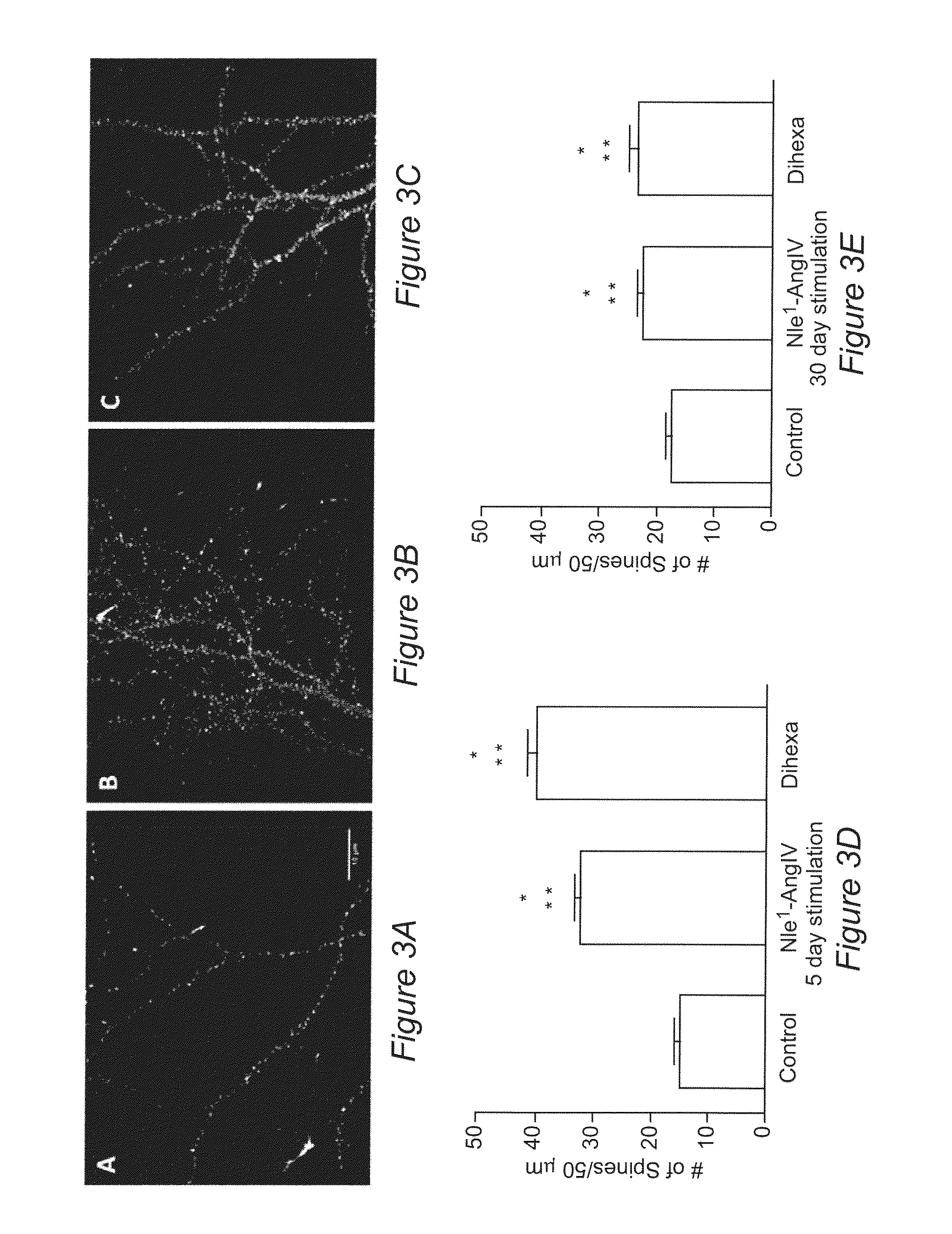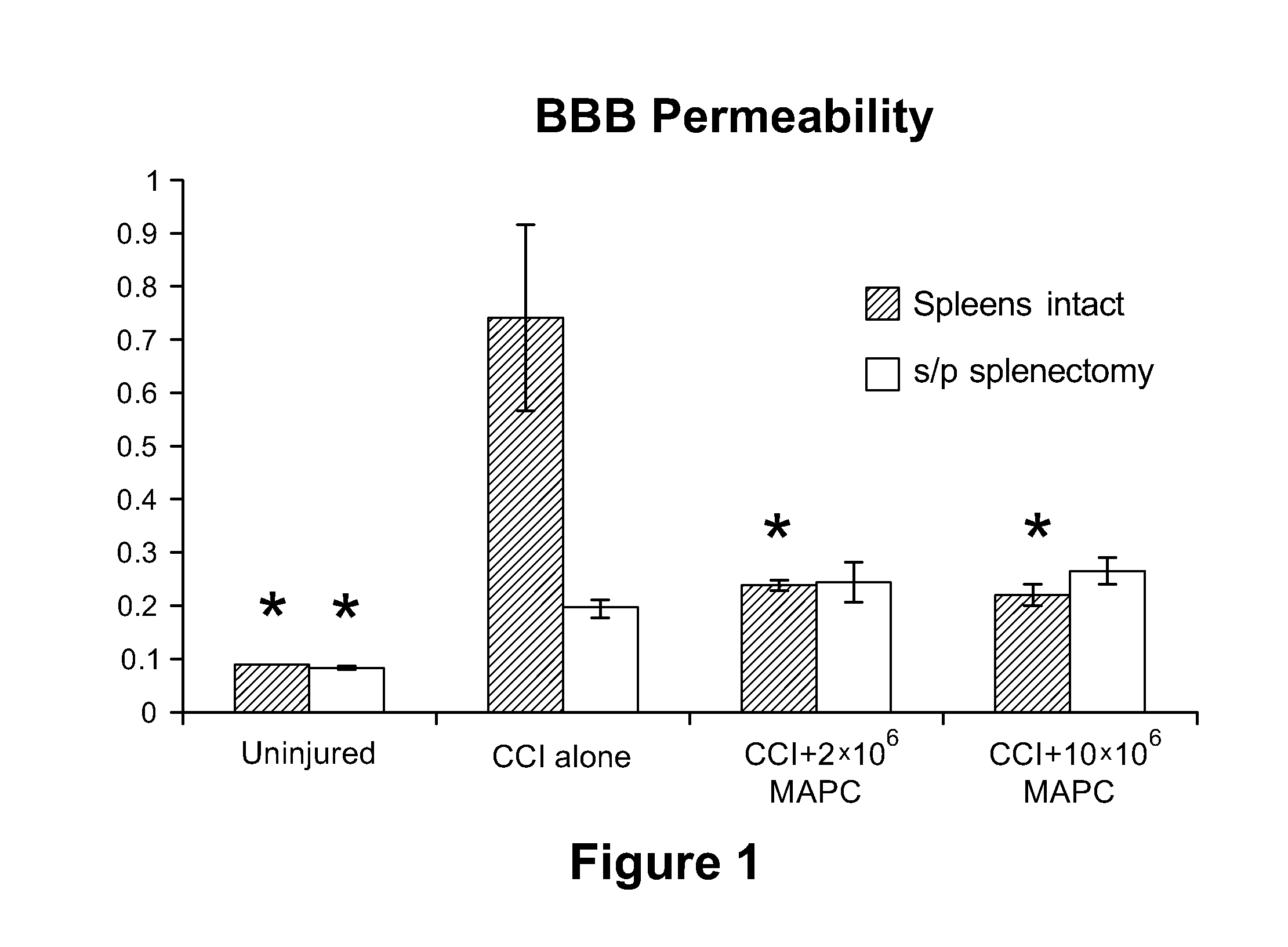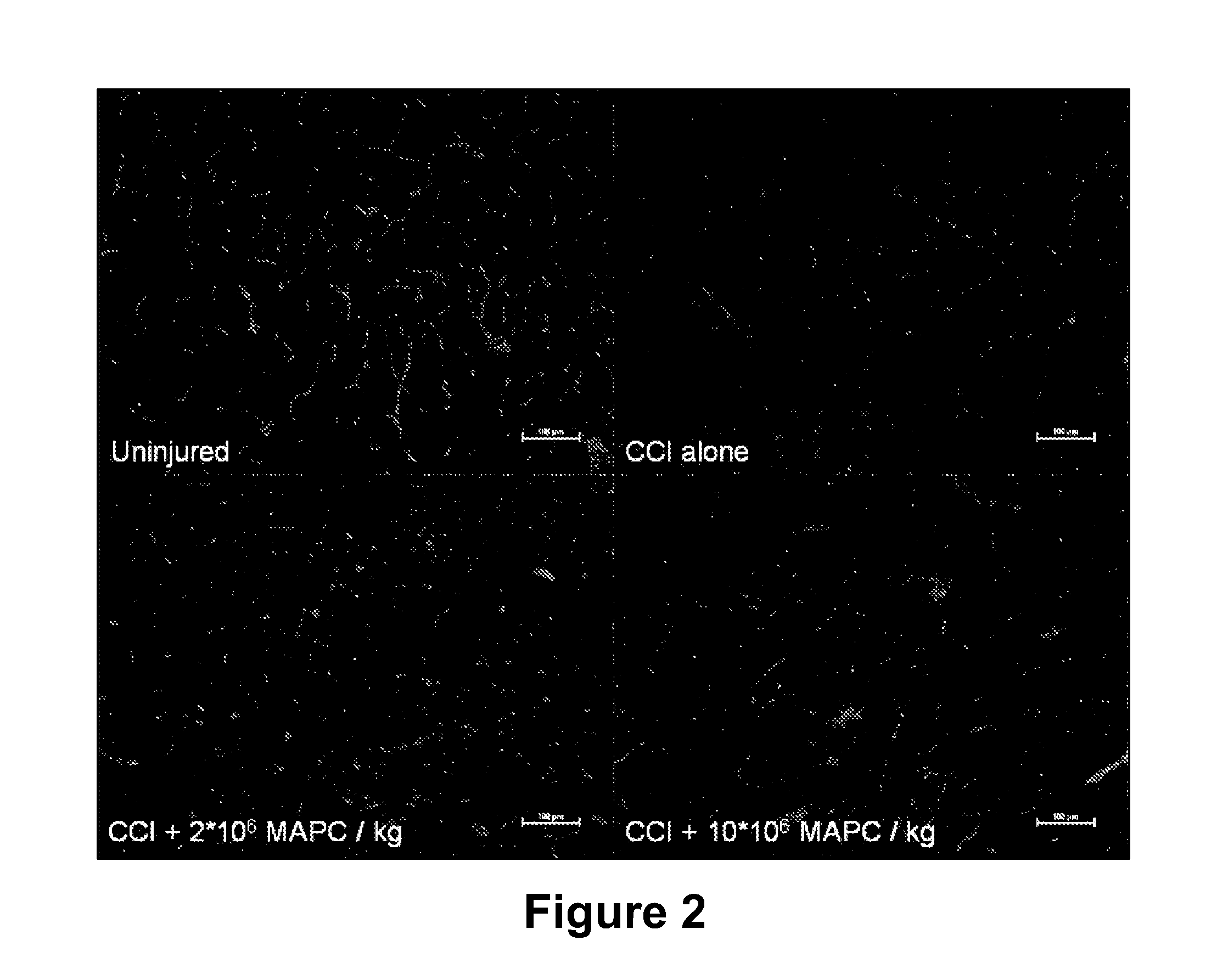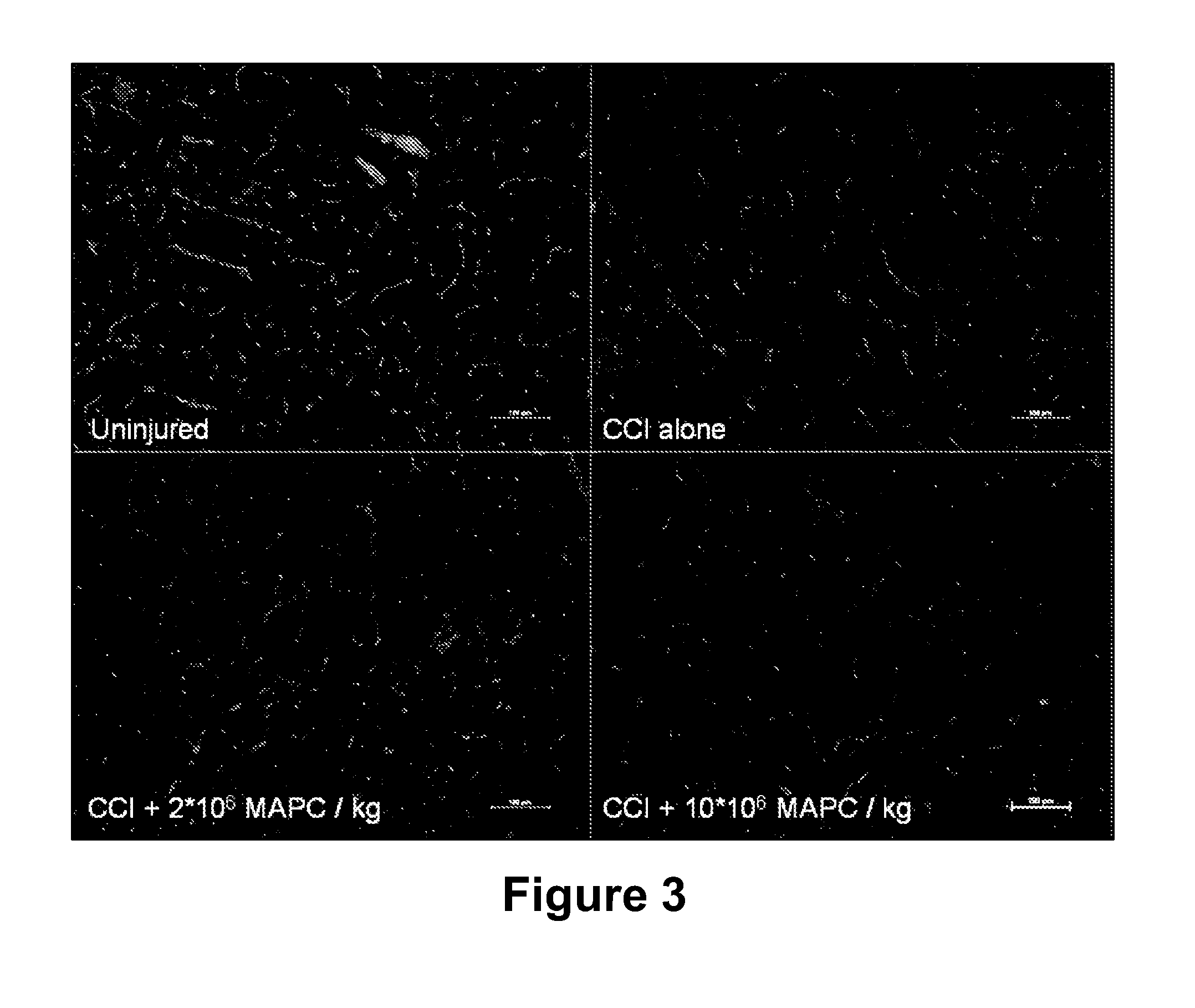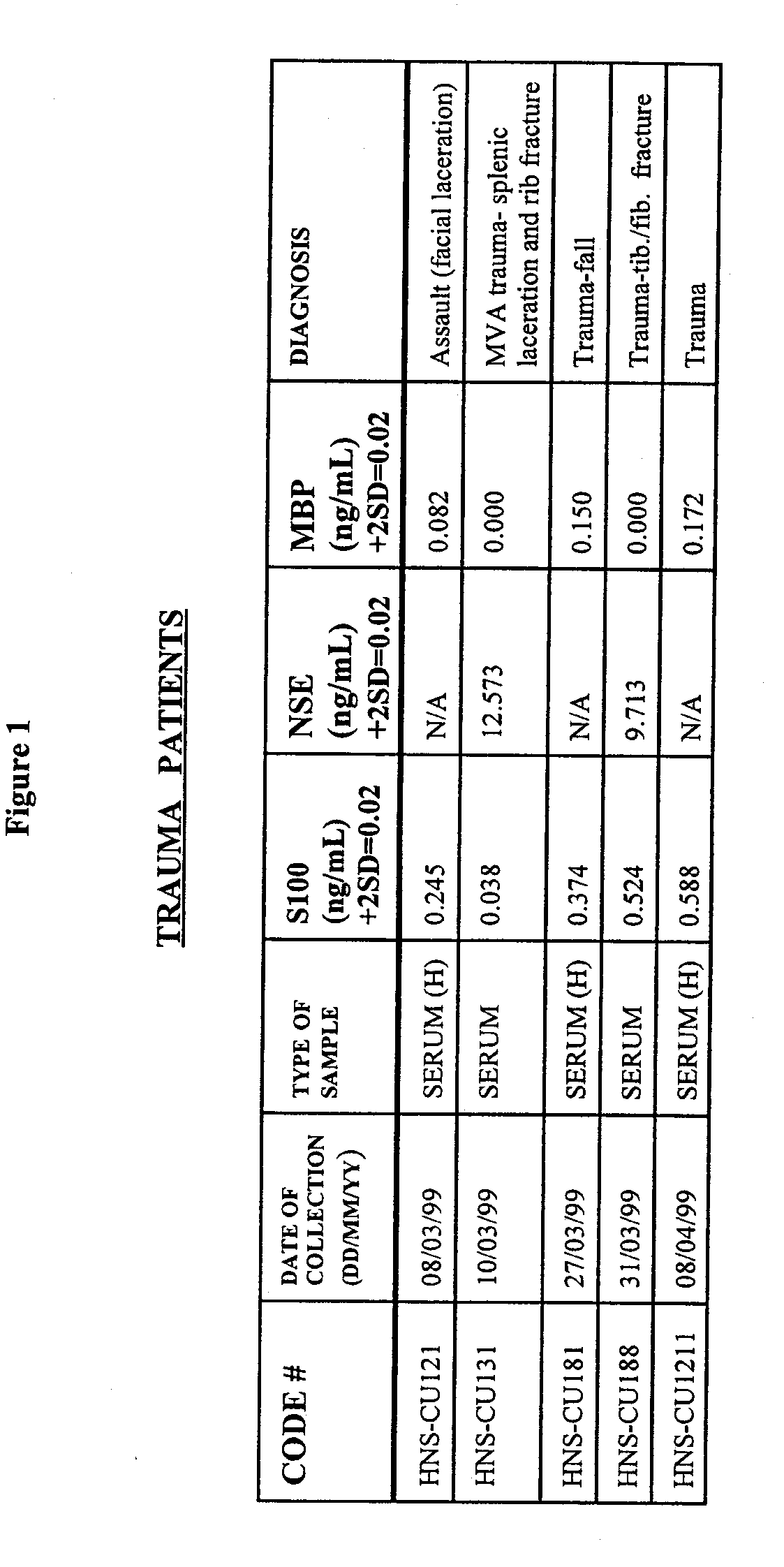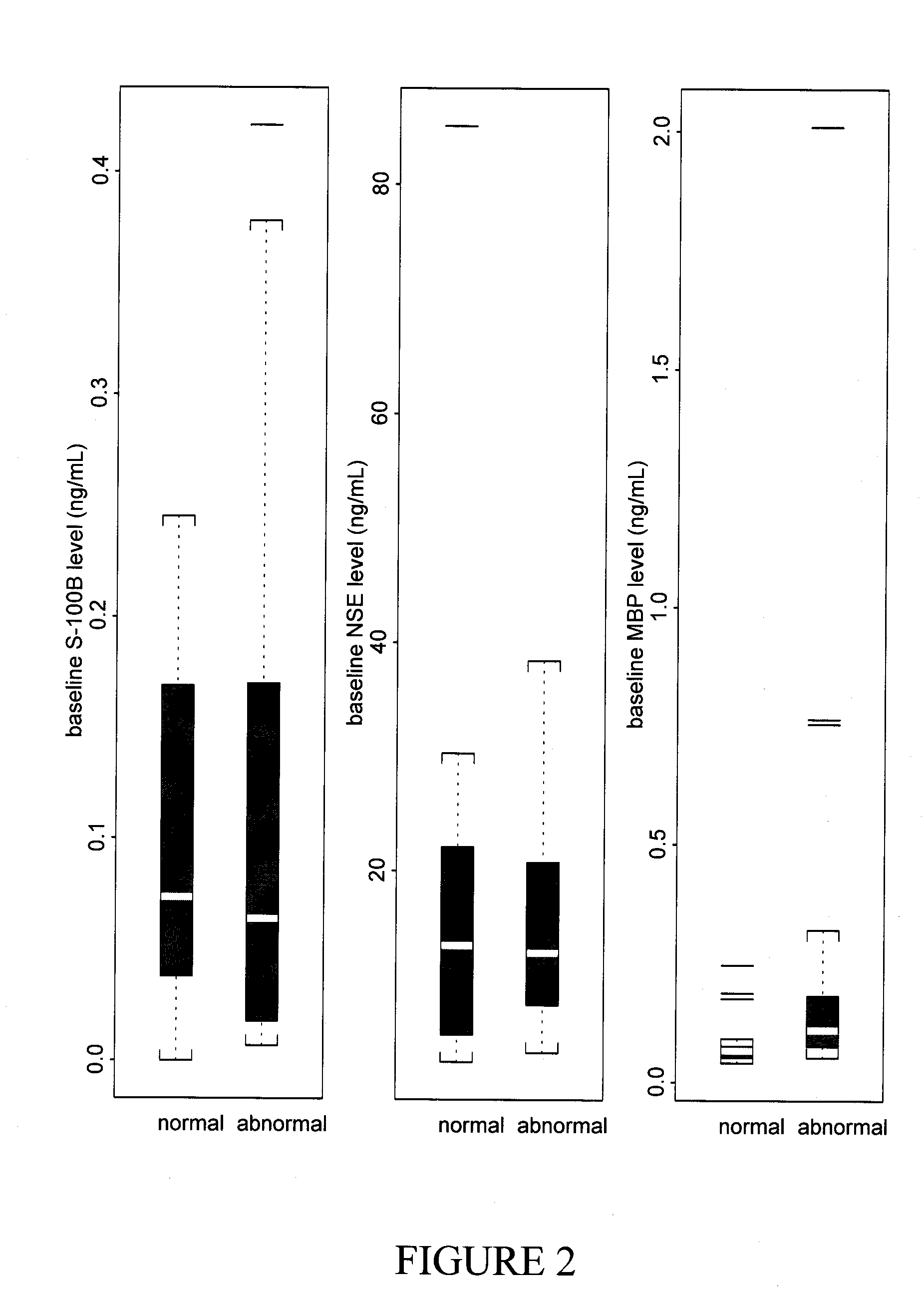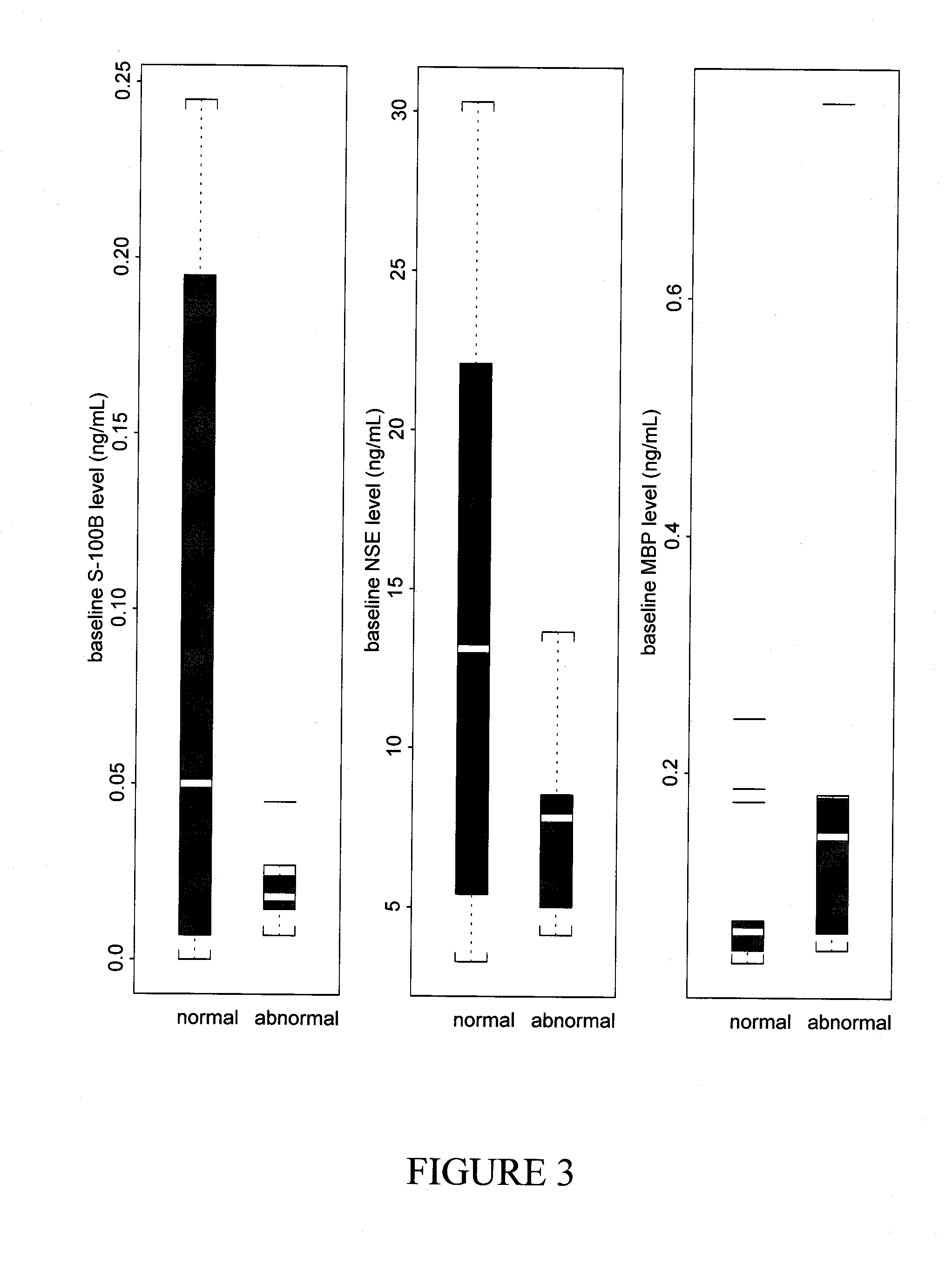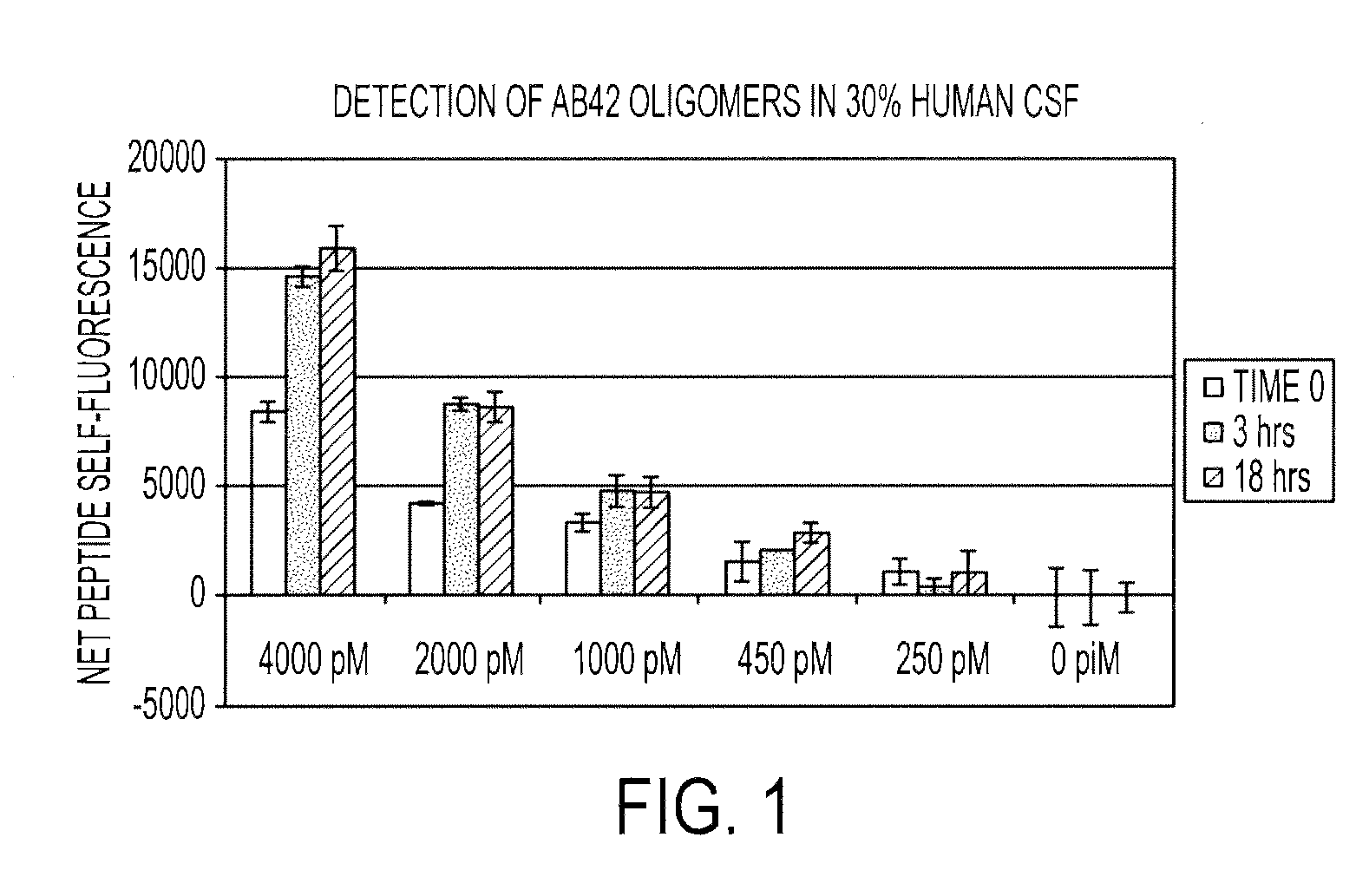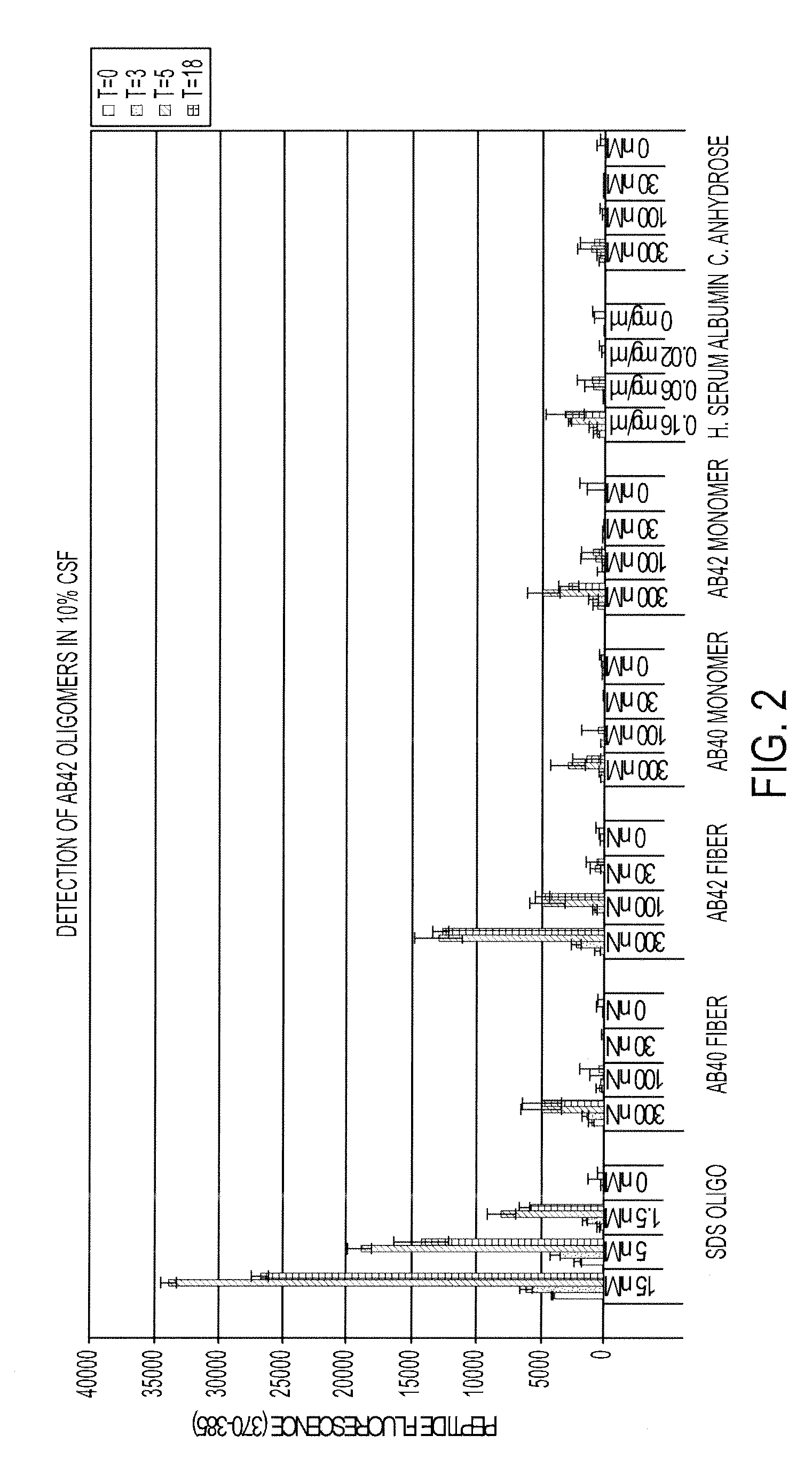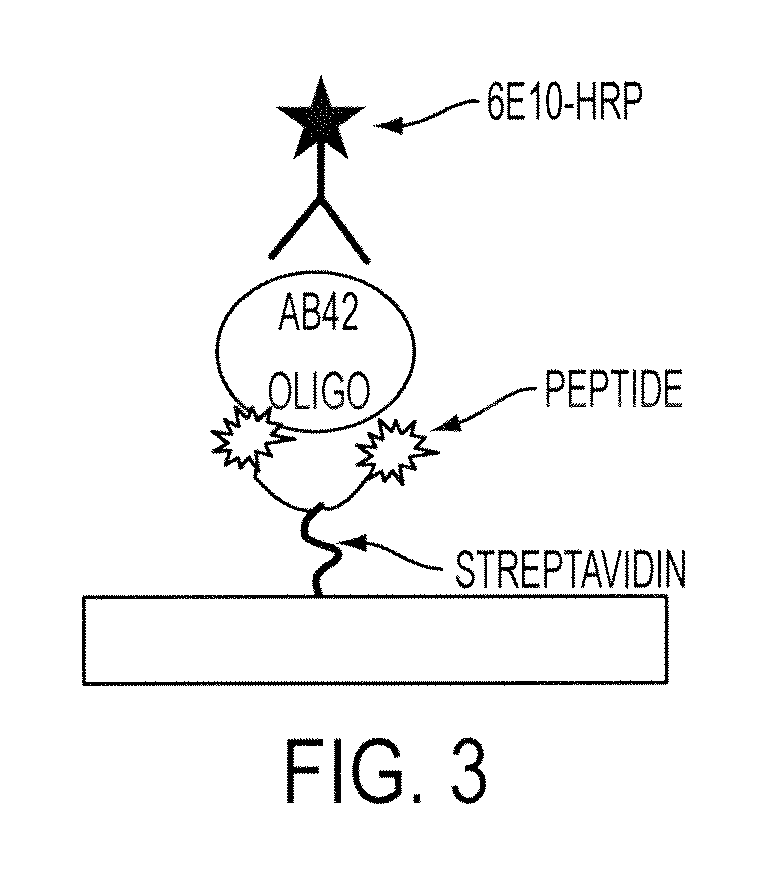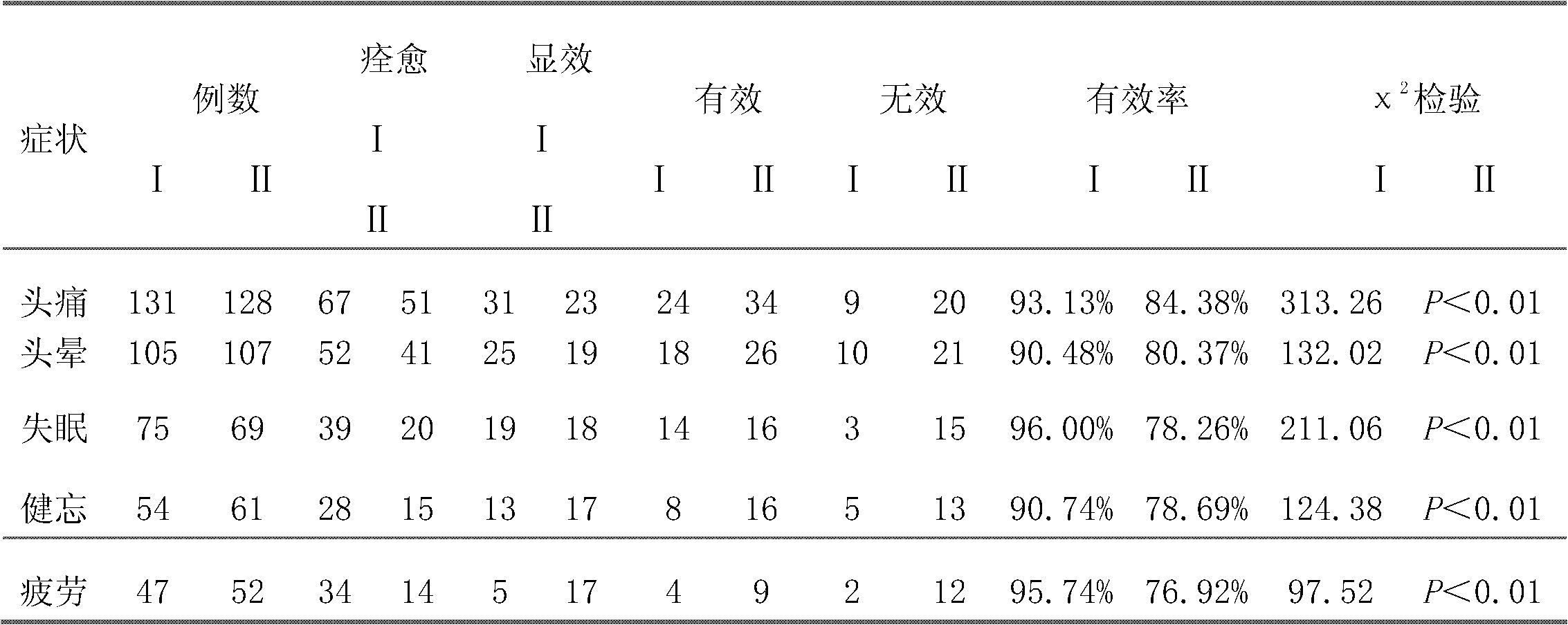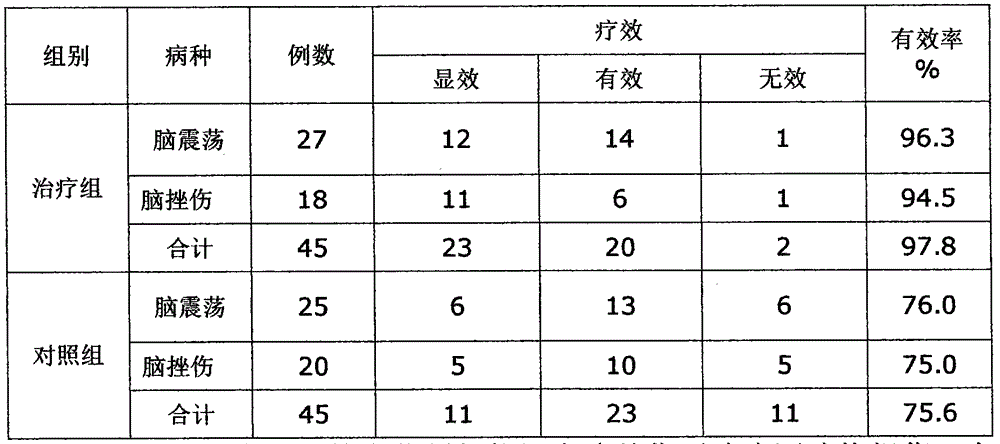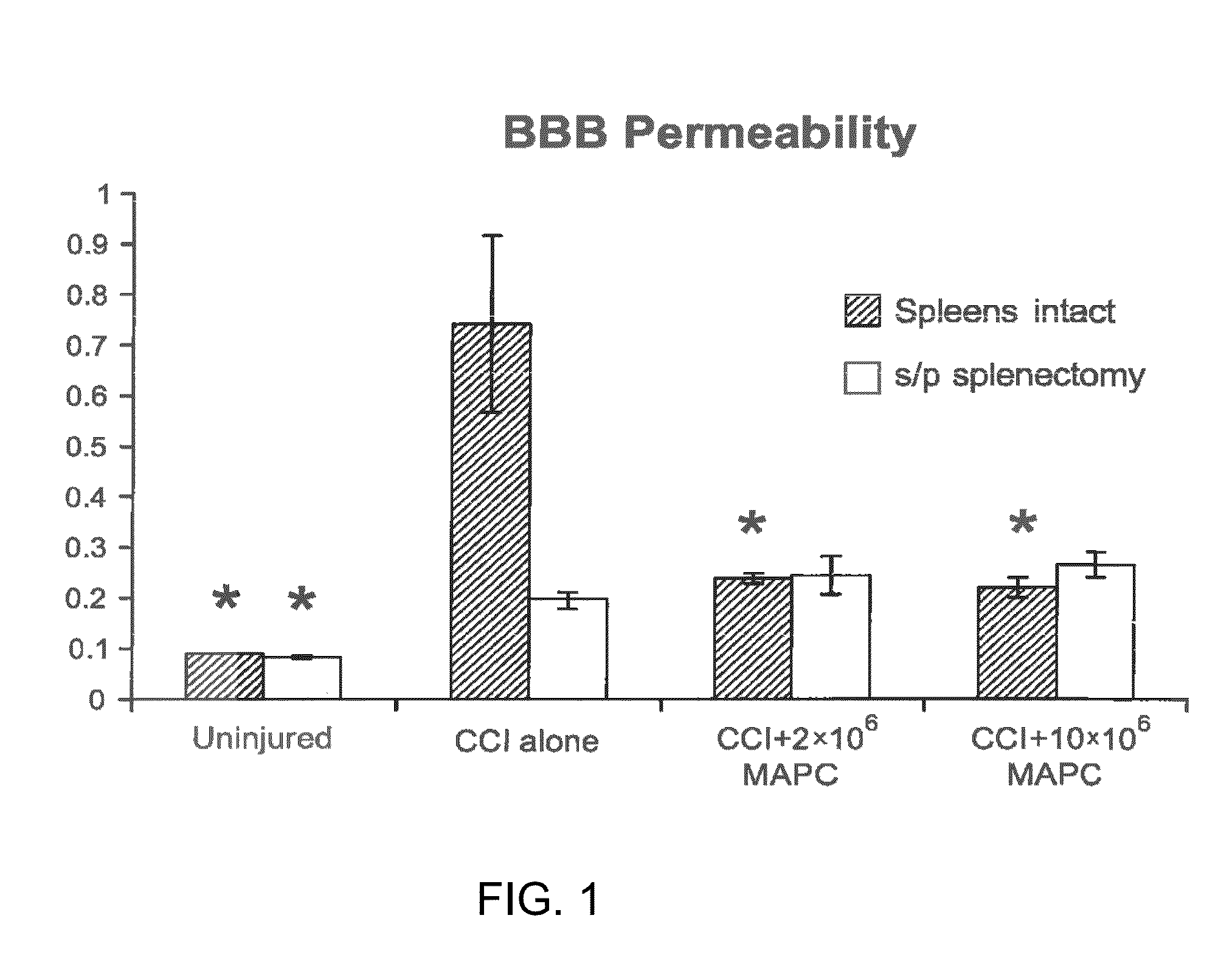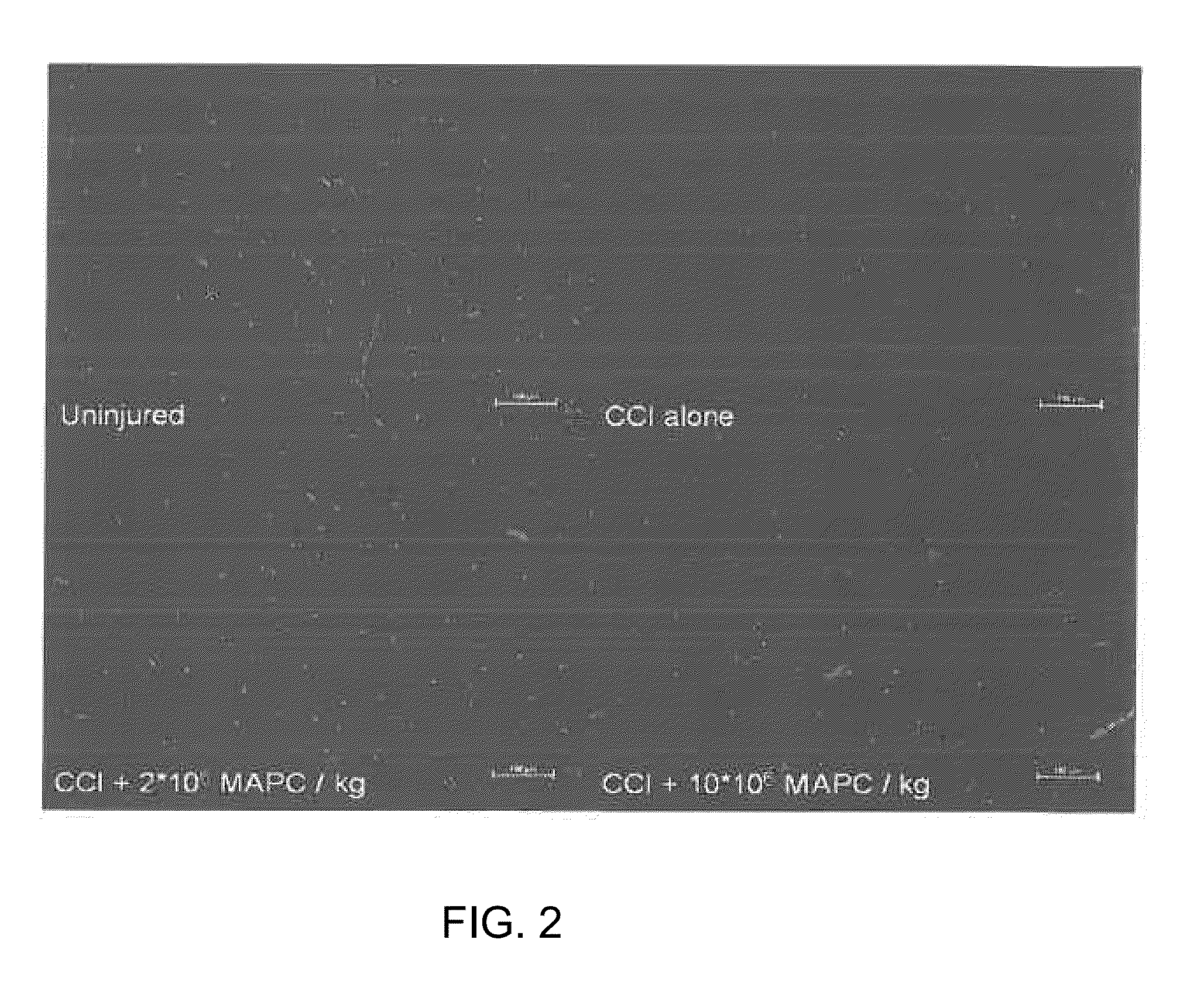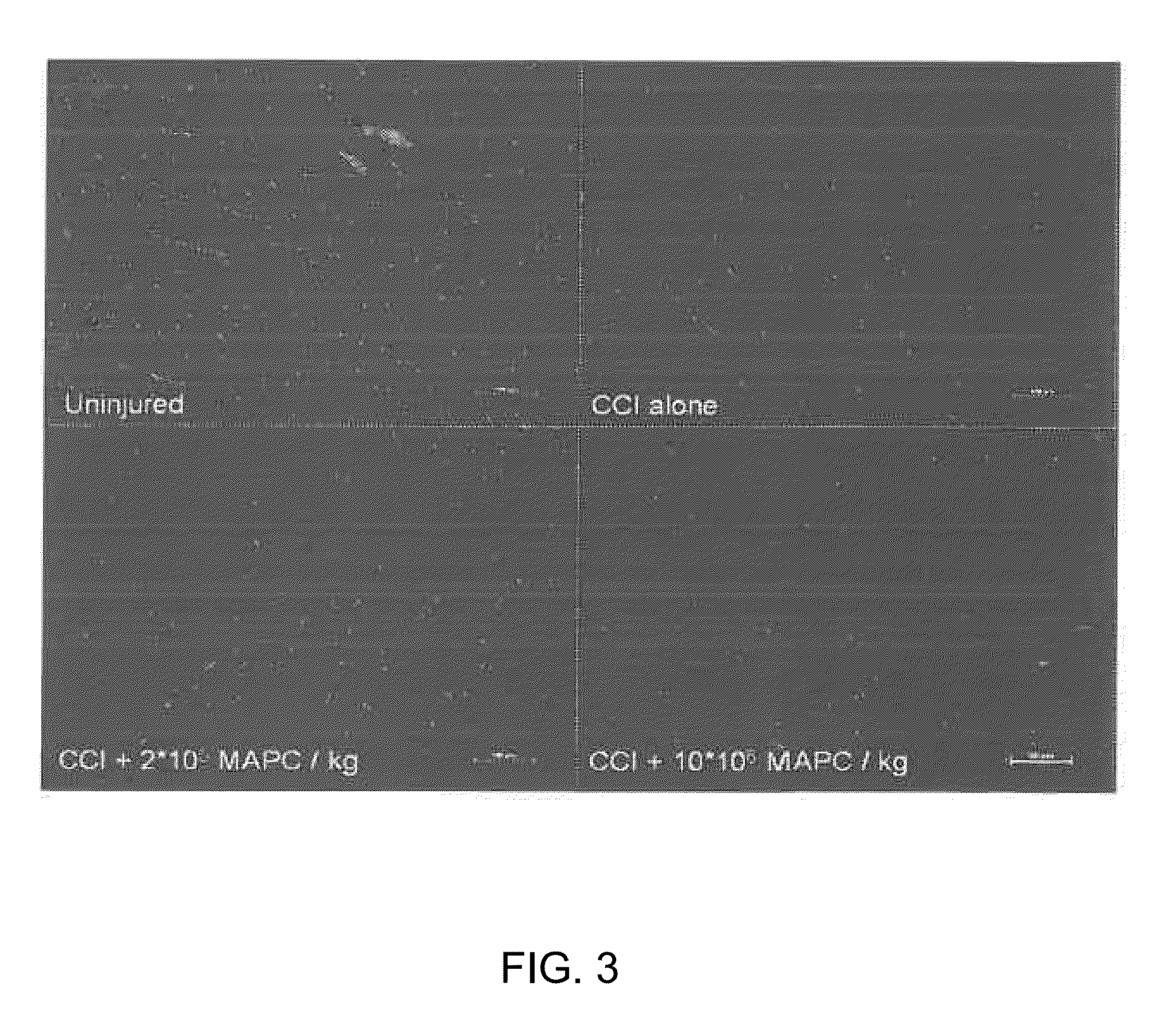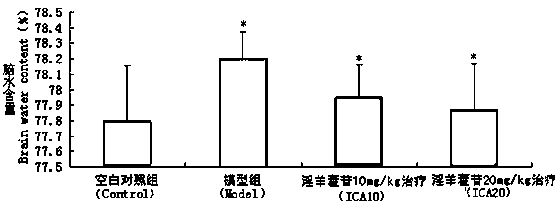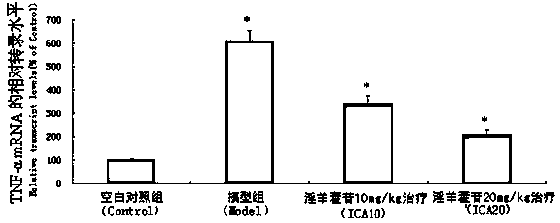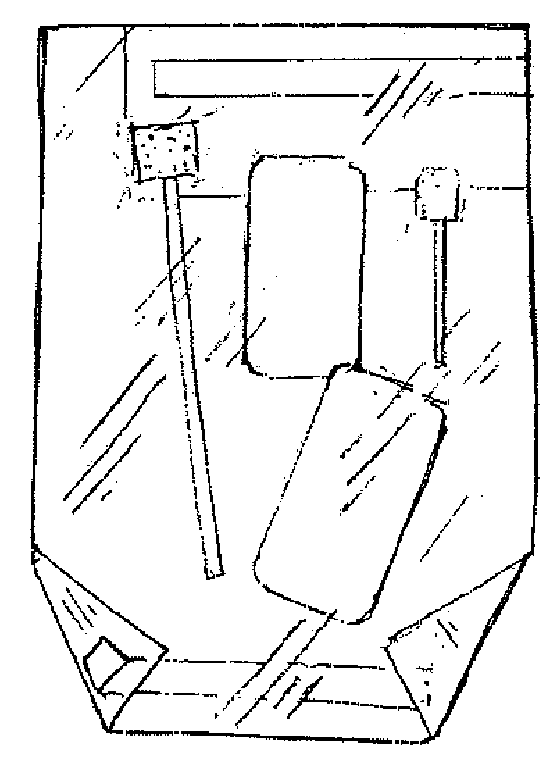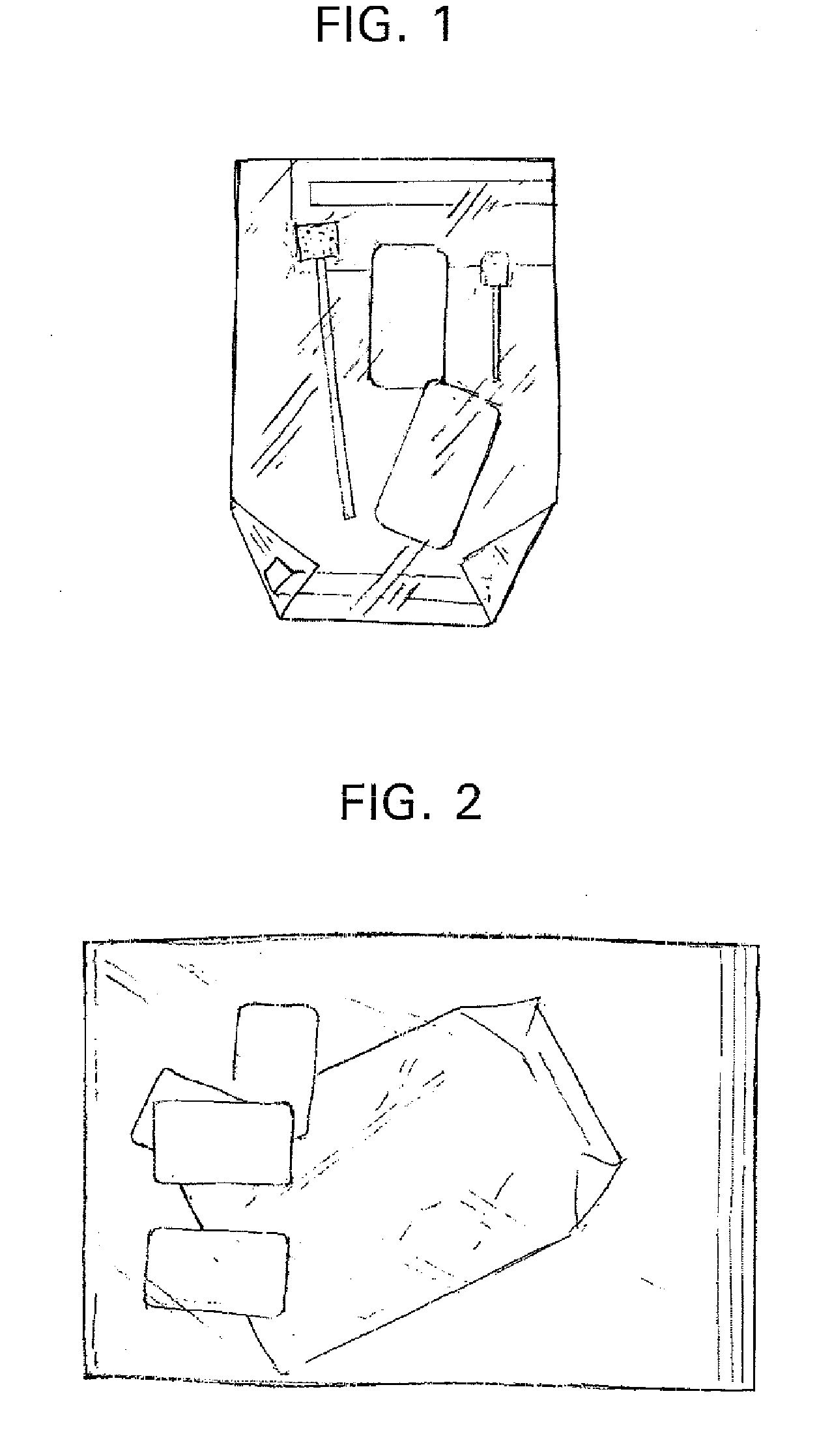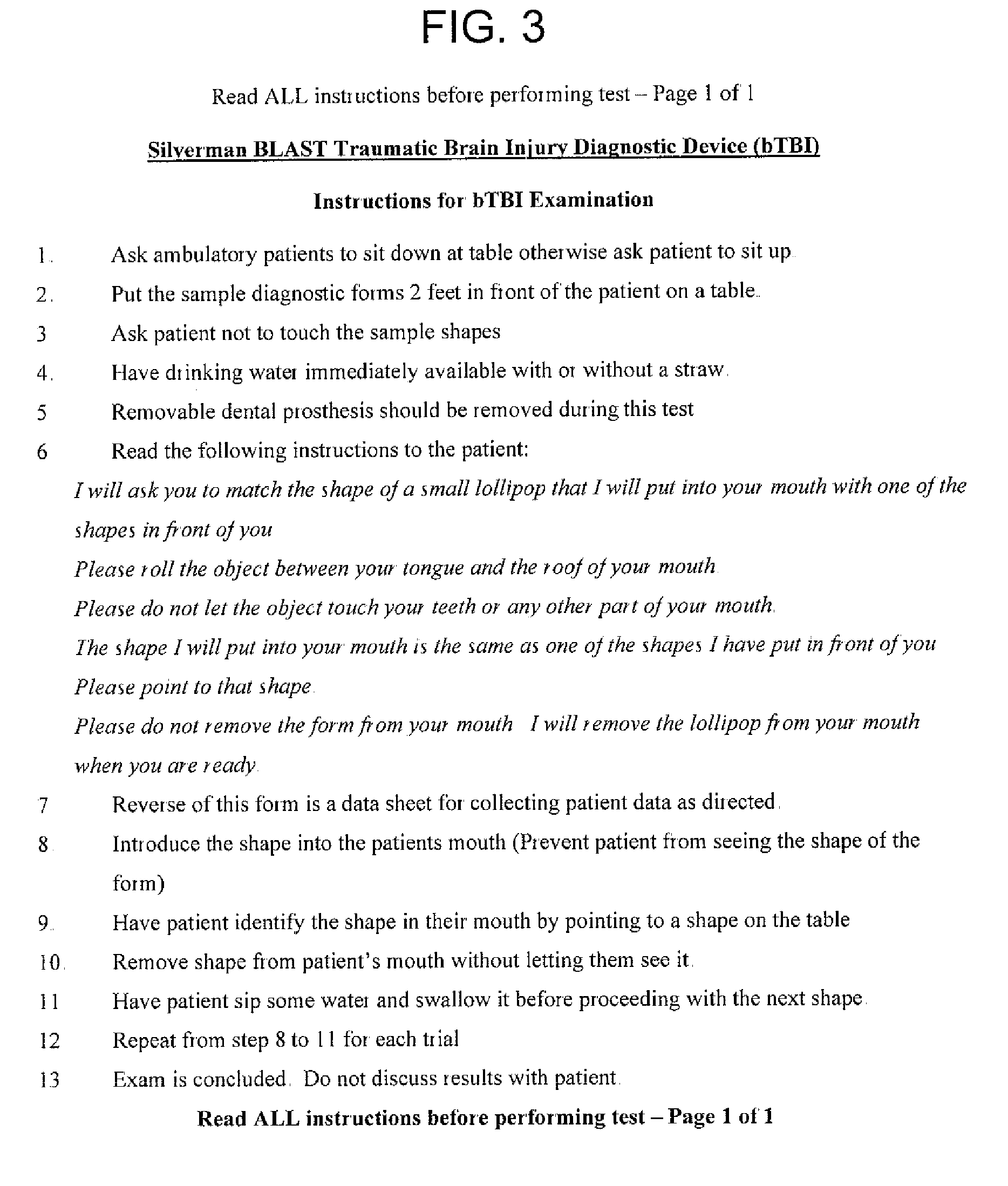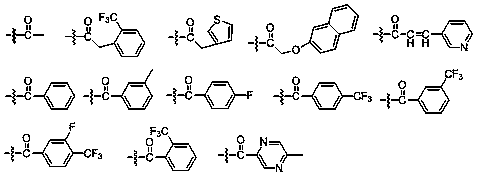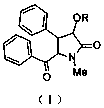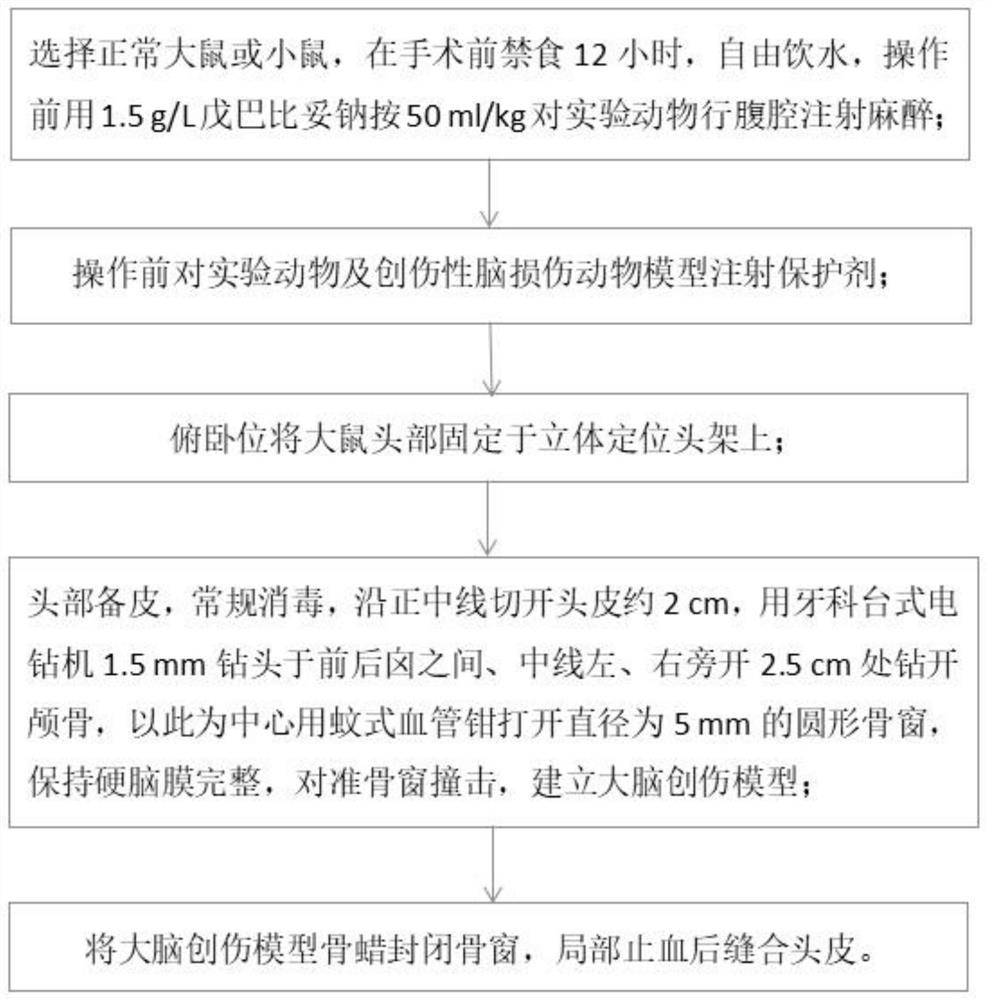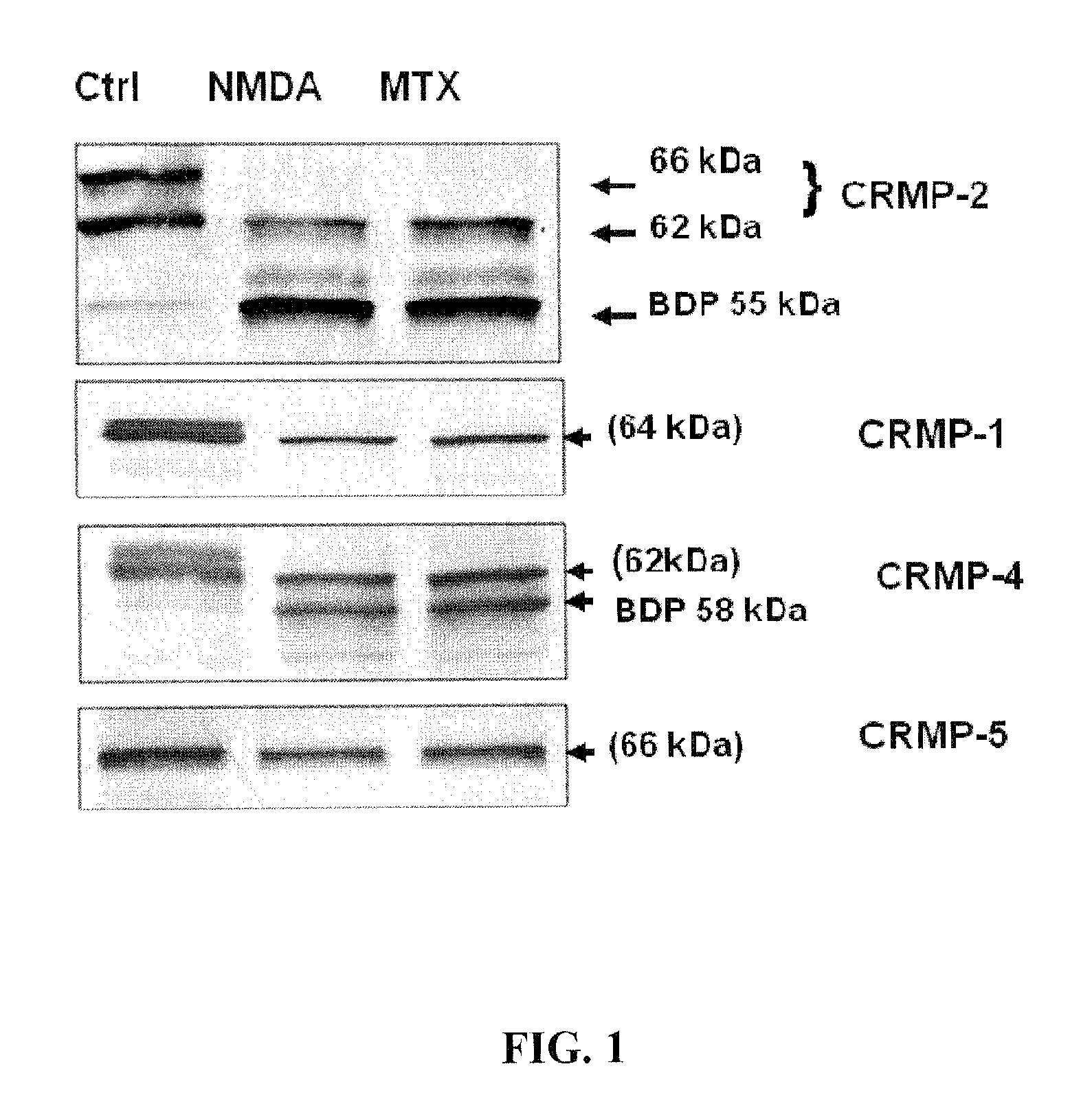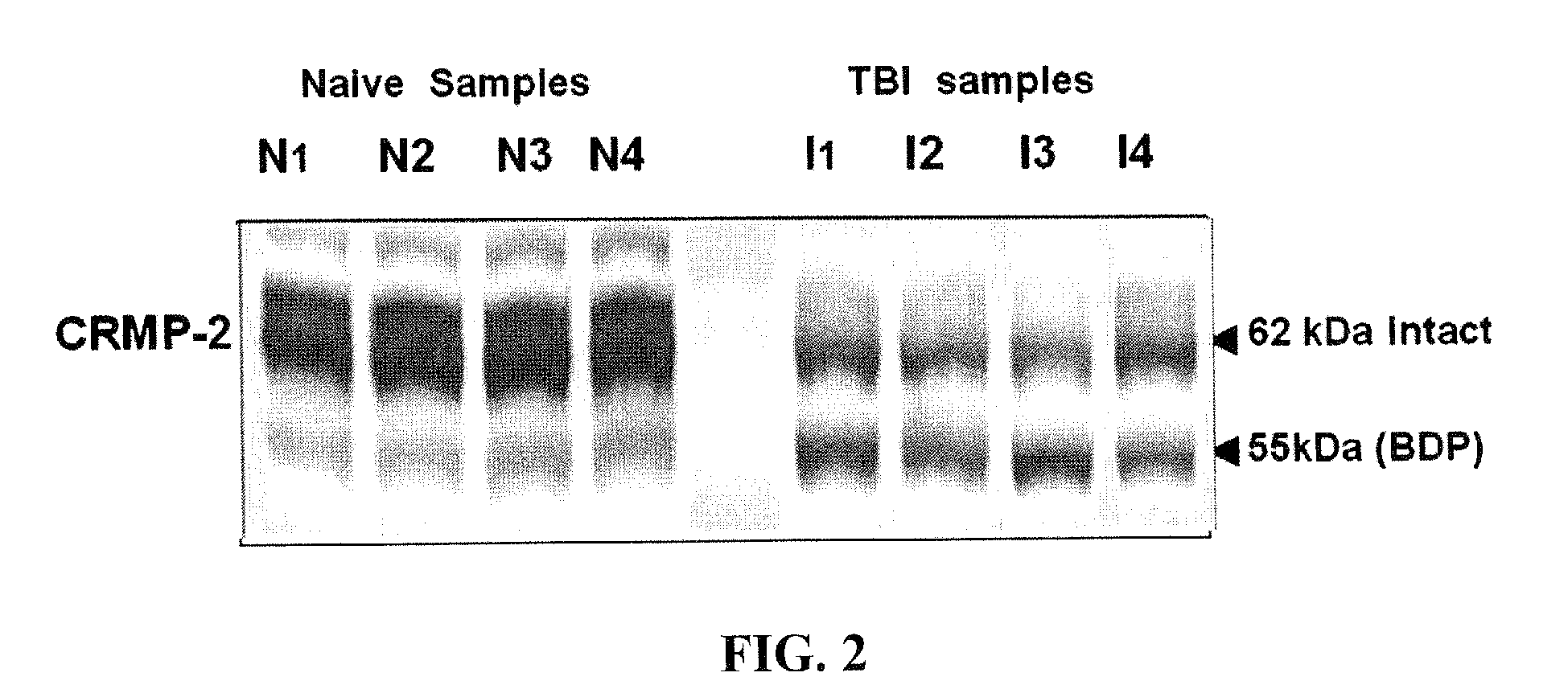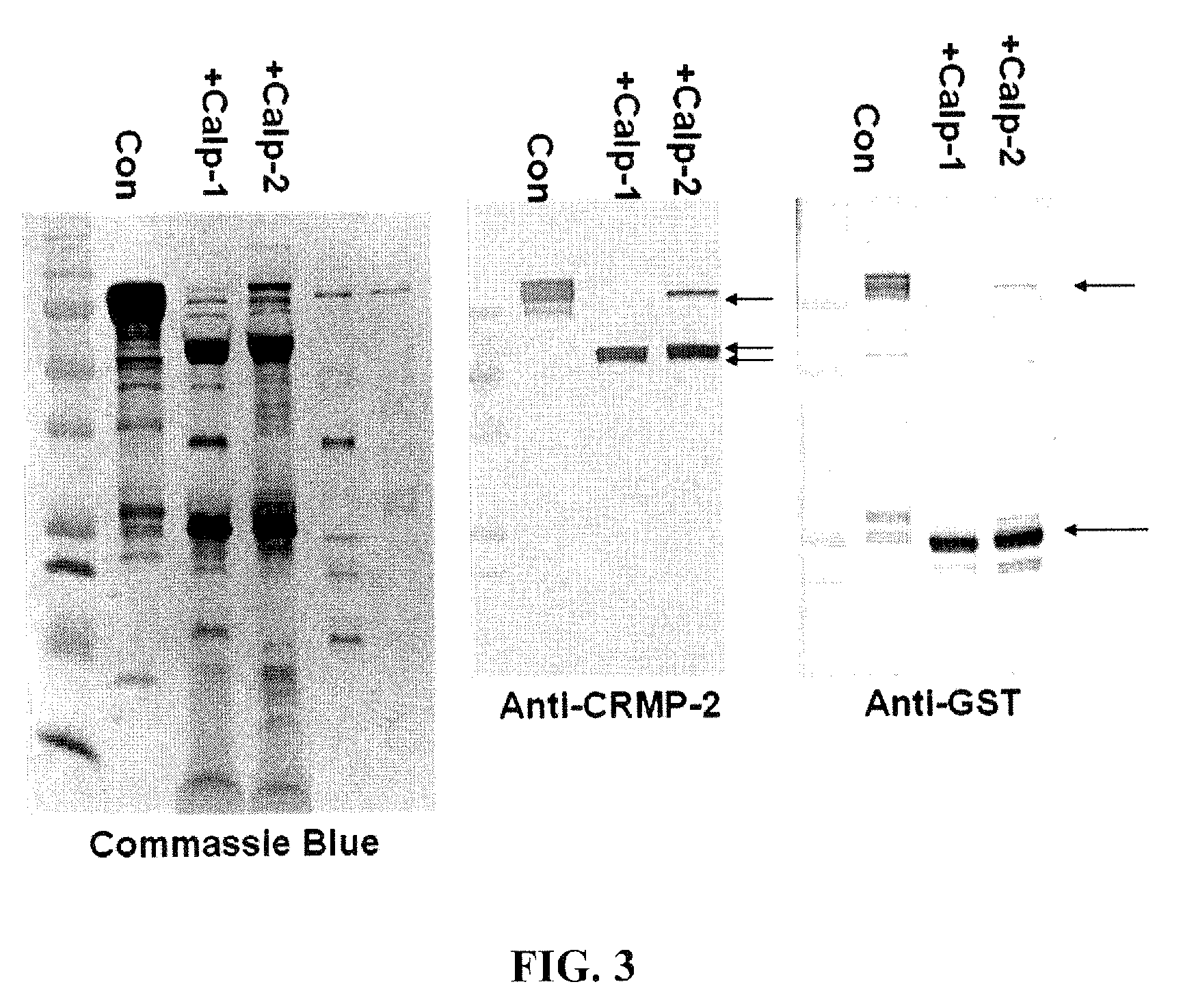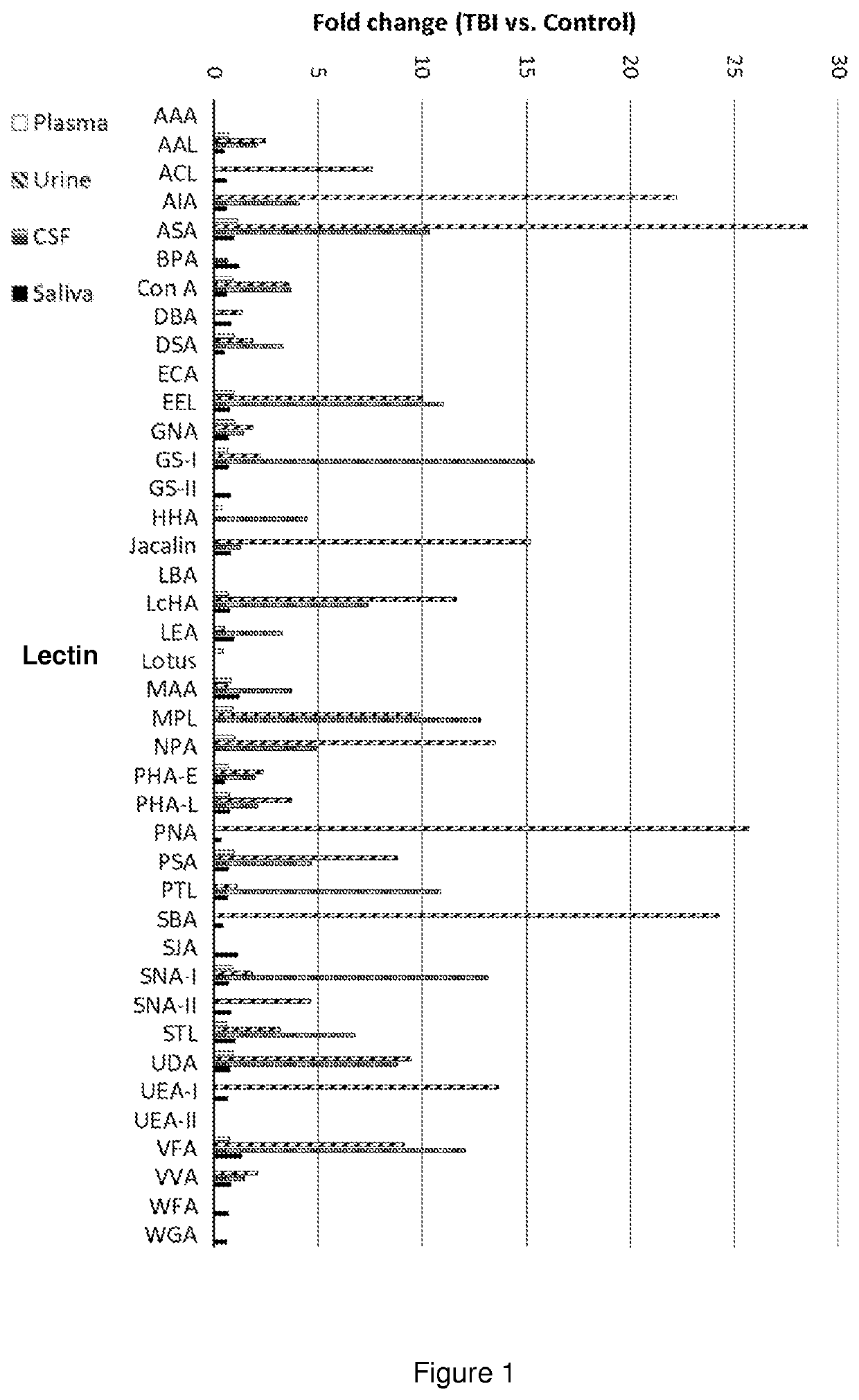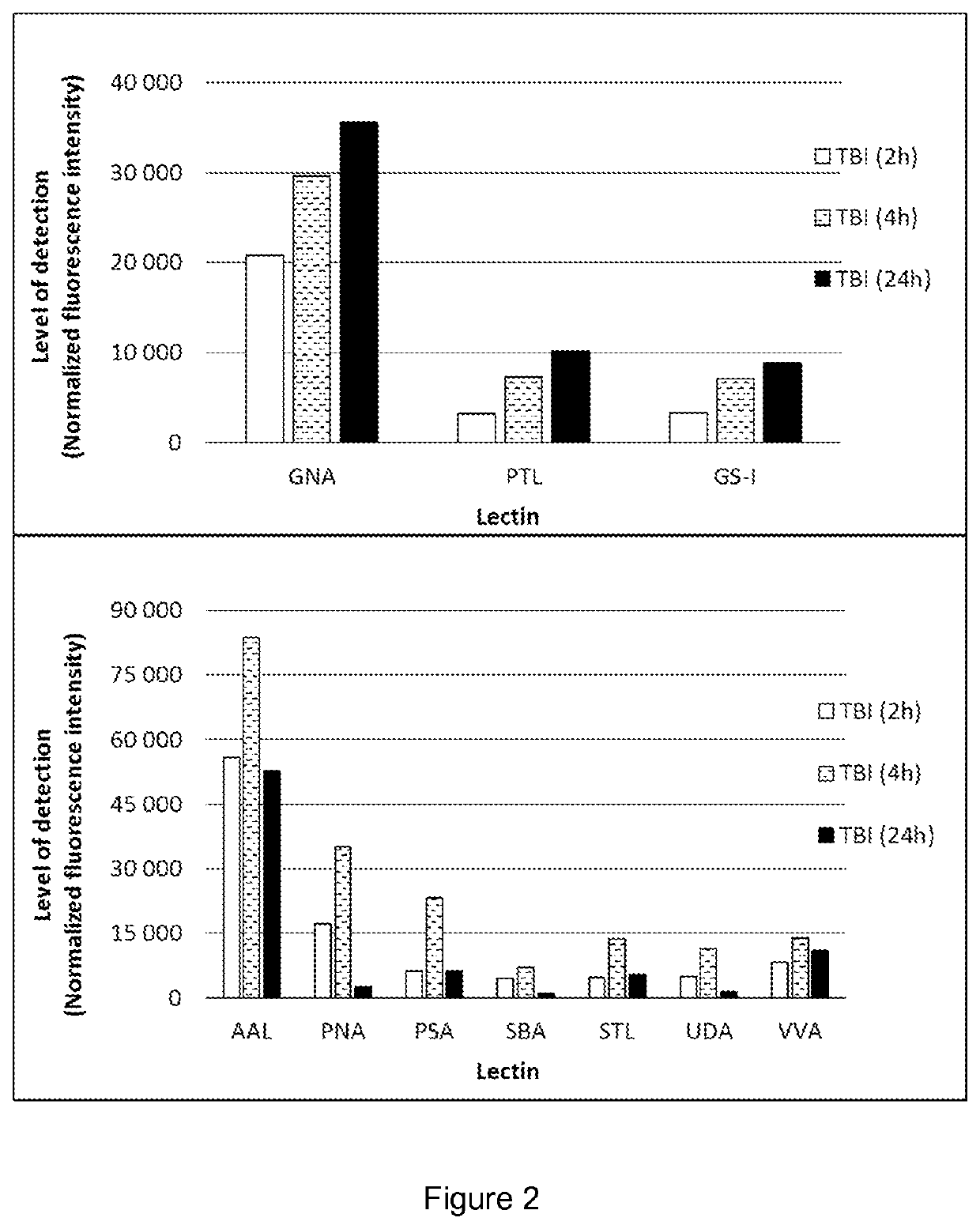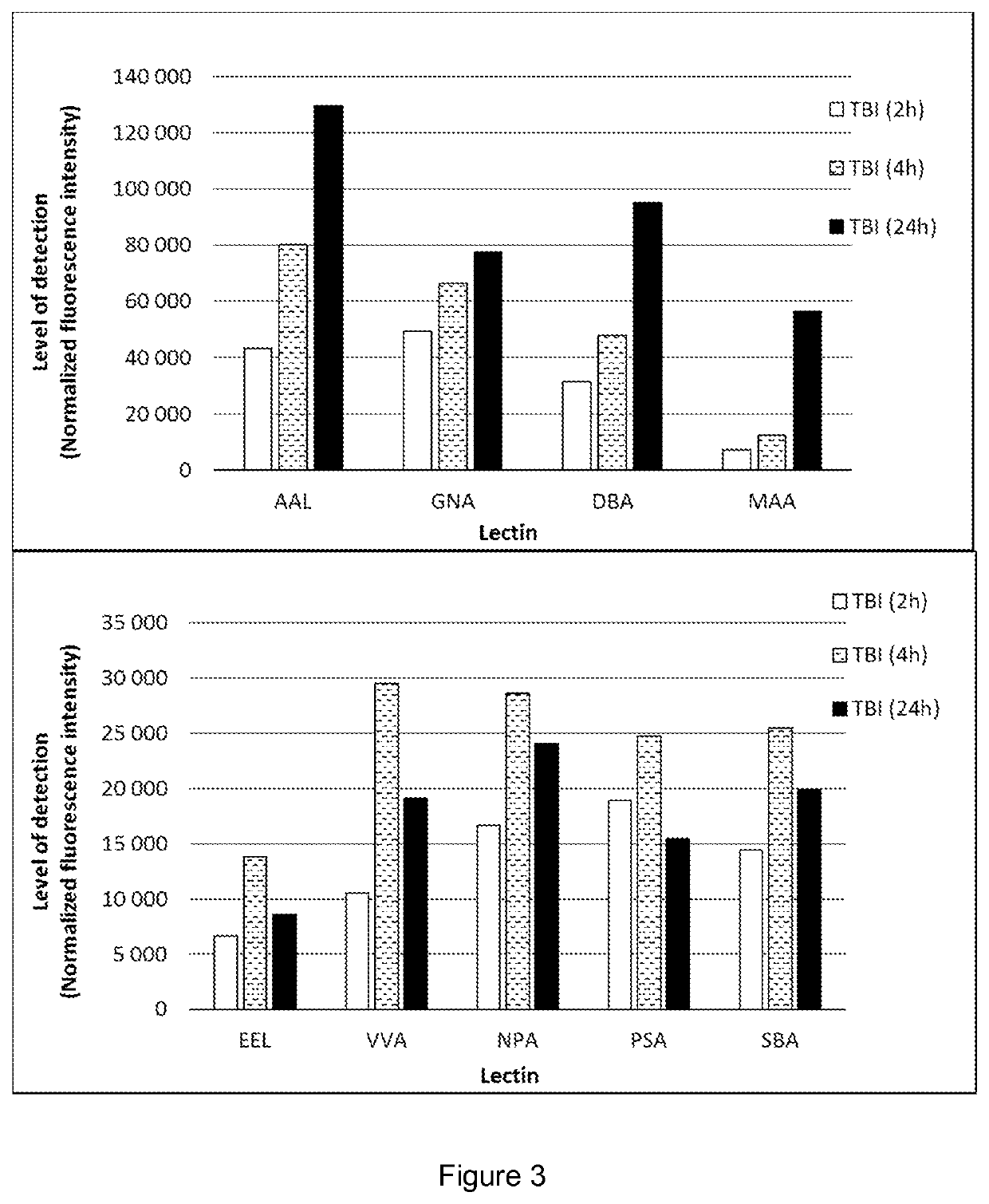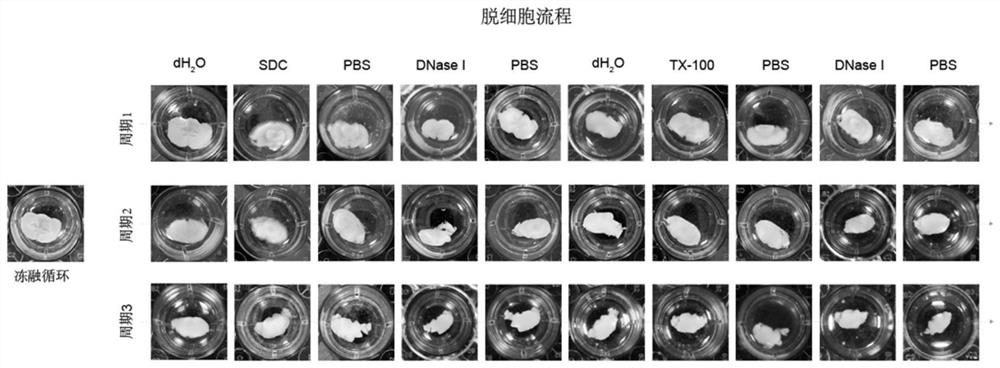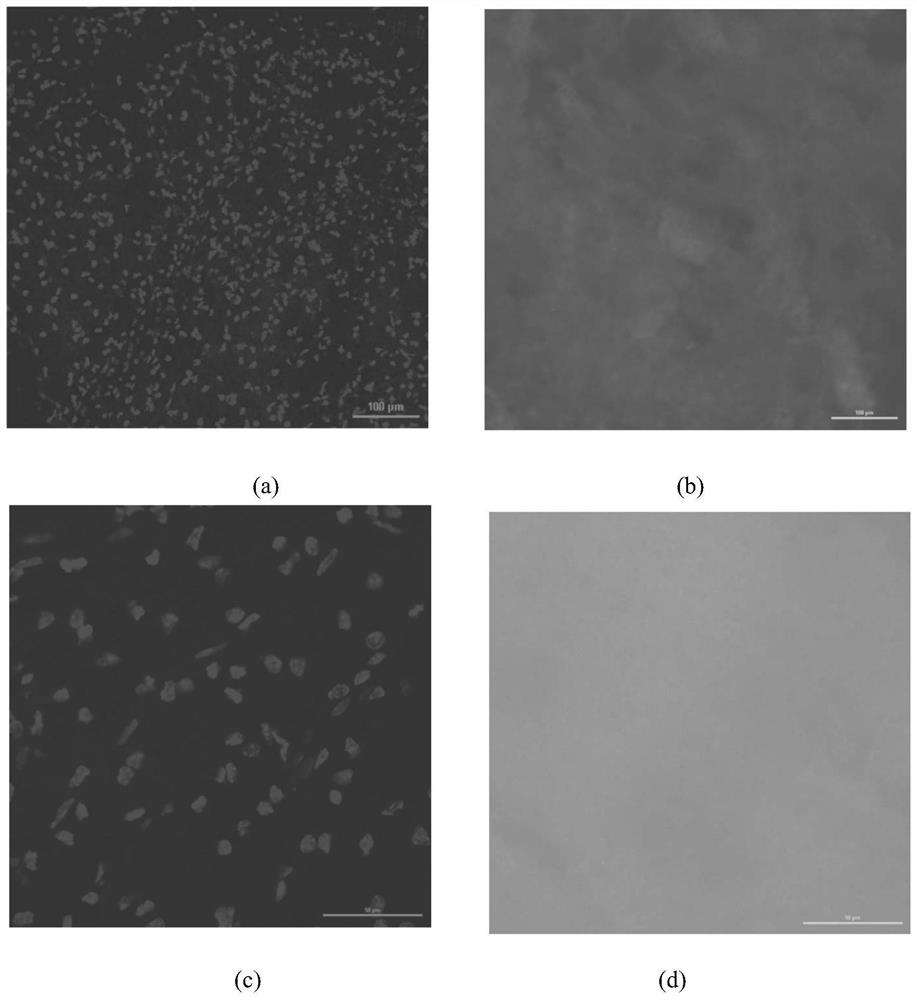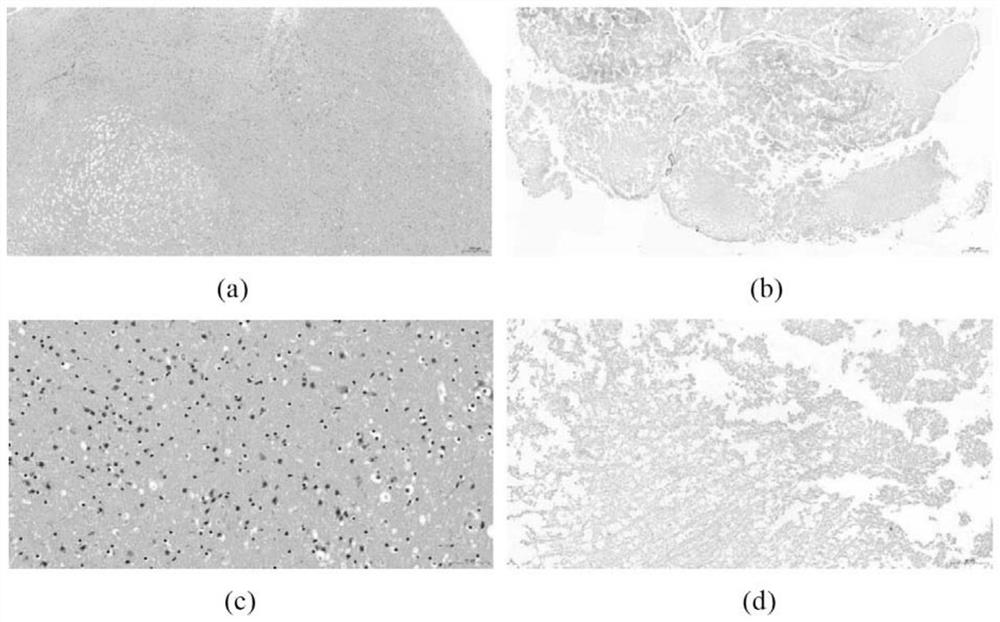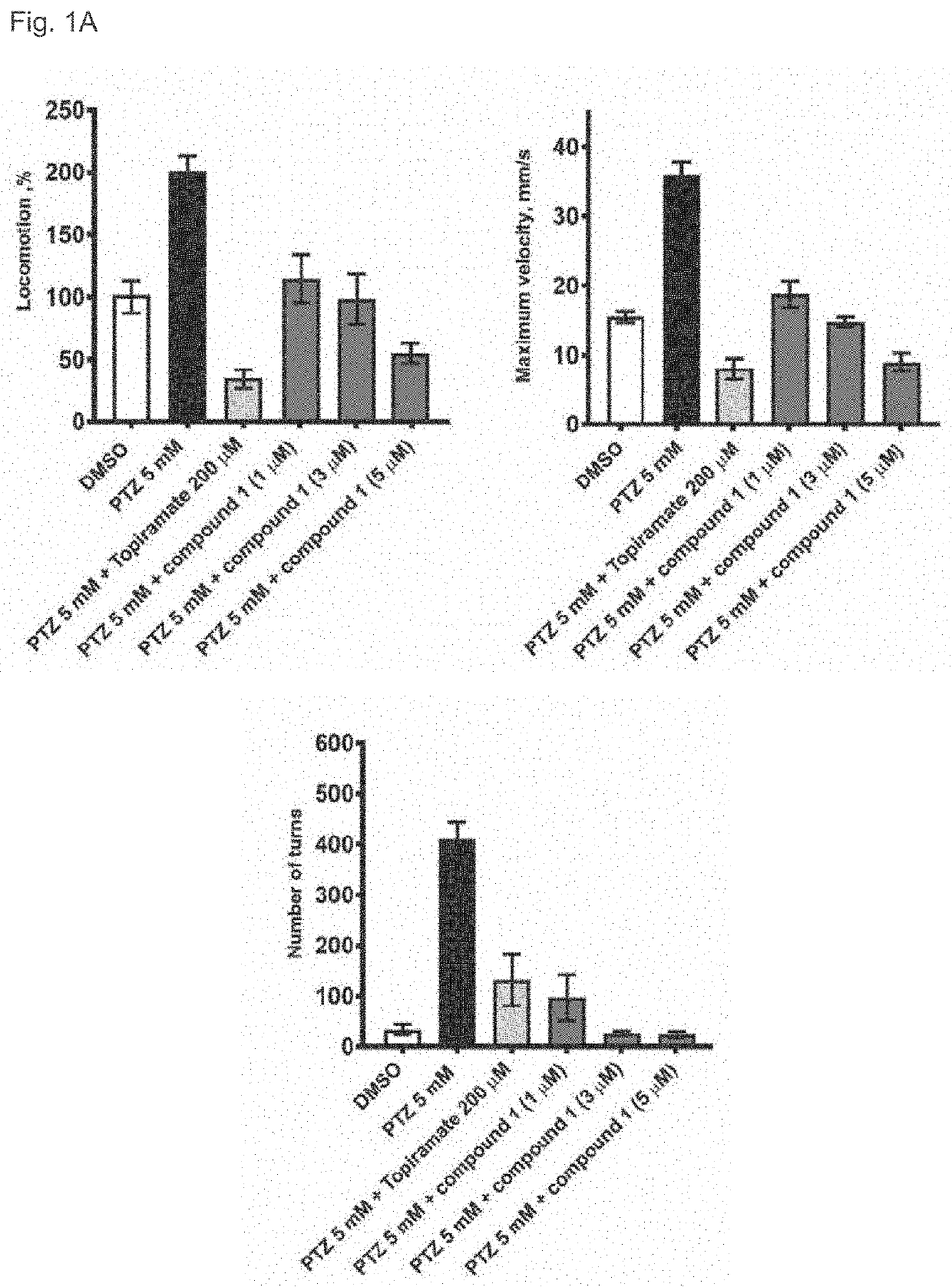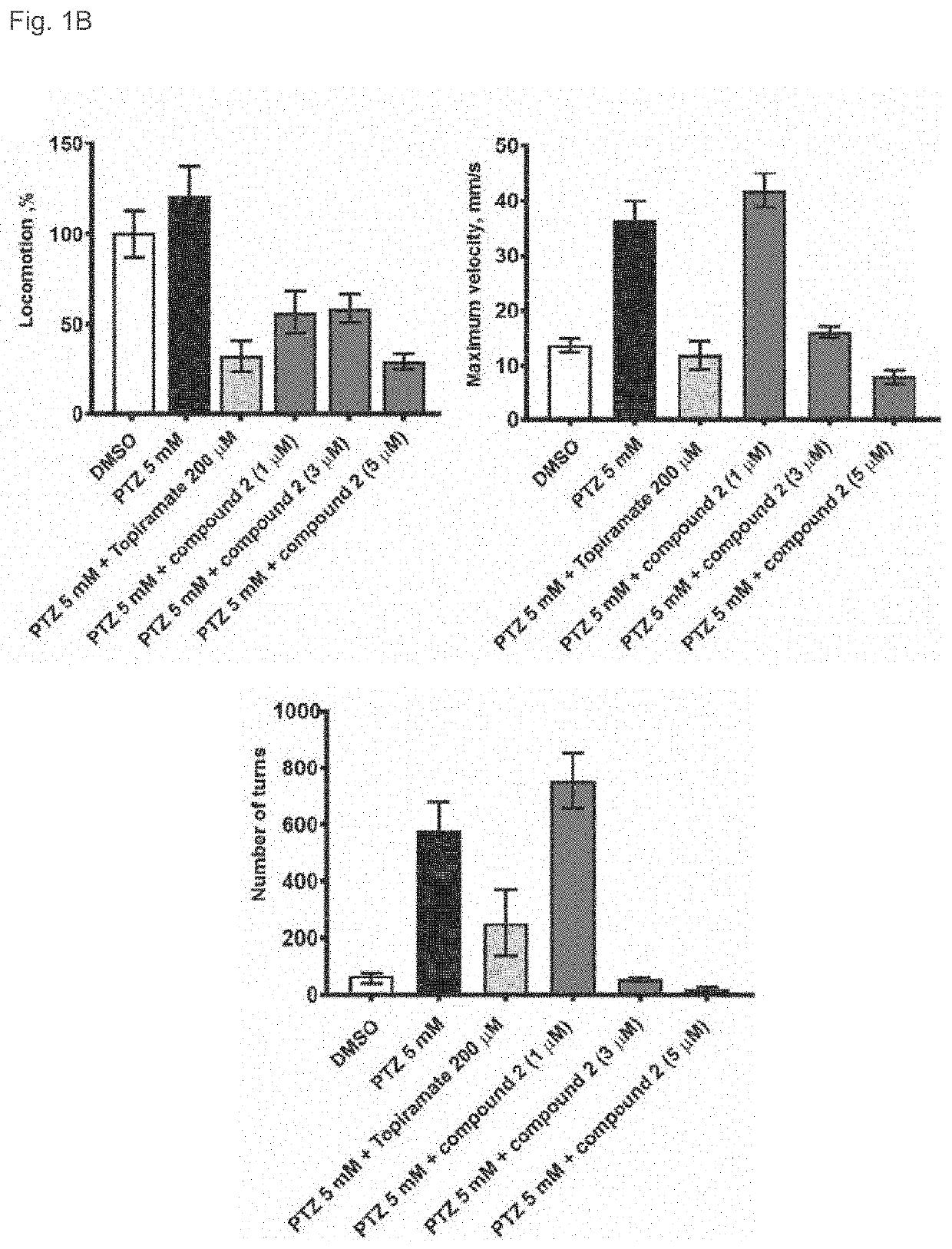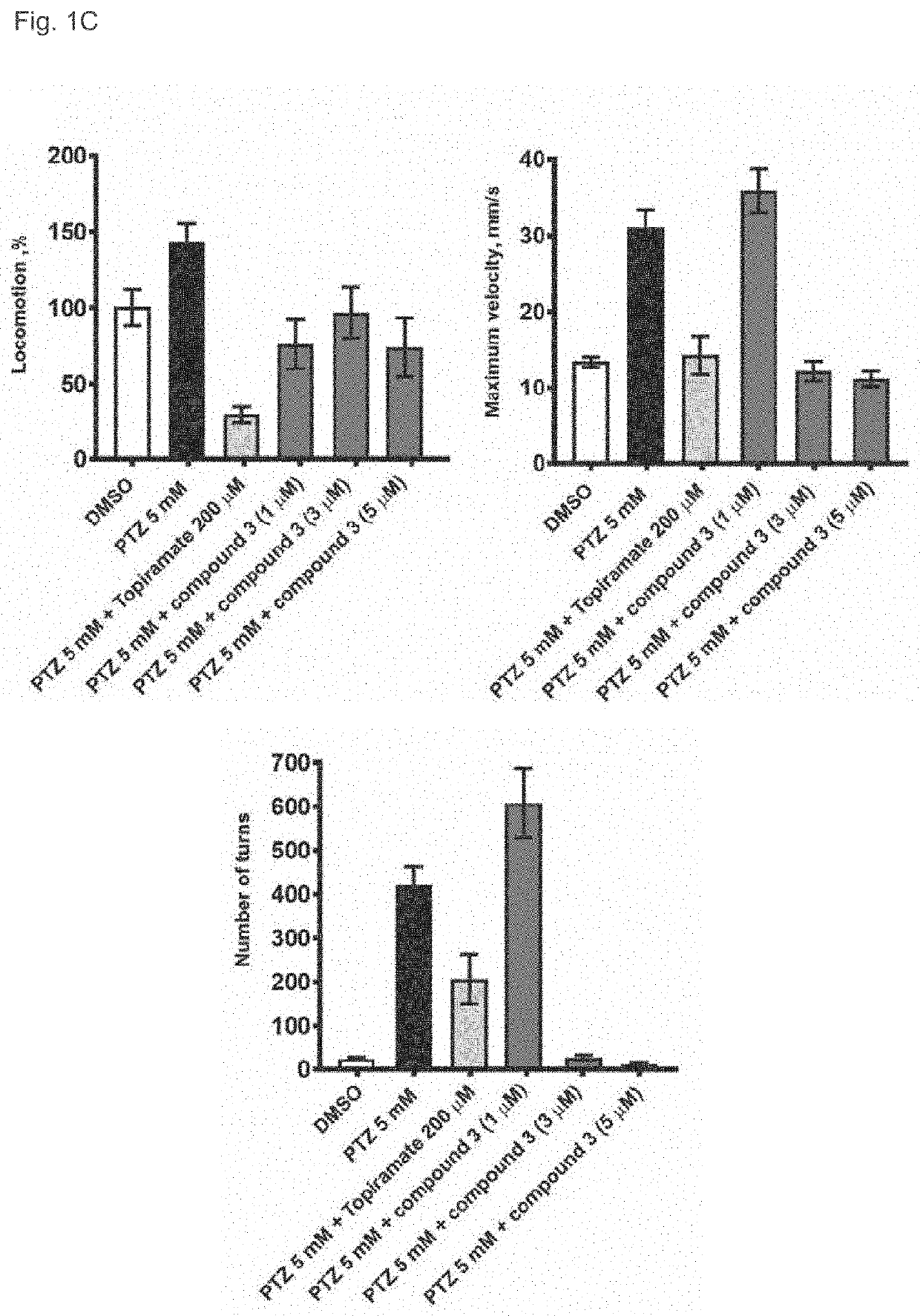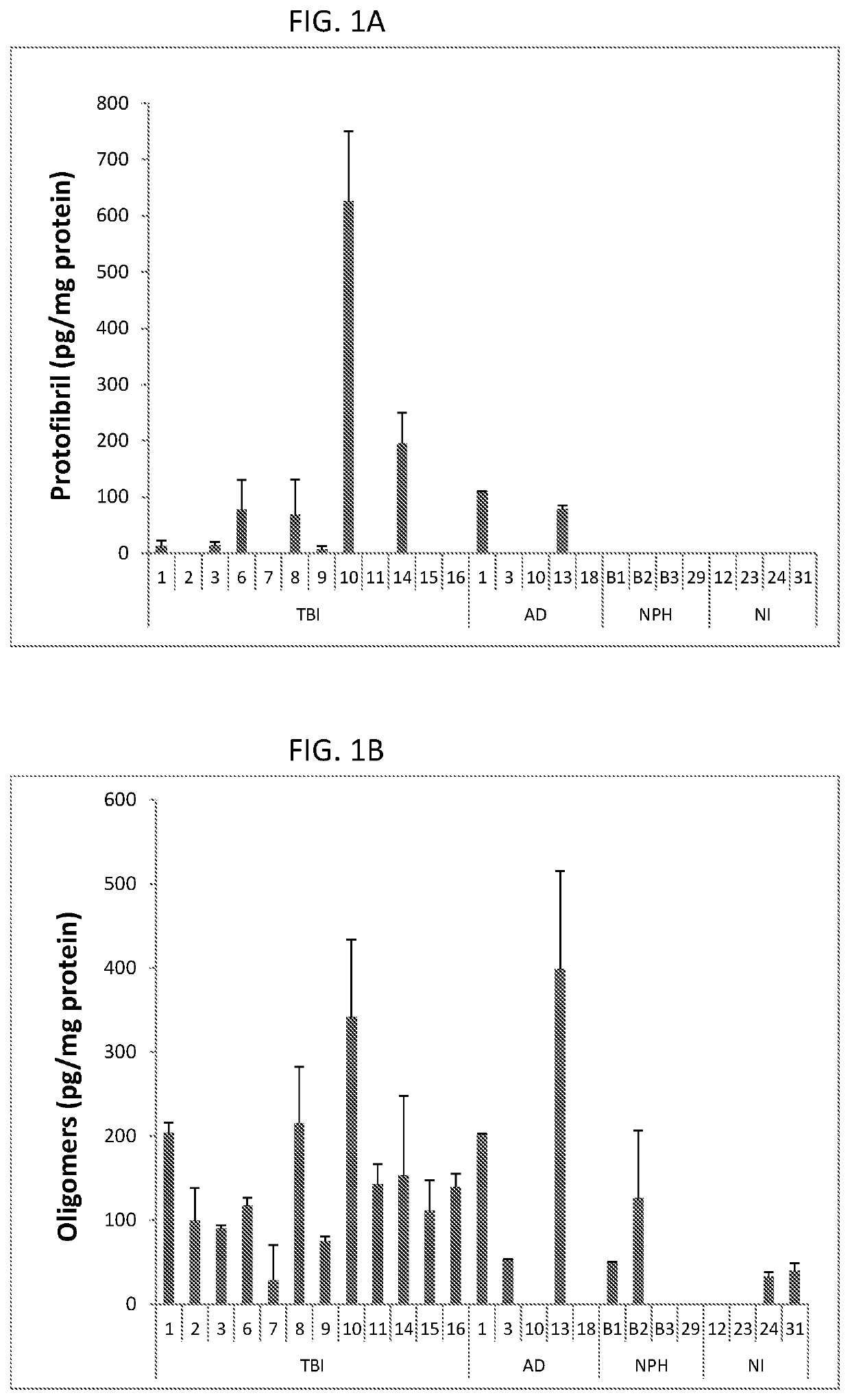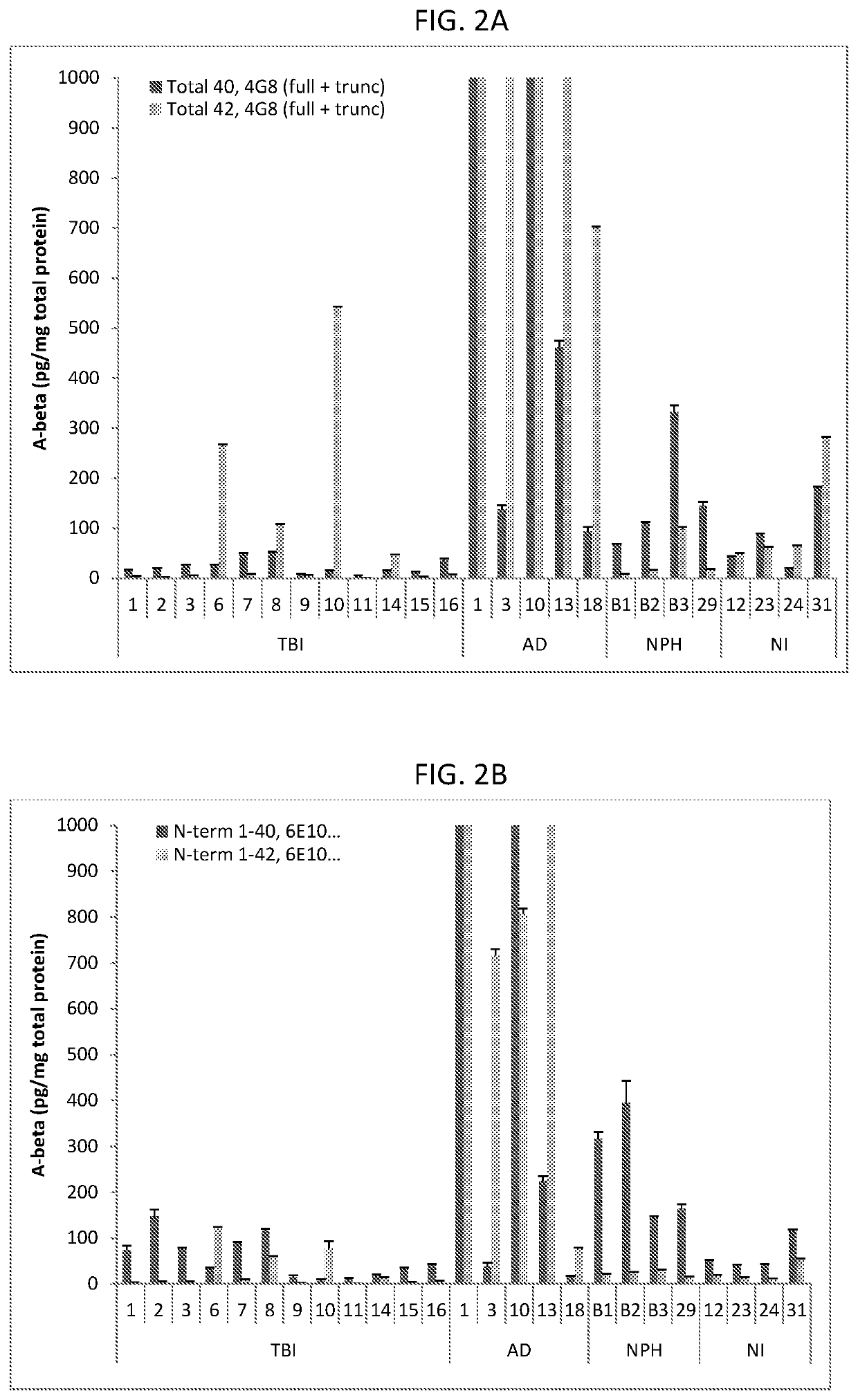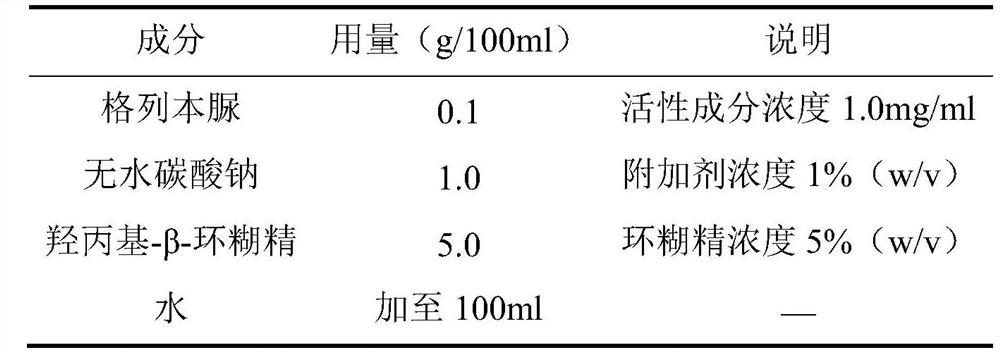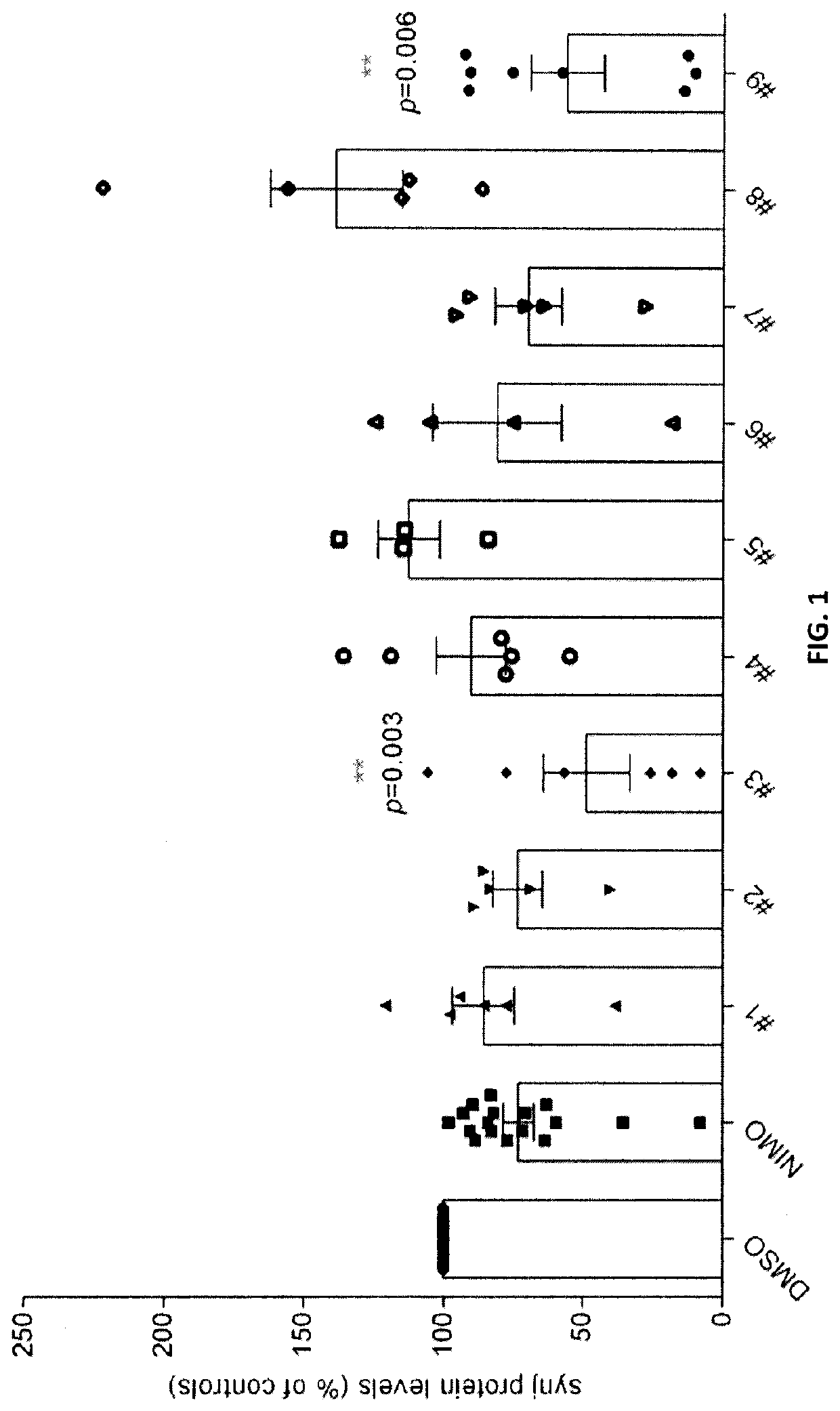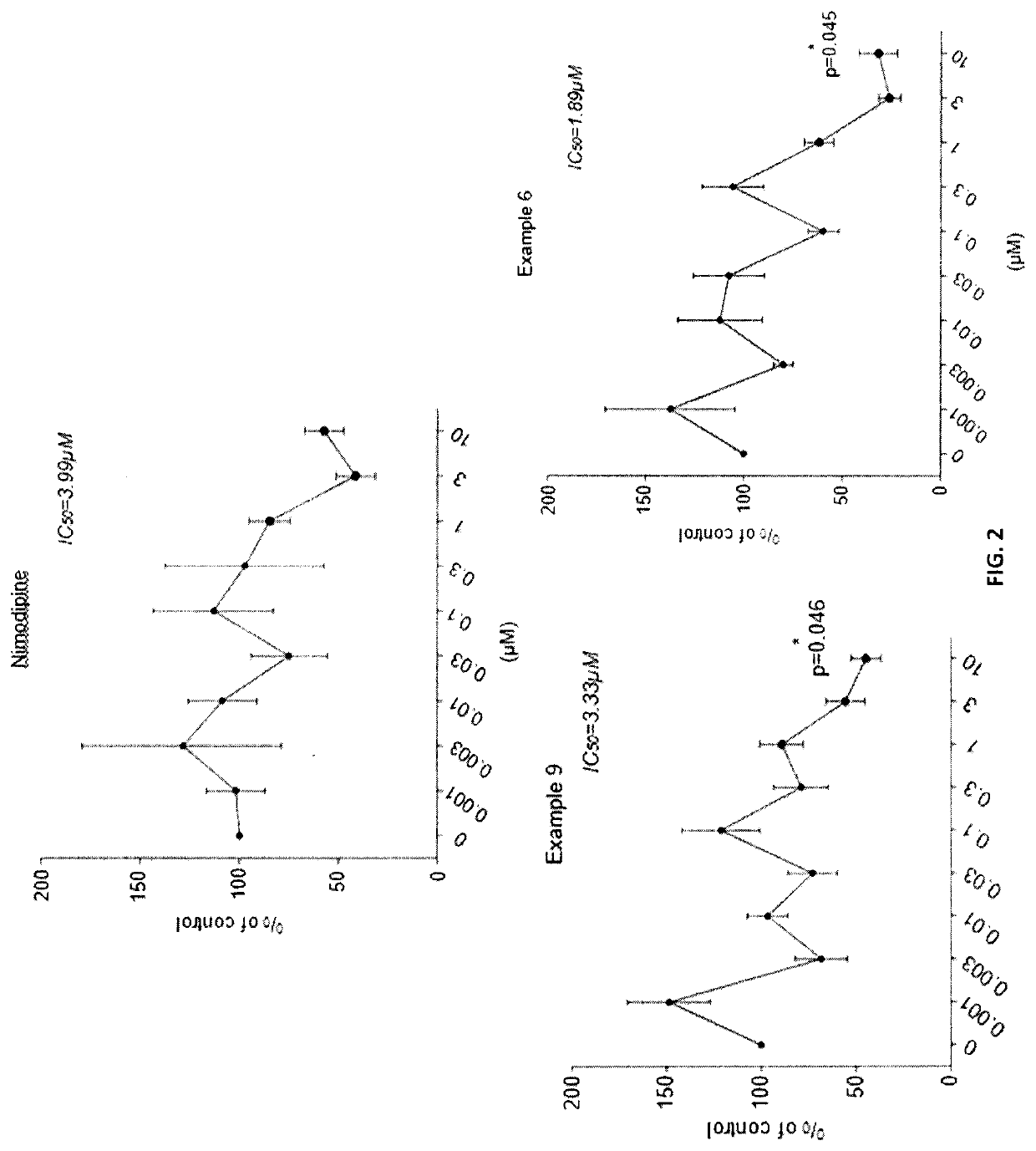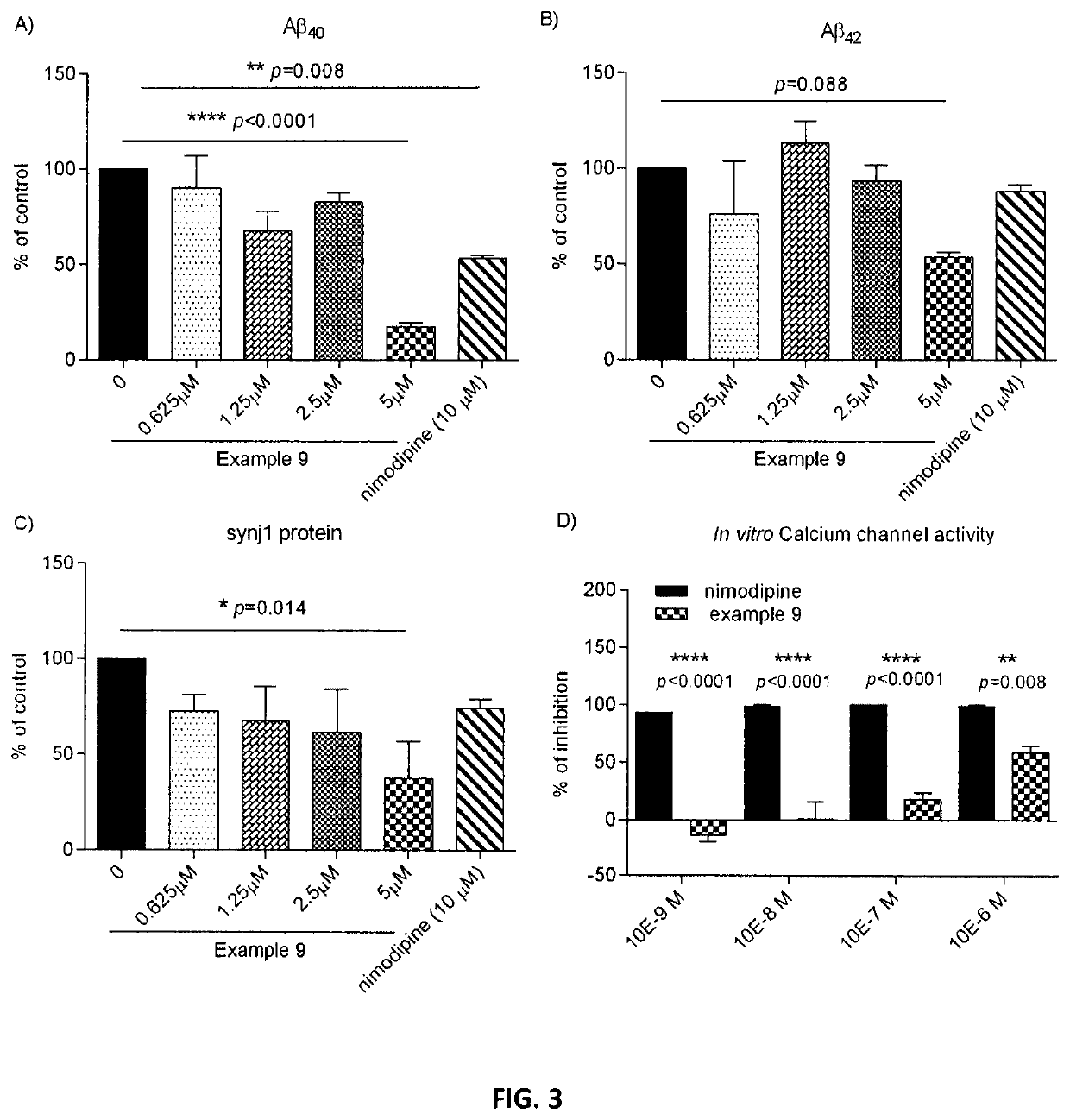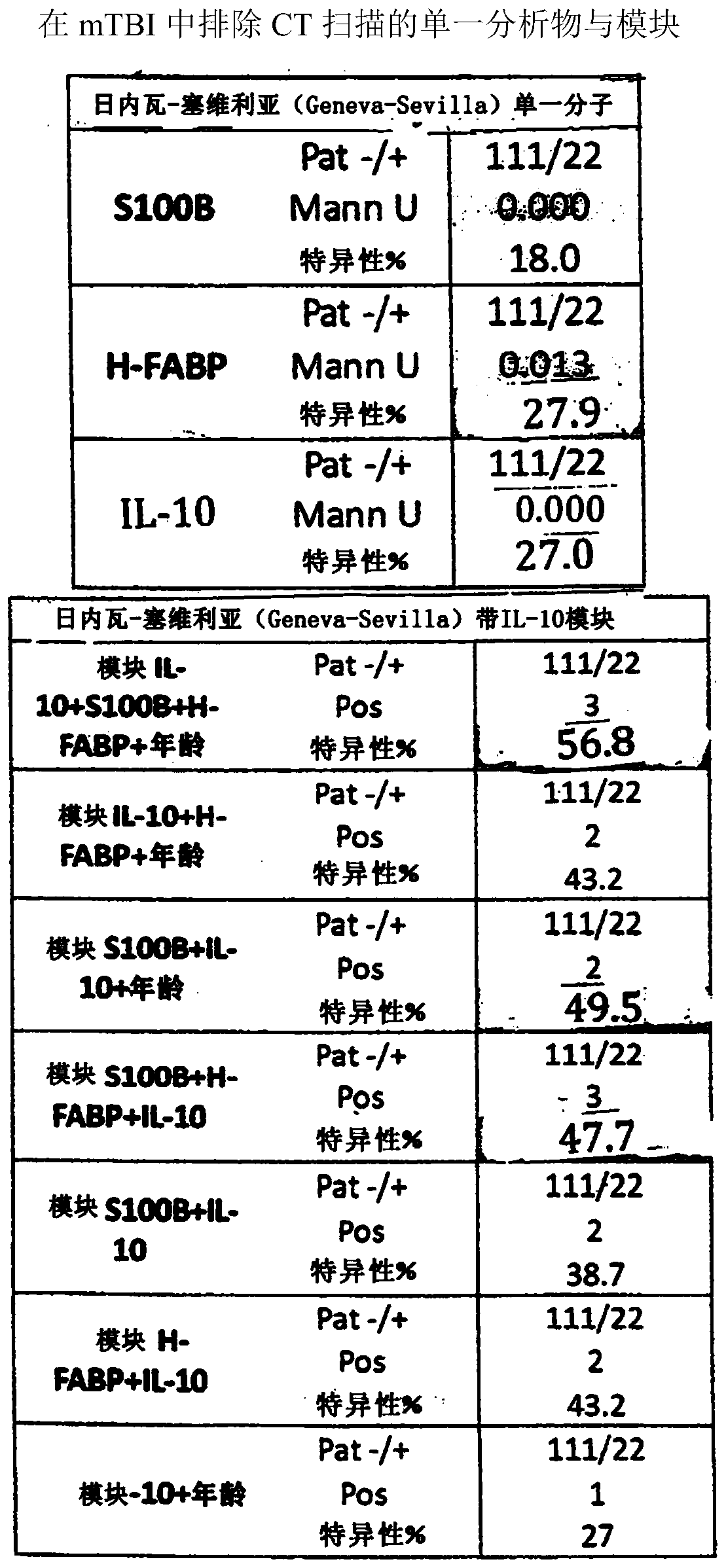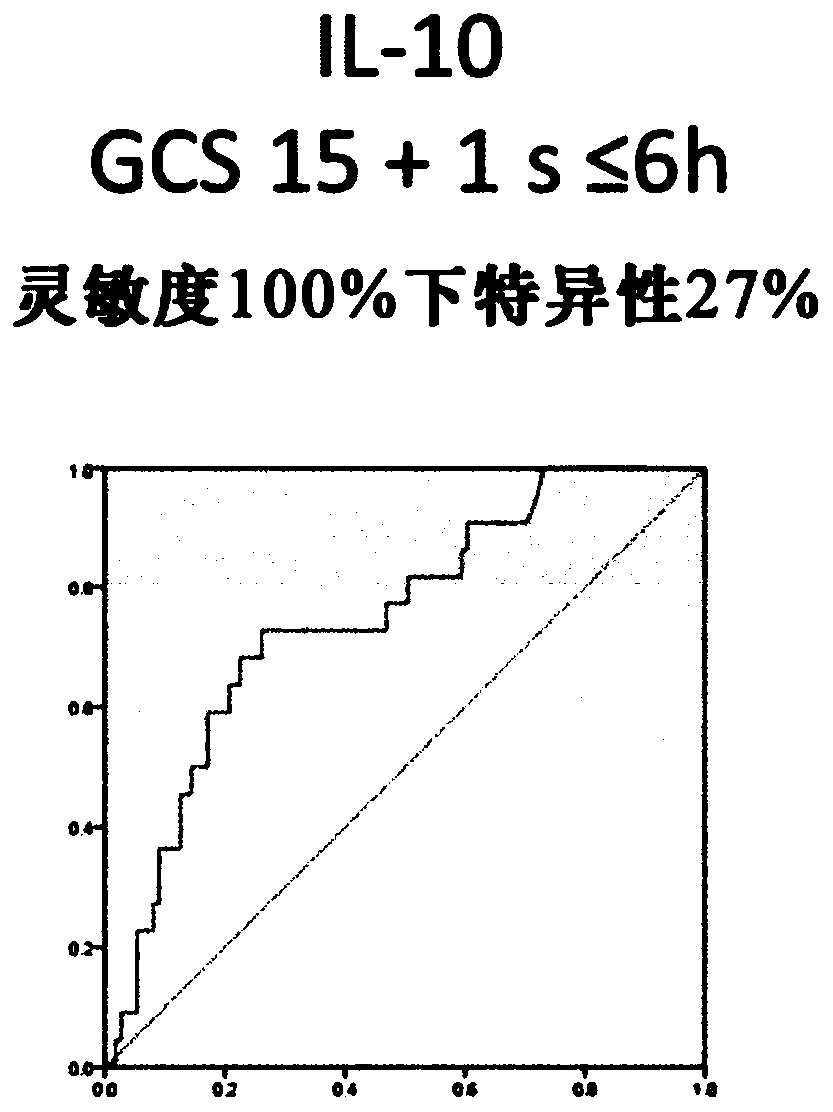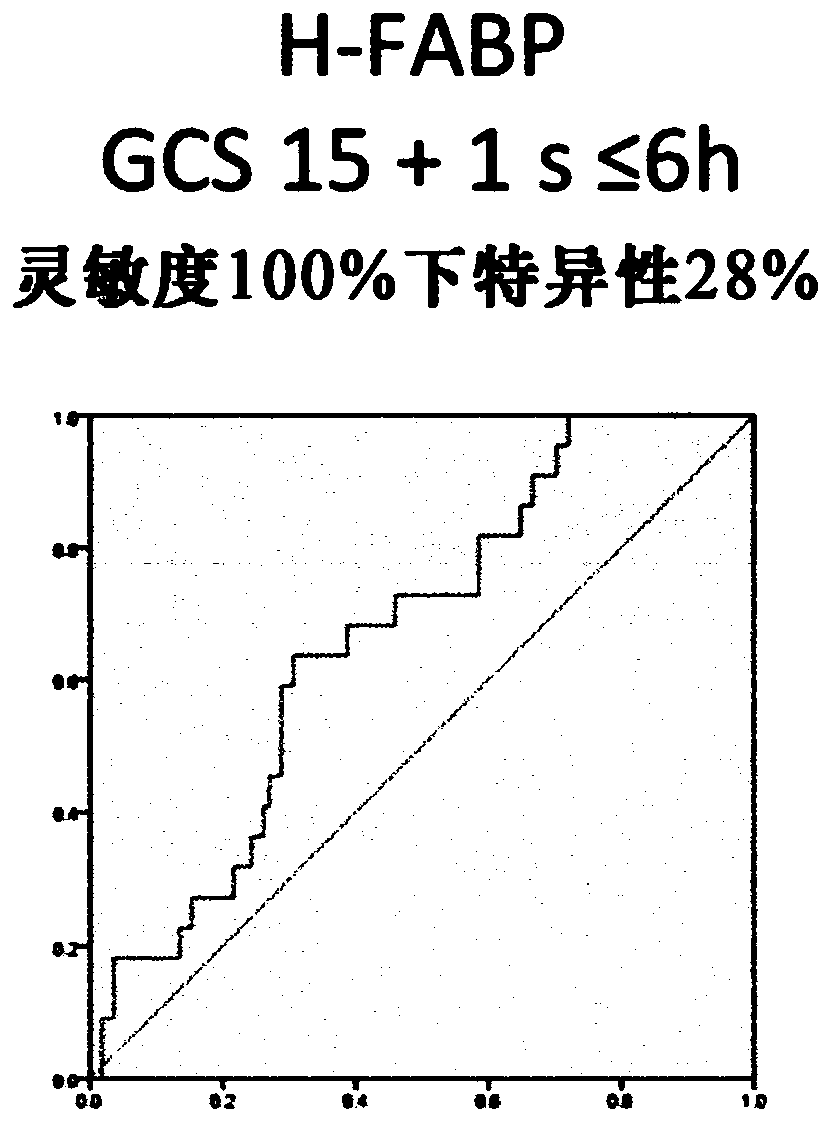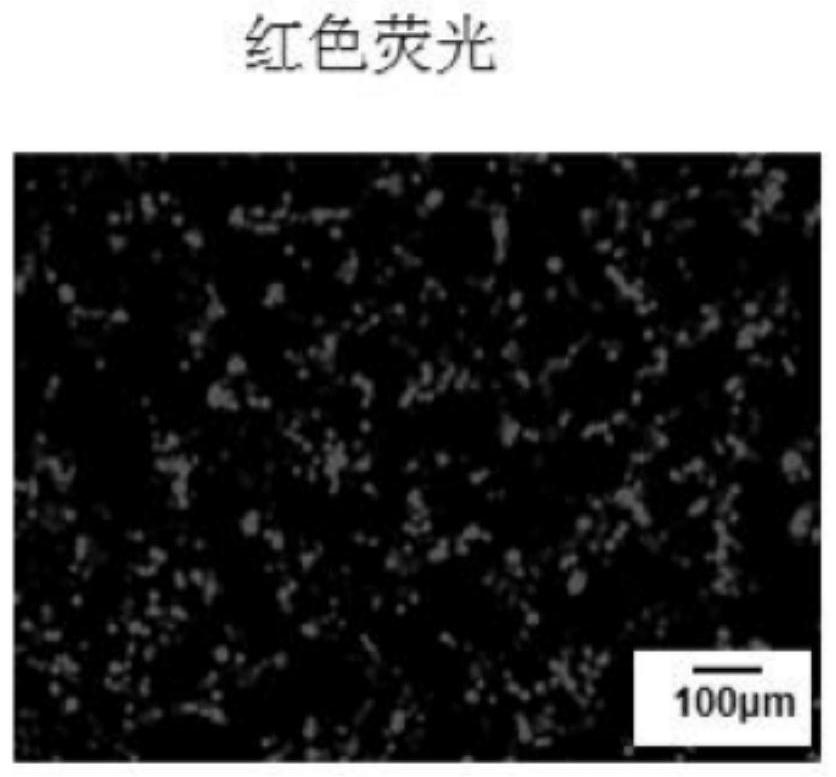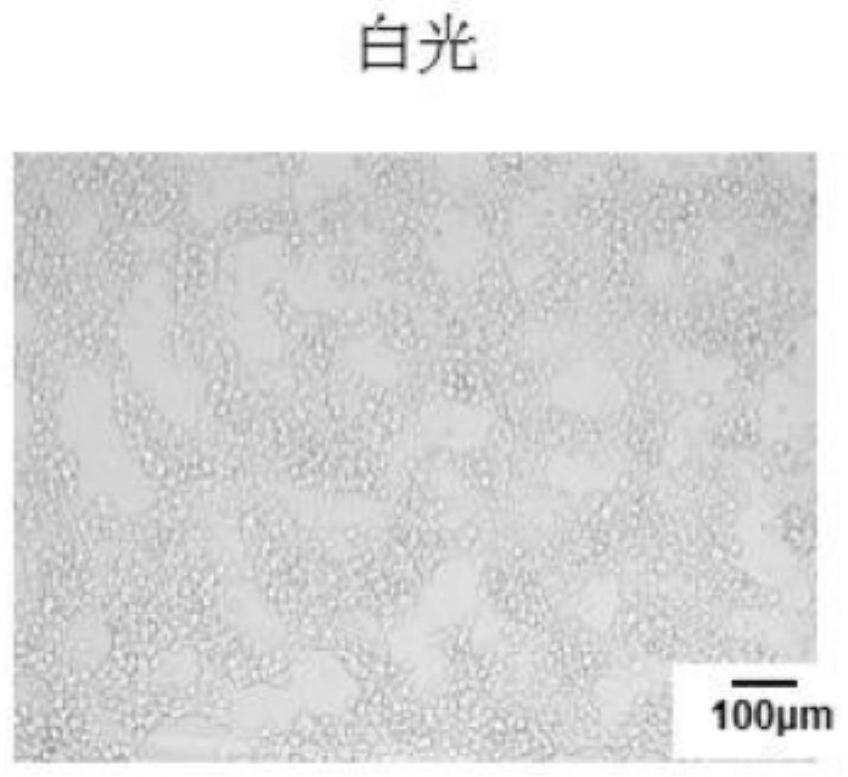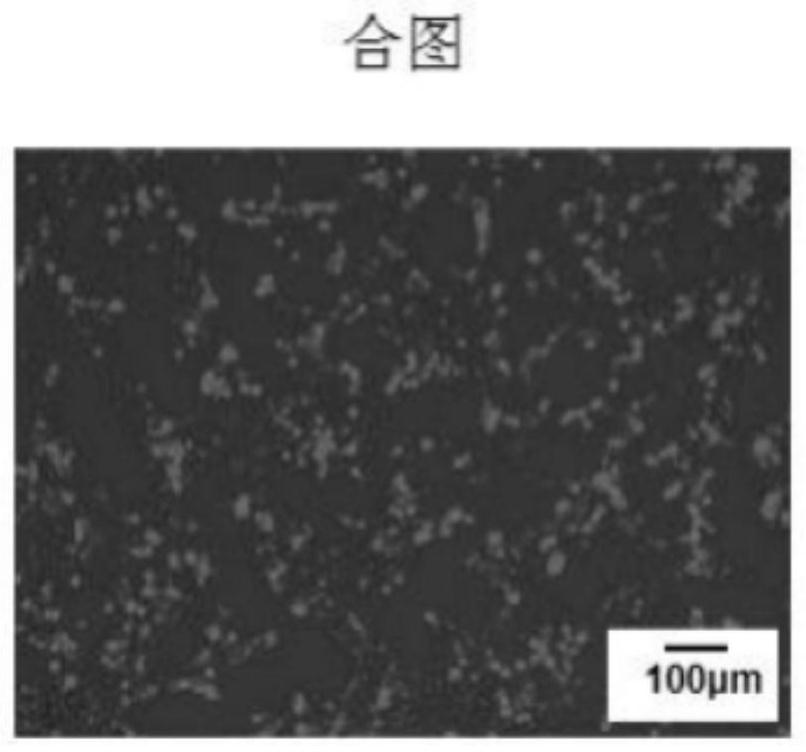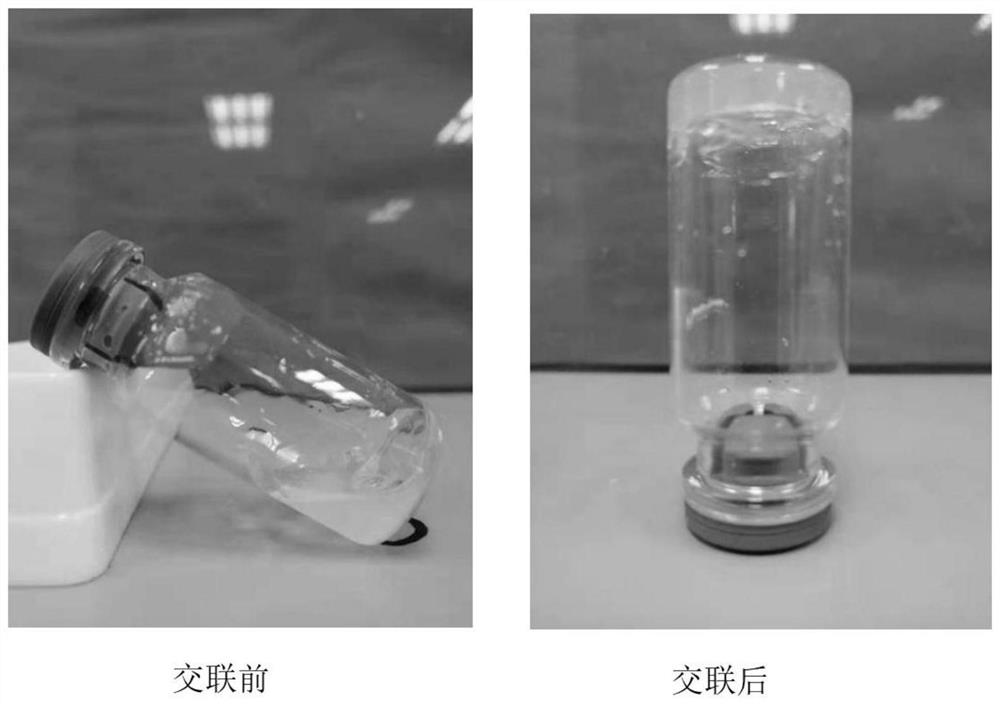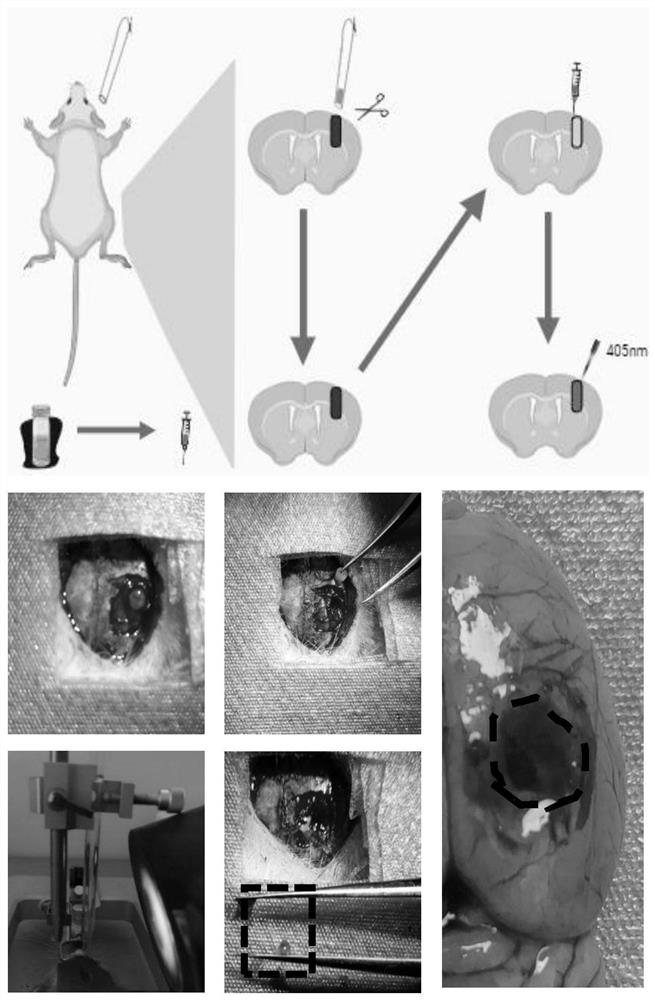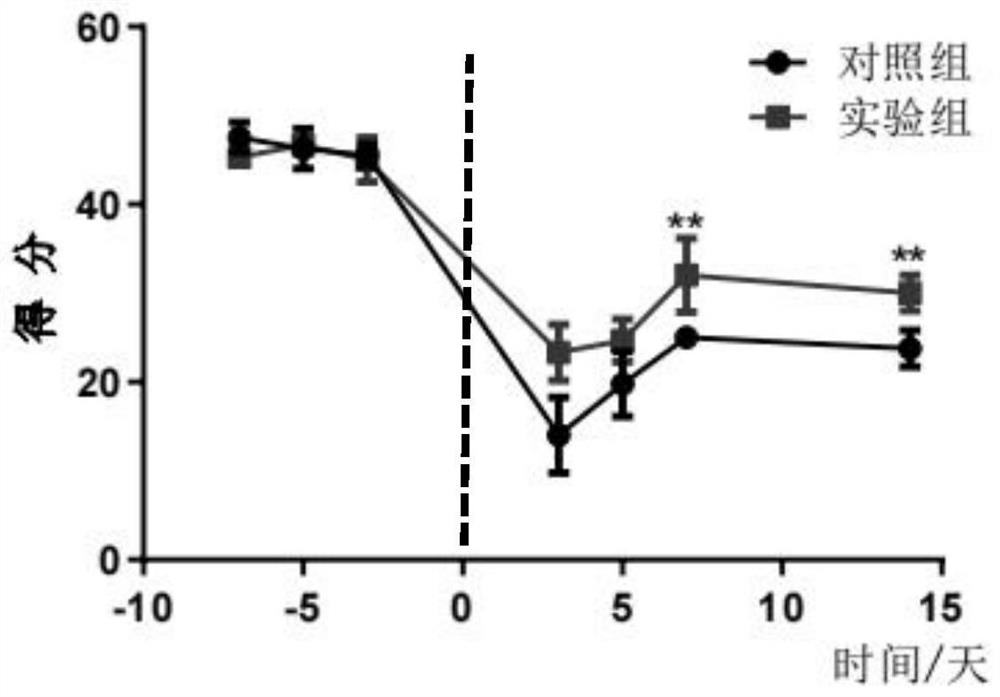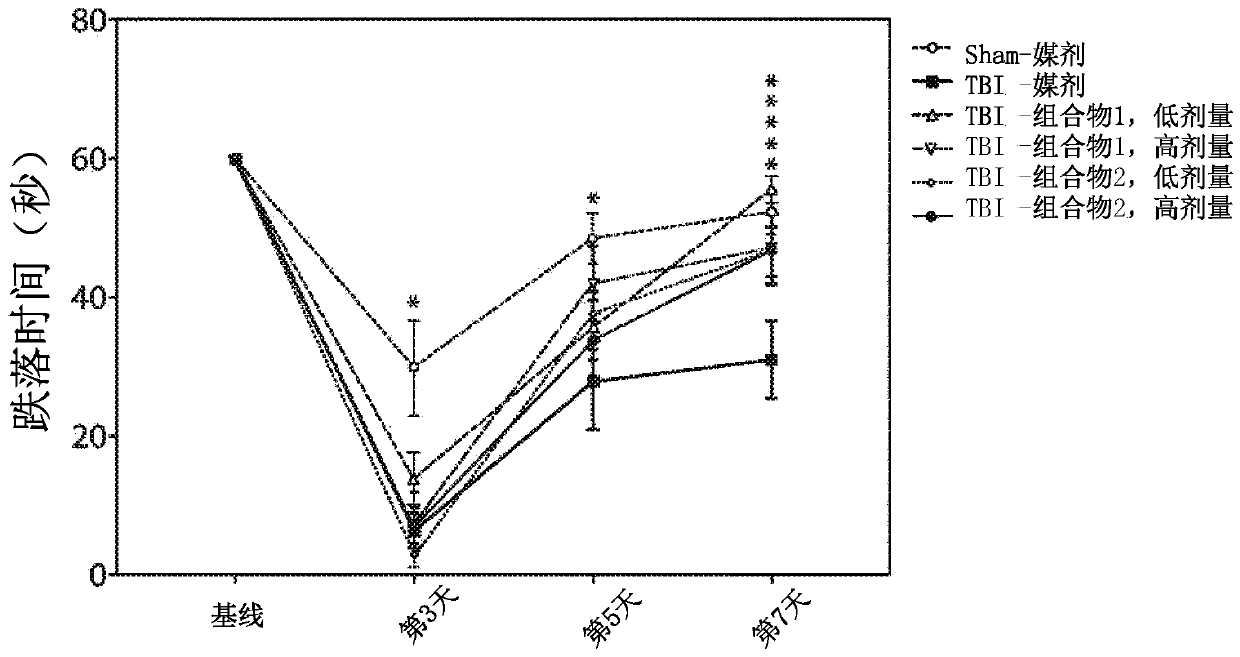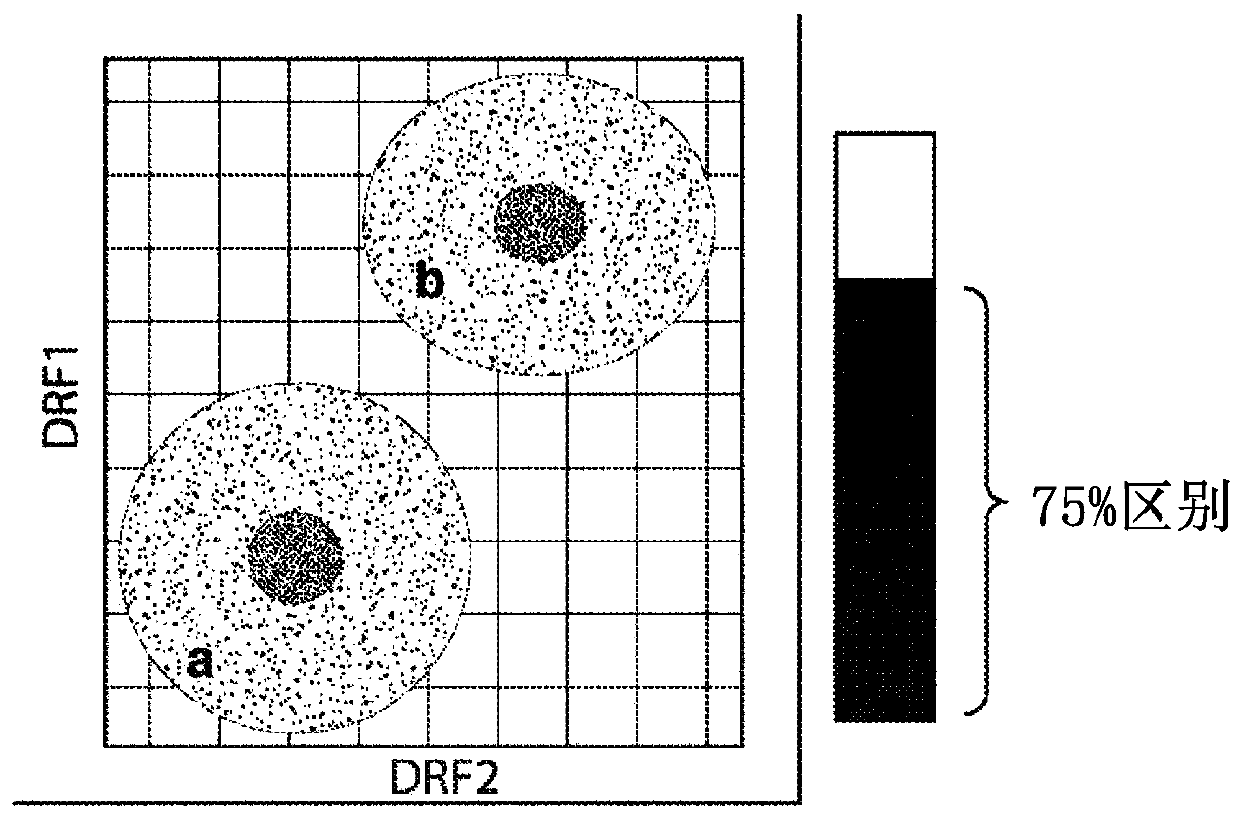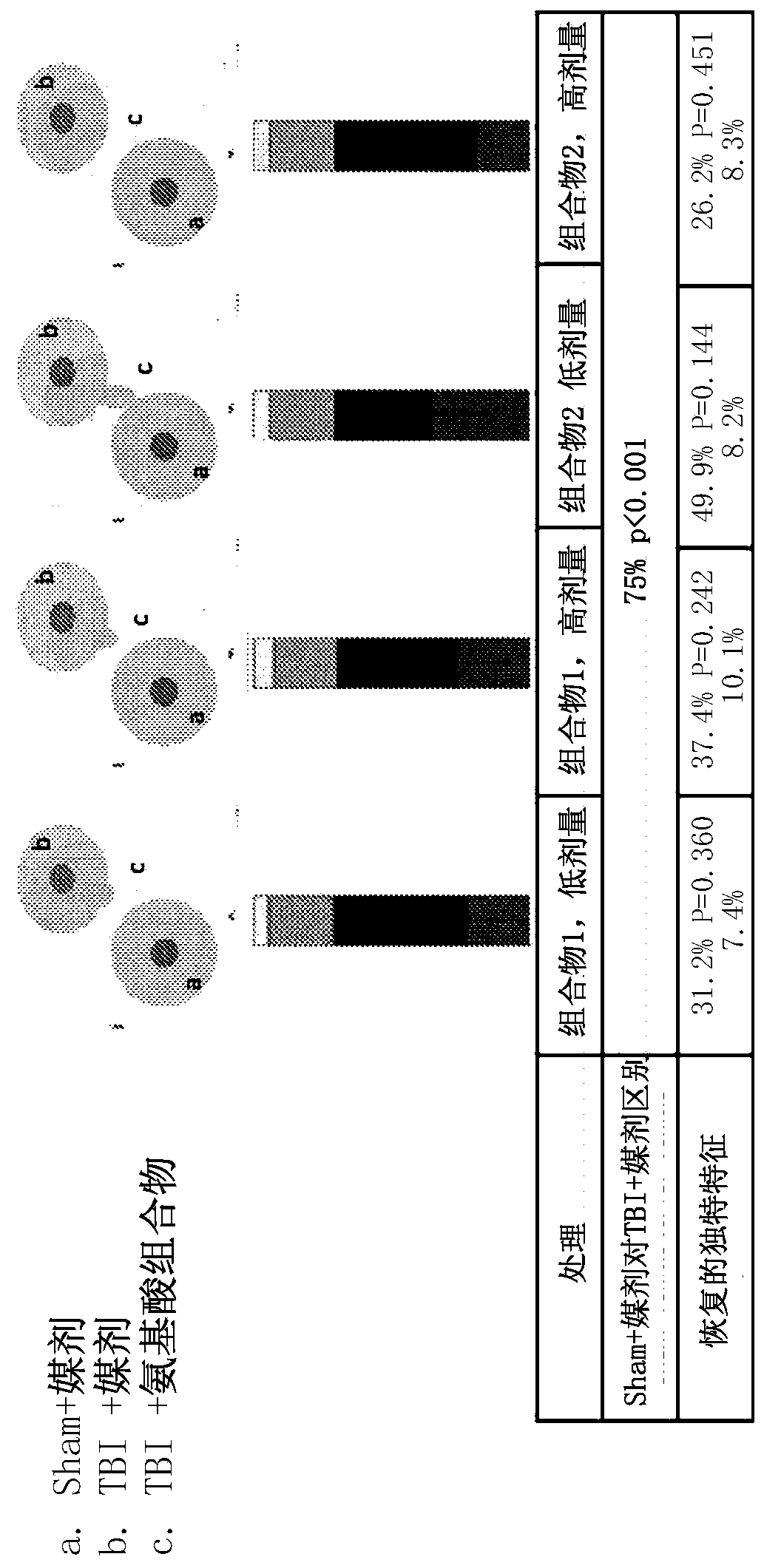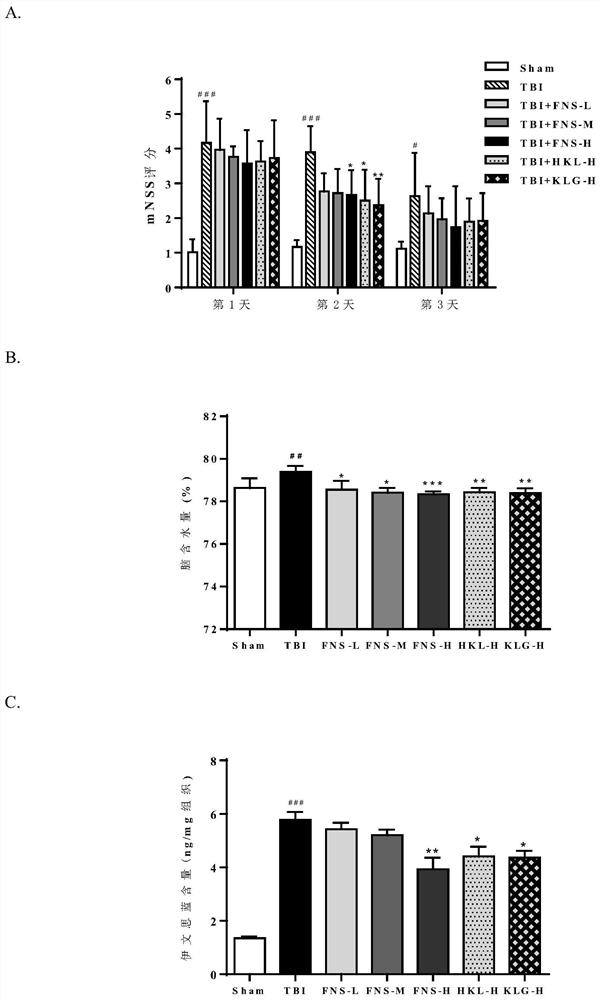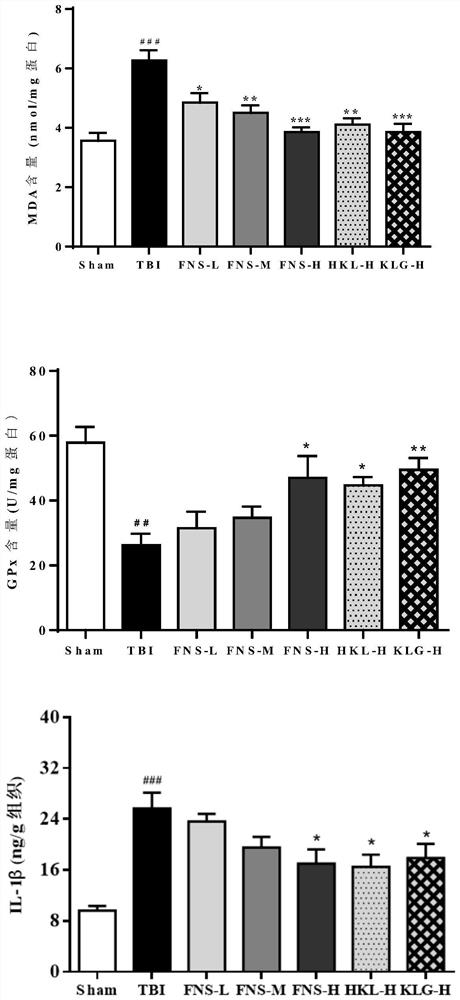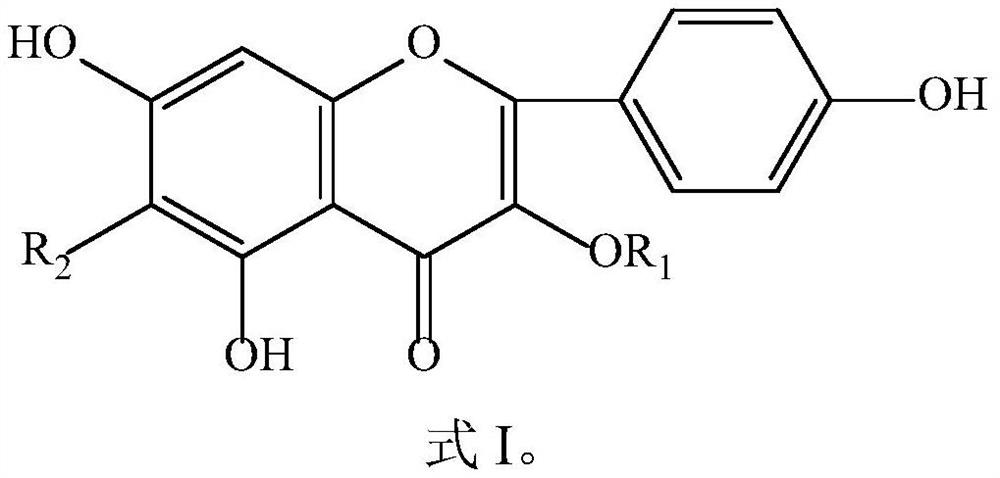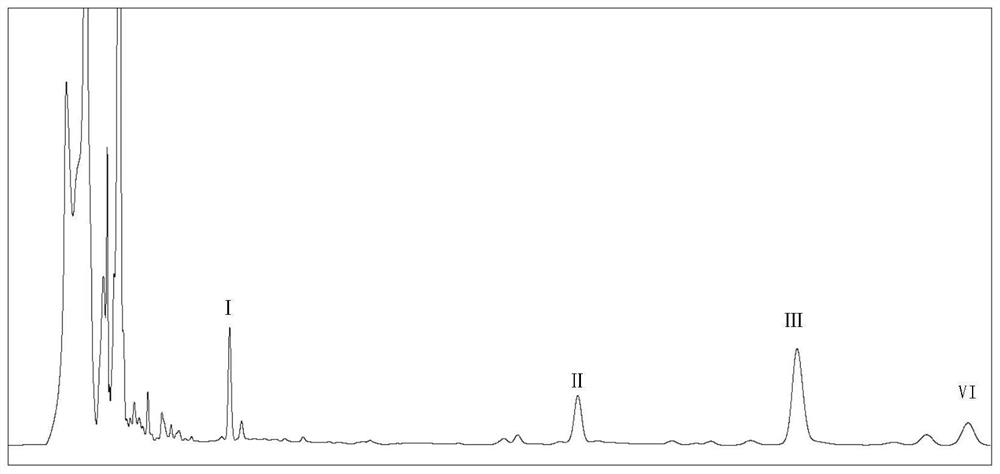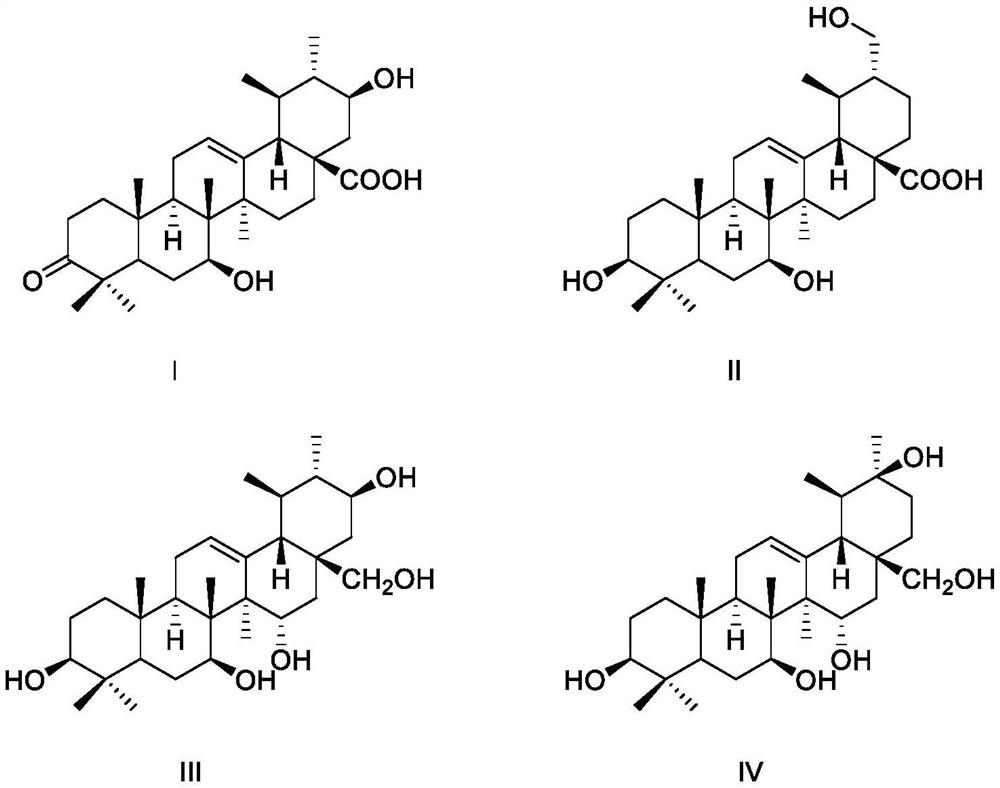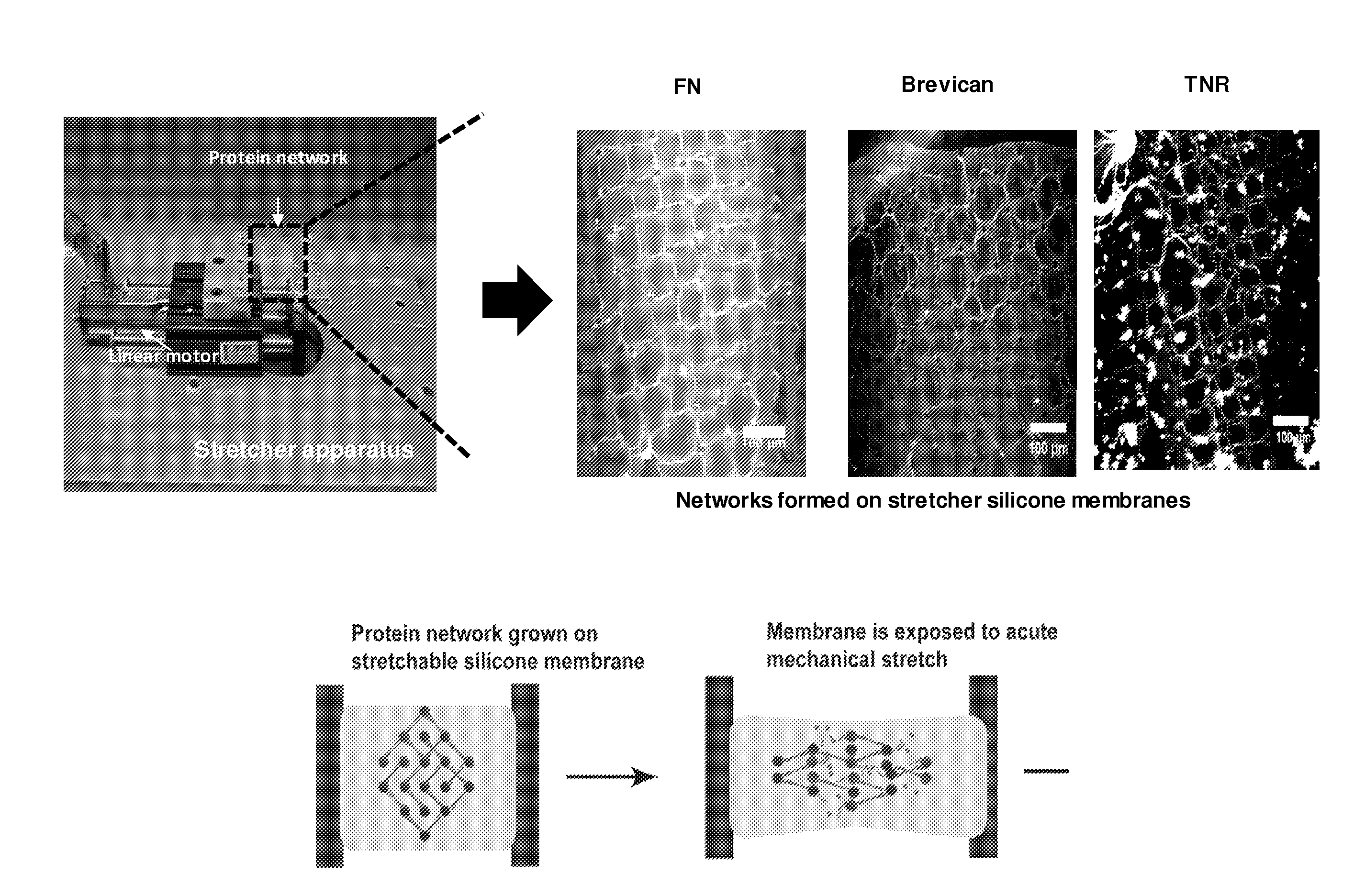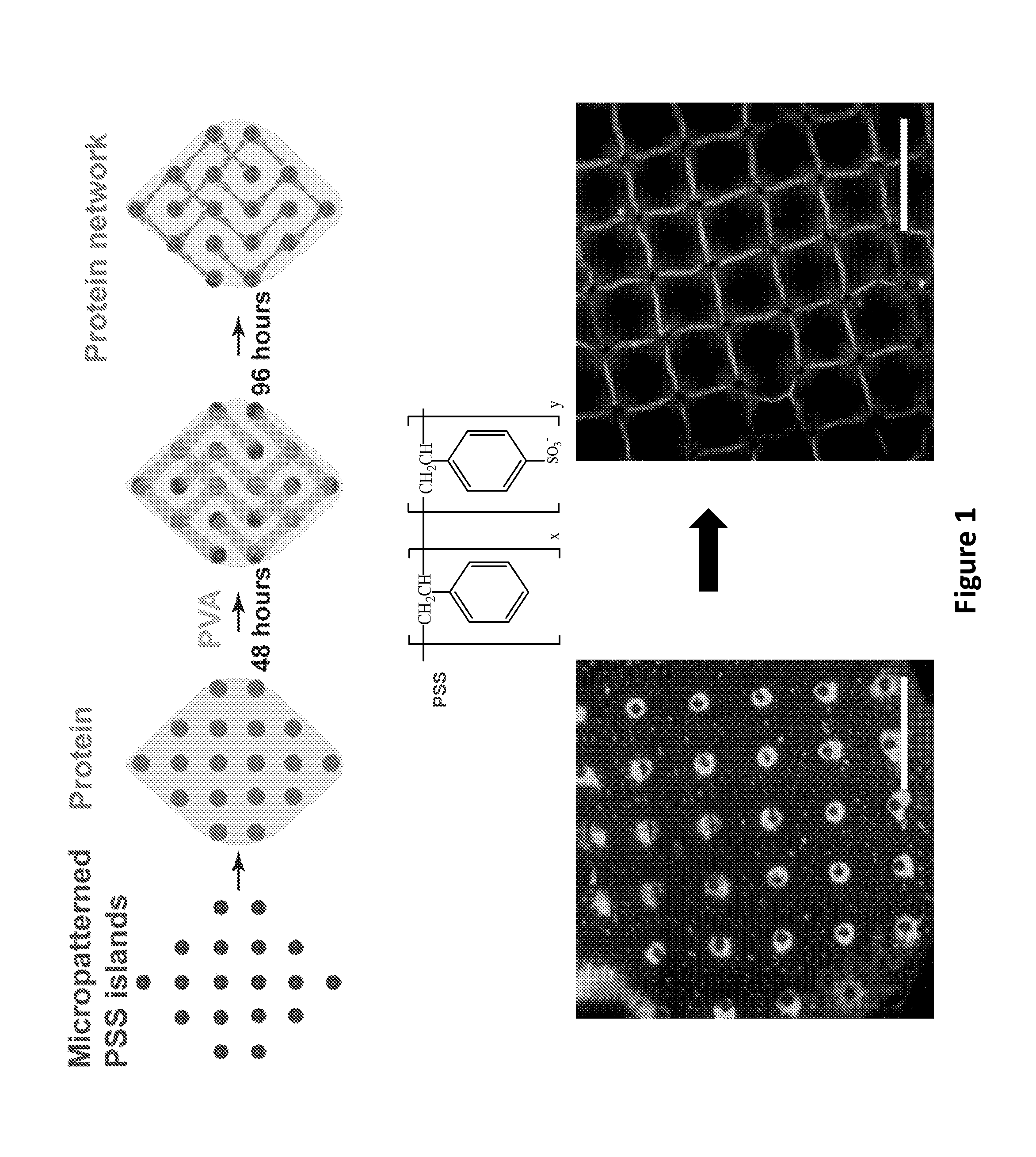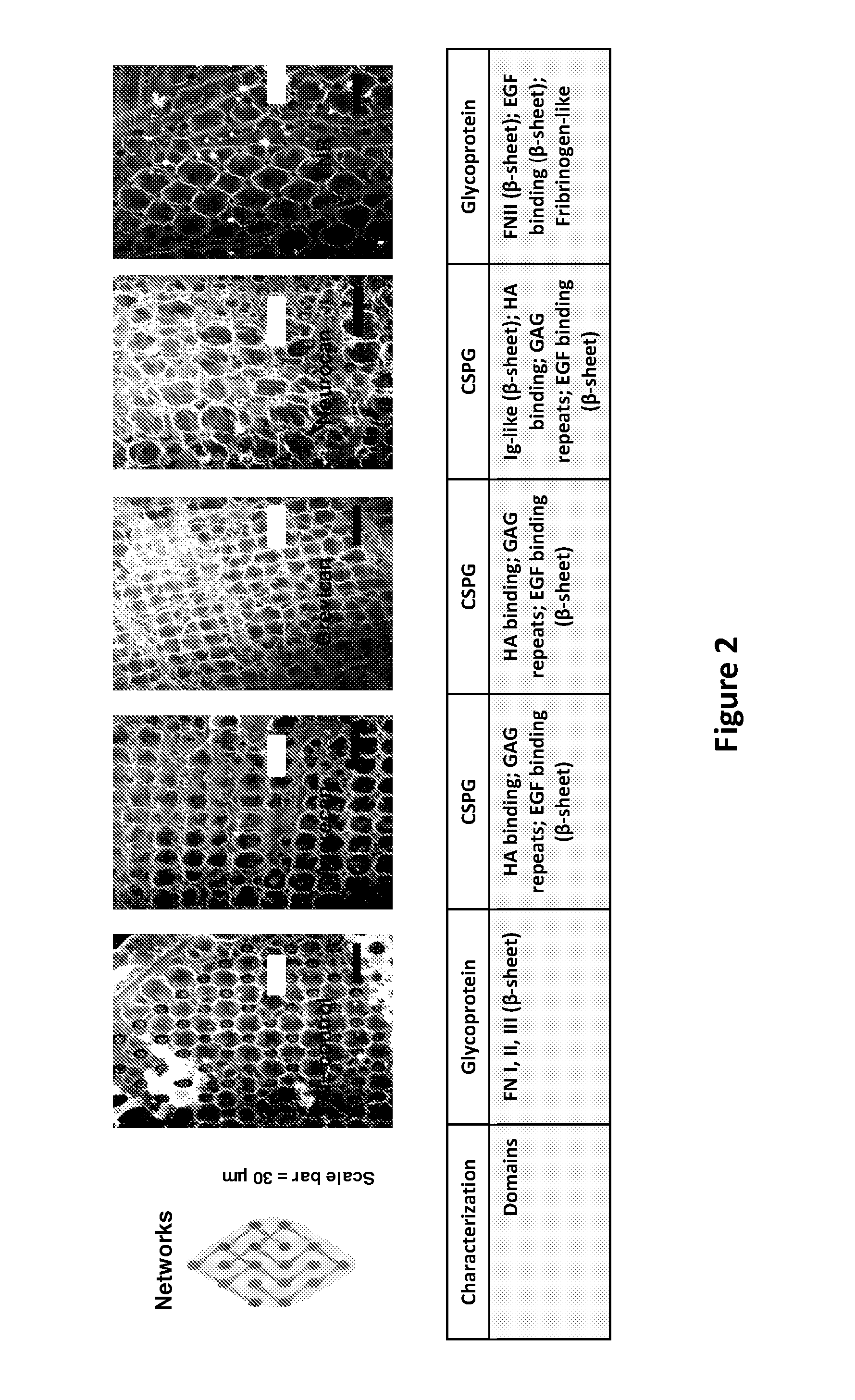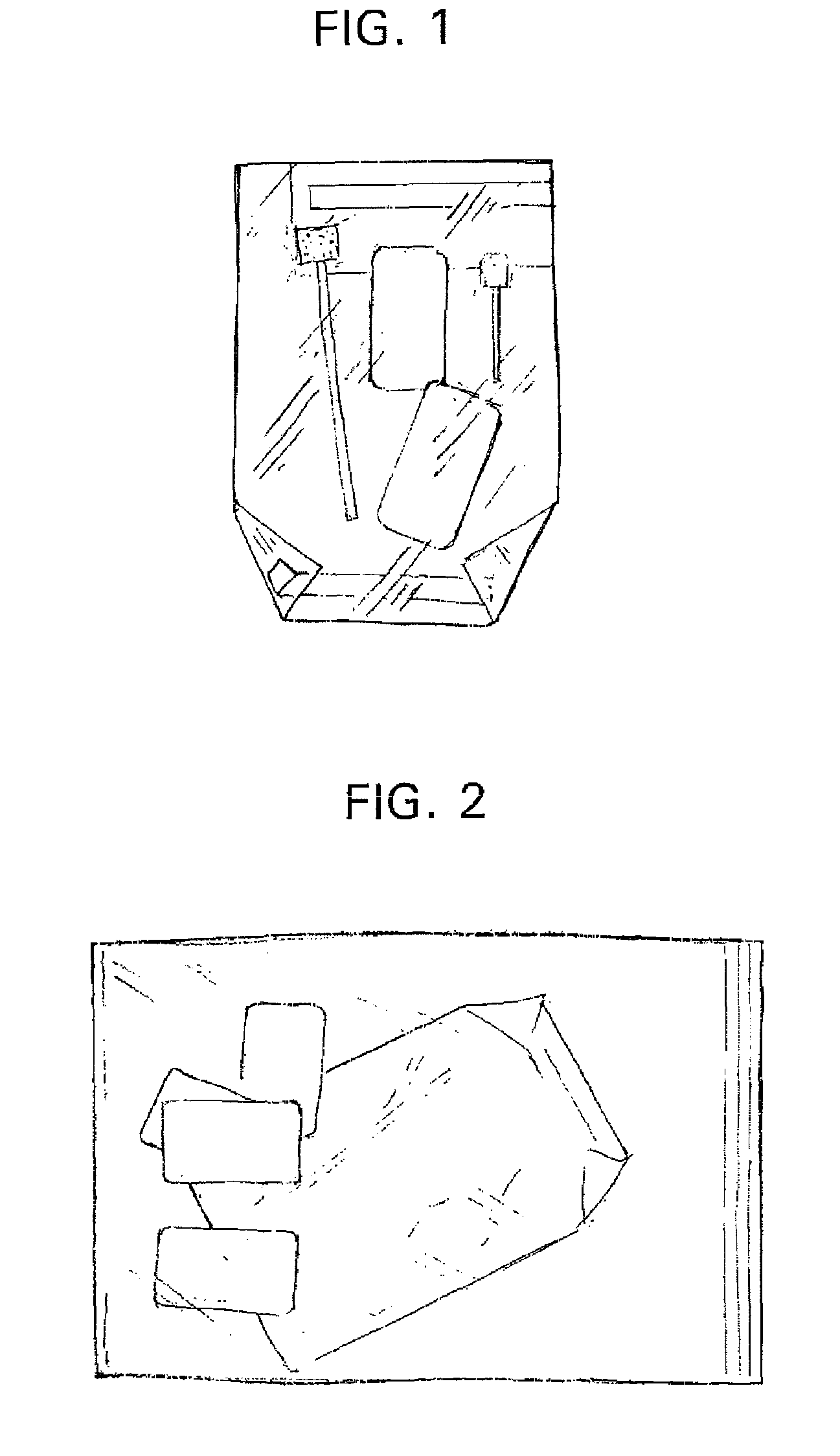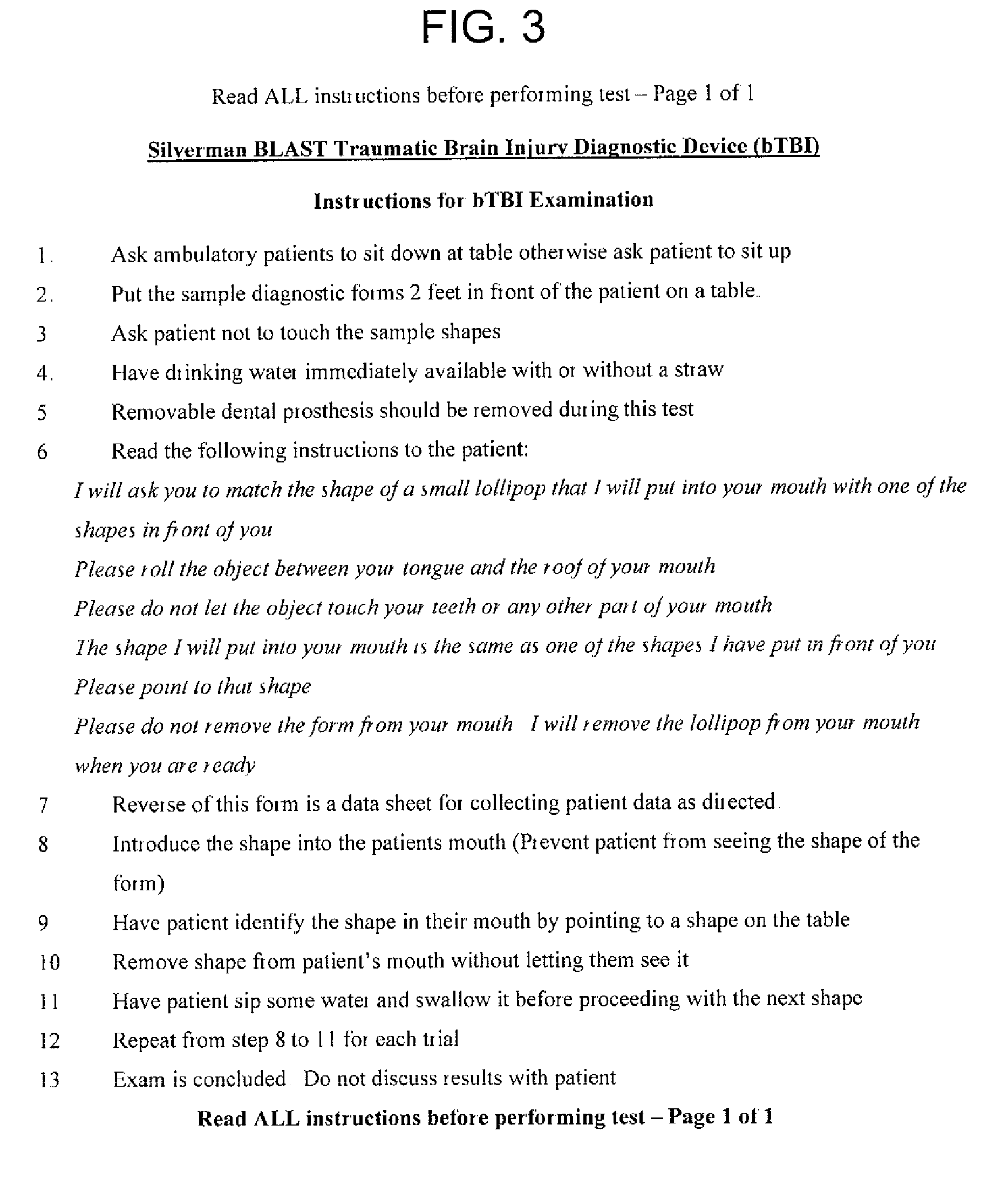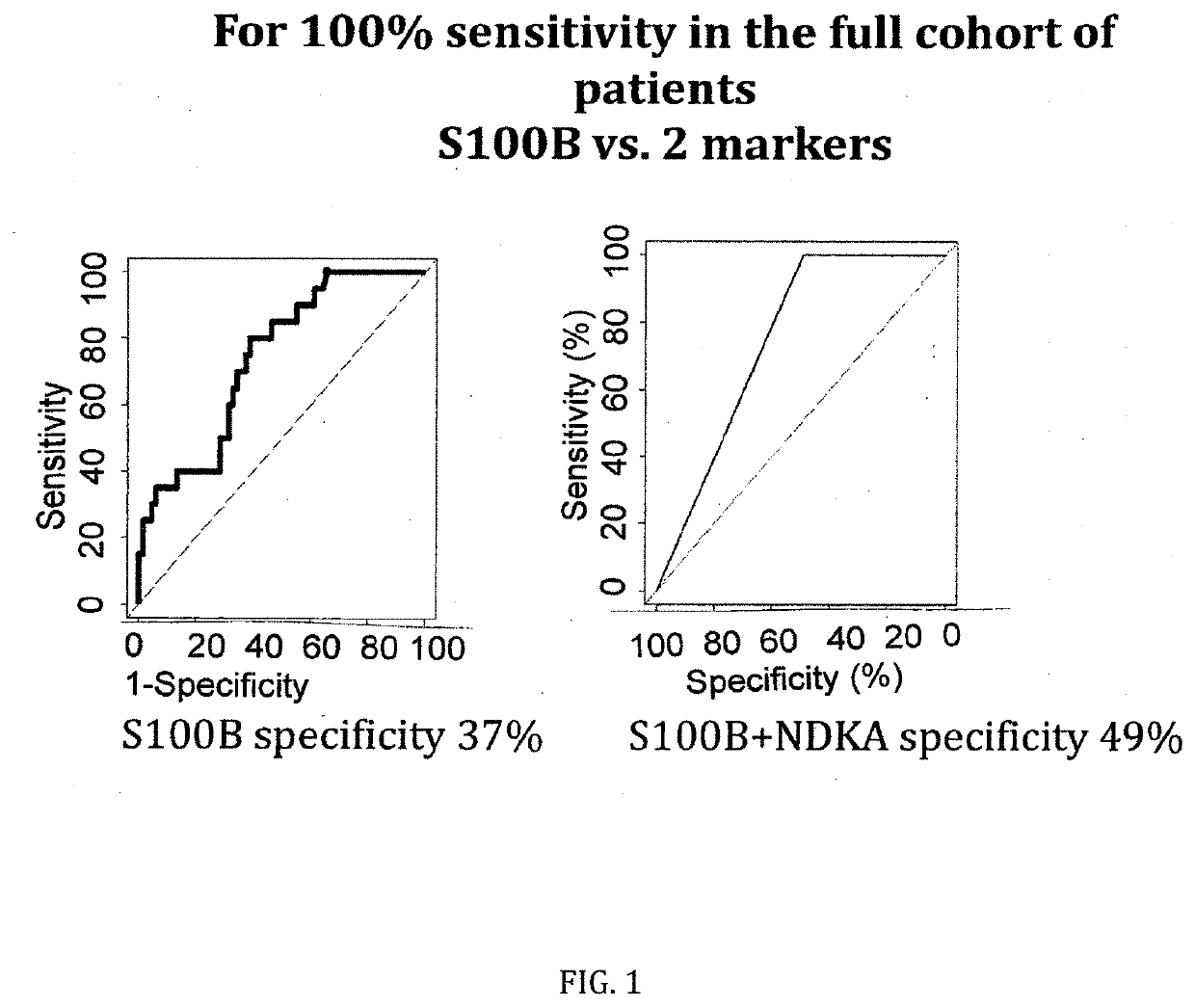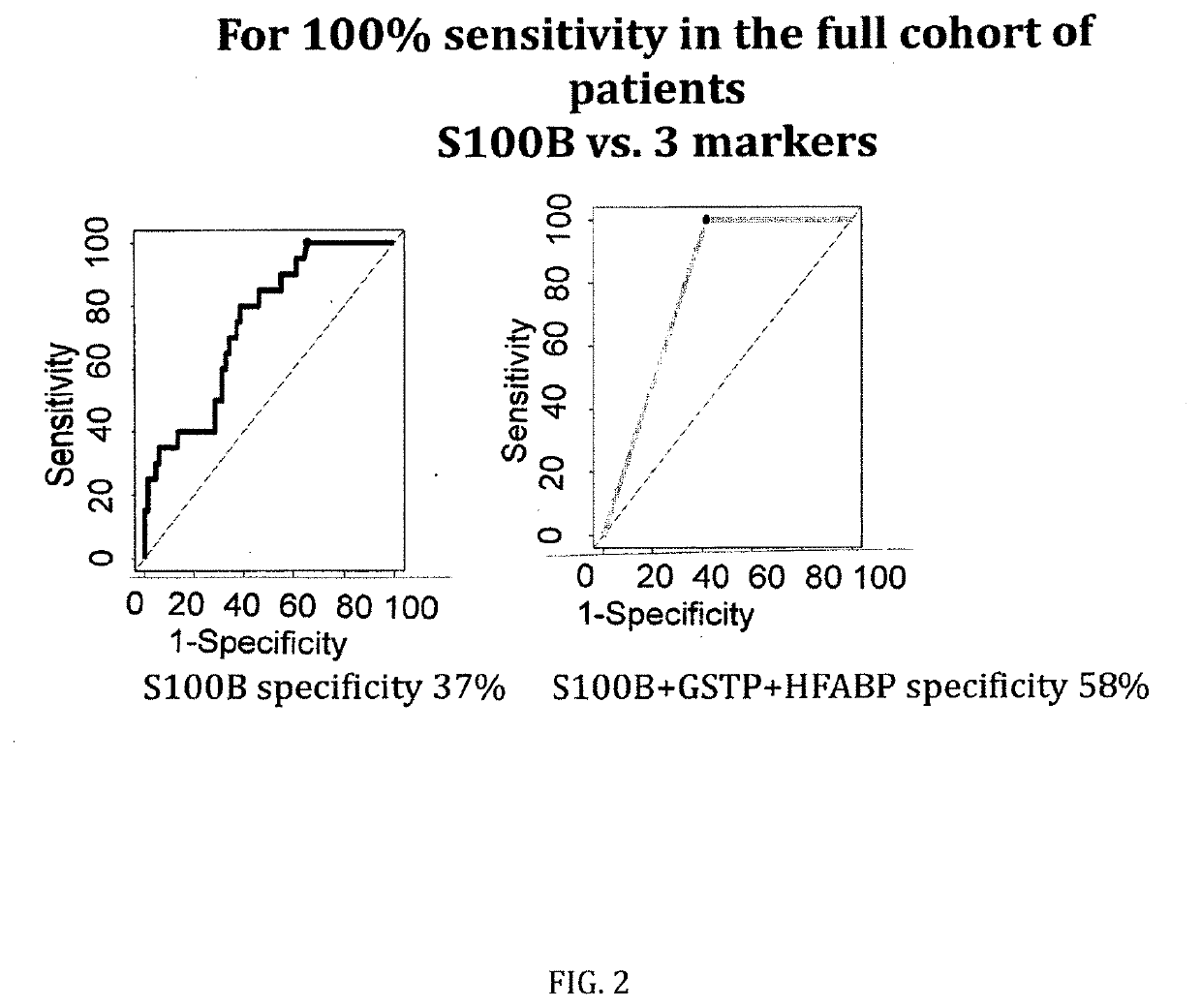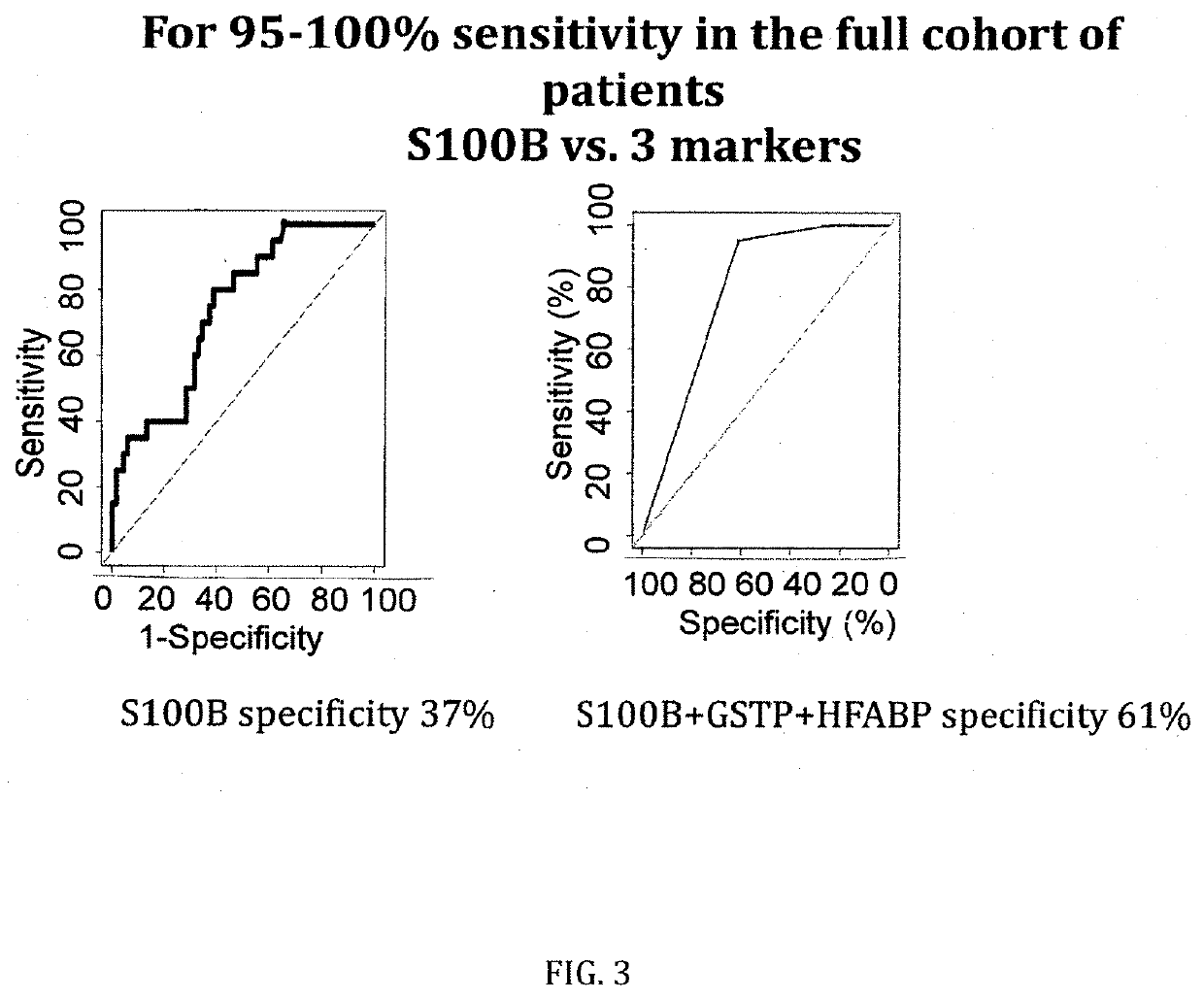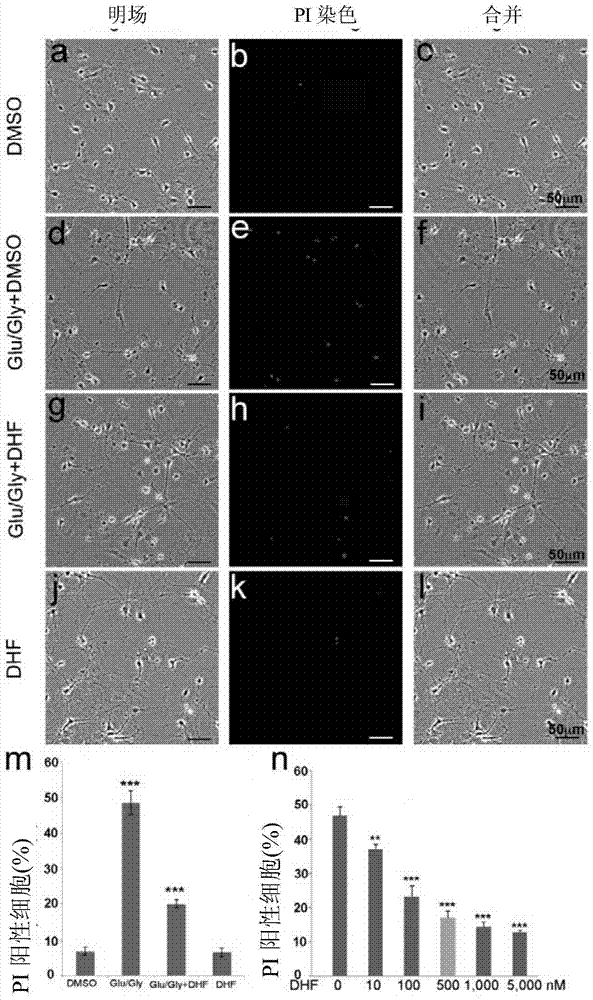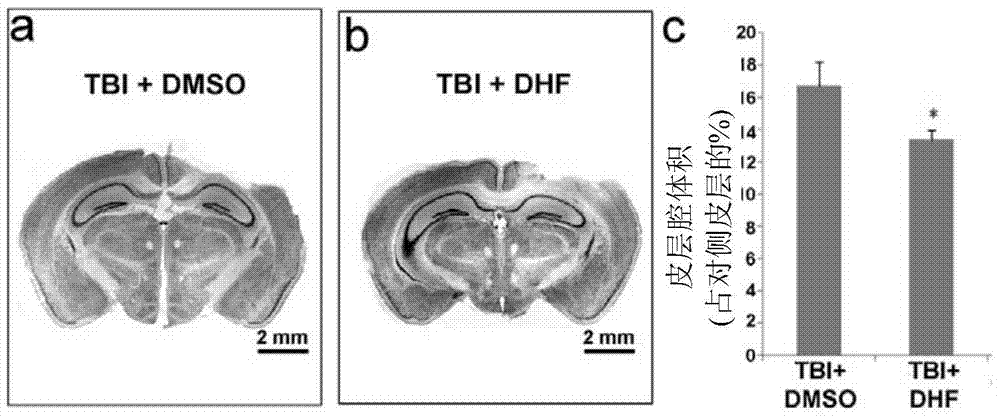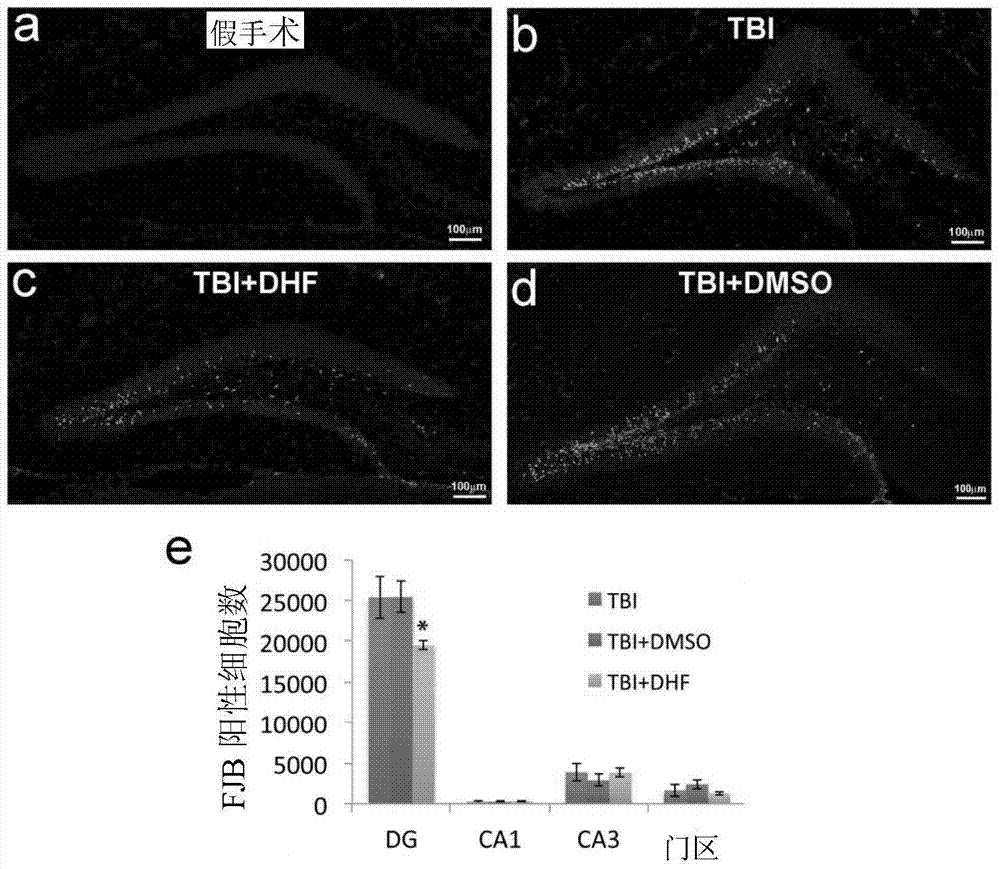Patents
Literature
31 results about "Traumatic brain damage" patented technology
Efficacy Topic
Property
Owner
Technical Advancement
Application Domain
Technology Topic
Technology Field Word
Patent Country/Region
Patent Type
Patent Status
Application Year
Inventor
Traumatic brain injury (TBI), a form of acquired brain injury, occurs when a sudden trauma causes damage to the brain.
Dispersive ultrasound technology as a diagnostic device for traumatic brain injuries
ActiveUS8834376B2Analysing fluids using sonic/ultrasonic/infrasonic wavesAnalysing solids using sonic/ultrasonic/infrasonic wavesSonificationInjury brain
Described herein is the use of ultrasound pulses at different frequencies to track the dispersion properties of intracranial tissues which may have been altered due to traumatic or other neurological brain injury. Dispersive ultrasound does not provide imaging, but it can provide data of significant diagnostic value by using decision support systems that can be trained as a medical diagnostic system for traumatic brain injuries applications to detect specific patterns of dispersion that are associated with specific intracranial injuries.
Owner:HER MAJESTY THE QUEEN AS REPRESENTED BY THE MINIST OF NAT DEFENCE OF HER MAJESTYS CANADIAN GOVERNMENT
Hepatocyte growth factor (HGF) mimics as therapeutic agents
InactiveUS20140094413A1Stable in vivoInexpensive to synthesizeNervous disorderDipeptide ingredientsTraumatic brain damageNeuro-degenerative disease
Small molecule, peptidic hepatocyte growth factors mimics, which act as both mimetics and antagonists, have been generated. These molecules have been shown or predicted to have therapeutic potential for numerous pathologies including dementia, Alzheimer's disease, Parkinson's disease, amyotrphic lateral sclerosis, and other neurodegenerative diseases, spinal cord injury, traumatic brain injury, diabetes and metabolic syndrome, cancer, and defective wound healing.
Owner:WASHINGTON STATE UNIVERSITY
Modulation of Splenocytes in Cell Therapy for Traumatic Brain Injury
InactiveUS20110318313A1Decreased immunocompetenceRecovery be complicateBiocideNervous disorderTraumatic brain damagePharmaceutical drug
The invention provides methods for treating traumatic brain injury. The invention is generally directed to treating traumatic brain injury by administering cells that have one or more of the following effects in an injured subject: interact with splenocytes, preserve splenic mass, increase proliferation of CD4+ and CD8+ T-cells, increase IL-4 and IL-10, and increase M2:M1 macrophage ratio at the site of injury. The invention is also directed to drug discovery methods to screen for agents that modulate the ability of the cells to have these effects. The invention is also directed to cell banks that can be used to provide cells for administration to a subject, the banks comprising cells having desired potency for achieving these effects.
Owner:ABT HOLDING COMPANY +1
Methods for predicting outcome in traumatic brain injury
InactiveUS20070184507A1Improve efficiencyEasy diagnosisMaterial analysis using wave/particle radiationRadiation/particle handlingCell damageBody fluid
Owner:NEXUS DX
Methods and devices for detecting protein in saliva samples
InactiveUS20180275119A1Cell receptors/surface-antigens/surface-determinantsBiological material analysisReference sampleSaliva sample
Methods and devices for detecting proteins in saliva are disclosed. The methods comprise obtaining a saliva sample from a subject suspected of having a traumatic brain injury (TBI). The sample is probed for a biomarker associated with TBI. The subject's biomarker profile is then compared to a reference sample or to a threshold value. The disclosed devices are able to detect in realtime the presence of biomarker proteins associated with TBI.
Owner:SLIVE INC
Detection and treatment of traumatic brain injury
InactiveUS20120282169A1Reduce physical distanceUltrasonic/sonic/infrasonic diagnosticsSurgeryMedicineTraumatic injury
The present invention relates to the detection of traumatic brain injury by detecting Aβ protein aggregates associated with traumatic brain injury. These Aβ protein aggregates are detected using peptide and peptide mimic probes that preferentially associate with Aβ protein aggregates associated with traumatic brain injury.
Owner:ADLYFE INC
Oral Chinese herbal preparation for treating post-traumatic brain syndrome
InactiveCN102631579BReduce dosageFast absorptionNervous disorderInanimate material medical ingredientsLicorice rootsTherapeutic effect
Owner:HOSPITAL NO 3 CPLA
Chinese herbal preparation for treating post-traumatic brain syndrome
InactiveCN104096144AQuick resultsDefinite curative effectNervous disorderPlant ingredientsHerbal preparationsSequela
The invention discloses a Chinese herbal preparation for treating post-traumatic brain syndrome. The following drug substances are selected by weight: 10-20 g of dogwood, 10-20 g of dens draconis, 10-20 g of akebiaquinata, 10-20 g of panax notoginseng, 5-10 g of antelope horn cornu saigae tataricae, 8-12 g of fructus viticis, 8-15 g of peach kernel, 10-20 g of safflower, 8-12 g of ground beeltle, 5-10 g of caulis bambusae in taeniam, 10-20 g of radix linderae, 8-12 g of rhizoma sparganii, 8-12 g of tall gastrodis tuber and 8-12 g of fleece flower root. The selected herbs are carefully formulated to take the effects of benefiting qi for activating blood circulation, removing blood stasis and cooling heat, dredging the channel, dissipating phlegm for resuscitation, relieving swelling and pain and the like. Clinical application shows that the Chinese herbal preparation has the advantages of high efficiency, definite curative effect, high cure rate, low price and no toxic or side effects when used for treating the post-traumatic brain syndrome.
Owner:牟会玉
Modulation of Splenocytes in Cell Therapy for Traumatic Brain Injury
InactiveUS20160256502A1Decreased immunocompetenceRecovery be complicateNervous disorderAntipyreticTraumatic brain damagePharmaceutical drug
The invention provides methods for treating traumatic brain injury. The invention is generally directed to treating traumatic brain injury by administering cells that have one or more of the following effects in an injured subject: interact with splenocytes, preserve splenic mass, increase proliferation of CD4+ and CD8+ T-cells, increase IL-4 and IL-10, and increase M2:M1 macrophage ratio at the site of injury. The invention is also directed to drug discovery methods to screen for agents that modulate the ability of the cells to have these effects. The invention is also directed to cell banks that can be used to provide cells for administration to a subject, the banks comprising cells having desired potency for achieving these effects.
Owner:ABT HOLDING COMPANY +1
Use of icariin in prevention and treatment of traumatic brain injury
InactiveCN103349667AReduce brain water contentHas multi-target neuroprotective effectsOrganic active ingredientsNervous disorderTraumatic brain damageEpimedium
The present invention discloses an application of icariin in preparation of drugs for prevention and treatment of traumatic brain injury. According to the present invention, icariin is adopted to prepare drugs for prevention and treatment of traumatic brain injury, a multi-target point nerve protection effect of the icariin is utilized, and in vivo animal experiment results show that the icariin has a significant neuroethology improvement function, and has effects of significant brain water content decrease, significant TNF-alpha mRNA expression decrease, and significant IL-1beta mRNA expression decrease; and the new use of the specific monomer icariin in the known Chinese herbal epimedium in preparation of drugs for prevention and treatment of traumatic brain injury is explored, and the new application field is developed.
Owner:ZUNYI MEDICAL UNIVERSITY
Traumatic brain injury biomarker diagnostic
ActiveUS20090041830A1Pharmaceutical delivery mechanismDisease diagnosisBlast induced traumatic brain injuryBiomarker (petroleum)
Blast Induced Traumatic Brain Injury or bTBI needs objective and subjective testing that can be made quickly in the field. Subjective tests using shapes, textures, tastes and odors as disposable, edible candies on a stick may be carried in a field kit. An objective test that employs a similar candy on a stick bearing antibodies bound to bioluminescent marker reads whether molecules believed to be released into the mouth from an injured brain are present if they bind to the specific antibody which may then be read.
Owner:NORTHROP GRUMMAN SYST CORP
Optical-activity neoclausenamidone derivative and application thereof
ActiveCN109627199ANovel structureImprove protectionNervous disorderOrganic chemistryDiseaseTraumatic brain damage
The invention discloses an optical-activity neoclausenamidone derivative and application thereof. The structural formula of a compound is shown in the description (I), wherein R is C1-C4 paraffin, C2-C4 alkylene and C2-C4 alkyne or -COR1; R1 is selected from C1-C4 substituted or non-substituted paraffin, C1-C4 substituted or non-substituted alkylene and substituted or non-substituted phenyl or heterocyclic-ring aromatic rings; the substituent groups in R1 comprise phenyl, halogenated phenyl, C1-C4 alkyl-substituted phenyl, C1-C4 alkyl-halide-group-substituted phenyl, naphthoxy and pyridine orthiophene. The compound is novel in structure, has a great protection function on epencephalon particle nerve cell injuries induced by glutamic acid and nerve cell or tissue injuries caused by brain ischemia and can be used as a nerve cell protective agent, the injury of glutamic acid or oxygen and glucose deprivation to nerve cells is reduced, and accordingly neurodegenerative diseases, such as cerebral apoplexy, traumatic brain damage and senile dementia, caused by the injury are prevented and / or treated. The compound is shown in the description.
Owner:GUANGDONG PHARMA UNIV
Construction method of traumatic brain injury animal model
InactiveCN111820186AGood repeatabilityCopy Graded Brain Injury OKAnimal husbandryIntraperitoneal routeTraumatic brain damage
The invention discloses a construction method of a traumatic brain injury animal model, and relates to the technical field of brain injury animal models. The construction method comprises the following steps: selecting a normal rat or mouse, and performing intraperitoneal injection anesthesia on the selected normal rat or mouse; injecting a protective agent into an experimental animal and the traumatic brain injury animal model before operation; and constructing the traumatic brain injury animal model under different conditions and methods. The protective agent is injected into the experimental animal while the brain injury animal model is constructed, the brain injury animal model is more similar to a clinically generated brain injury mechanism, the application range is relatively wide, the influence of individual difference is small, the repeatability is good, and a basis can be provided for clinically searching corresponding treatment means and measures.
Owner:重庆市第七人民医院
Synaptotagmin and Collapsin Response Mediator Protein as Biomarkers for Traumatic Brain Injury
ActiveUS20100047817A1Information can be usedReduce in quantityDisease diagnosisBiological testingIntact proteinBiomarker (petroleum)
Collapsin response mediator proteins (CRMPs) decreased in tissue and increased in biological fluids after neural injury from traumatic brain injury (TBI). Significant decreases of CRMP1, CRMP2, CRMP4 and CRMP5 were accompanied by the appearance of distinct 58 kDa (CRMP-2) or 55 kDa (CRMP-4) breakdown products from proteolytic cleavage by calpain. Synaptotagmin breakdown products were also associated with TBI and could be detected along with intact protein in human cerebral spinal fluid (CSF). Both biomarkers were detected in human biofluid and related to recovery from traumatic brain injury.
Owner:UNIV OF FLORIDA RES FOUNDATION INC +1
Prognostic and diagnostic glycan-based biomarkers of brain damage
ActiveUS10739335B2Peptide/protein ingredientsMicrobiological testing/measurementTraumatic brain damageGlycan
The present disclosure relates to glycan-based biomarkers for the diagnosis or prognosis of brain damage, such as traumatic brain injury (TBI).
Owner:MEDICORTEX FINLAND OY
Preparation method of brain acellular matrix
InactiveCN114191614AEfficient removalHigh decellularization rateTissue regenerationProsthesisTraumatic brain damageAcellular matrix
The invention discloses a preparation method of a brain acellular matrix. The preparation method comprises the following steps: i) extracting the brain of a mouse as a raw material of the acellular matrix; and ii) carrying out decellularization treatment on the brain of the mouse by adopting a physical method, a chemical method and a biological method to obtain the brain decellularization matrix. According to the method, the biological activity and integrity of the biological tissue can be well kept, multiple key proteins and factors are reserved, and the decellularization rate is high. The brain acellular matrix prepared on the basis of the method can be used for constructing a composite biological scaffold and culturing stem cells, and is applied to the aspects of repairing and regenerating traumatic brain injury.
Owner:EAST CHINA UNIV OF SCI & TECH
3alpha, 5beta-neuroactive steroids for the treatment of epilepsy and seizure diseases
PendingUS20220162257A1Suppressed convulsive seizuresReduce morbidityOrganic active ingredientsNervous disorderConvulsionDisease
3α5β-steroid compounds of general formula I is disclosed. These compounds are useful in the treatment of epilepsy or comorbidities associated with epilepsy or conditions associated with convulsions, such as seizures associated with hypoxia, seizures associated with traumatic brain damage, seizures associated with intoxication, pathological changes caused by hyperexcitation, or in treatment of conditions accompanying epilepsy, such as affective disorders, depression, post-traumatic stress disorder (PTSD) and stress-related diseases, anxiety, schizophrenia and psychotic disorders, related ischemic CNS damage, neurodegenerative changes and disorders, multiple sclerosis. The compounds of general formula I also show age-specific efficacy.
Owner:INST OF ORGANIC CHEM & BIOCHEMISTRY OF THE ACAD OF SCI OF THE CZECH REPUBLIC +1
Method for treatment of traumatic brain injury targeting aggregated peptides
ActiveUS11327080B2Nervous disorderImmunoglobulins against animals/humansTraumatic brain damagePharmacology
A method of preventing, alleviating or treating traumatic brain injury in an individual comprises administering to the individual a therapeutically effective and physiologically acceptable amount of an agent capable of reducing the amount of one or more aggregated forms of one or more peptides in the brain. An agent capable of reducing the amount of one or more aggregated forms of one or more peptides in the brain is suitable for use in preventing, alleviating or treating traumatic brain injury. A method for predication of the risk of an individual for complications after a traumatic brain injury comprises detecting one or more aggregated forms of one or more peptides prone to aggregate as a result of a traumatic brain injury event, in the brain of the individual, wherein an increased level of such aggregates in the brain indicates an increased risk for complications.
Owner:BIOARCTIC AB
Application of glibenclamide composition in preparation of medicine for treating increase of brain water content
PendingCN114642673AExtend your lifeImprove the quality of lifePowder deliveryNervous disorderTraumatic brain damageCyclodextrin
The invention relates to the field of medicine application, in particular to application of a glibenclamide composition in preparation of a medicine for treating or preventing brain water content increase caused by traumatic brain injury, and the glibenclamide composition is a glibenclamide cyclodextrin composition for injection. Preferably, the glibenclamide and cyclodextrin composition for injection is prepared from glibenclamide, cyclodextrin and an additive, experimental results show that each dose of the glibenclamide cyclodextrin composition for injection can significantly reduce the brain water content of rats with traumatic brain injury.
Owner:JIANGSU AOSAIKANG PHARMA CO LTD
Dihydropyridines for the treatment of cognitive impairment or traumatic brain injury
ActiveUS20210230117A1Inhibitory activityInhibit expressionNervous disorderOrganic chemistryTraumatic brain damageDihydropyridine
A genus of dihydropyridine chemical modulators of synaptojanin is disclosed. These modulators are selective inhibitors of synaptojanin 1 and may be used to treat cognitive impairment or traumatic brain injury, including promoting regeneration in cases of traumatic brain injury, or for treating neurodegenerative disorders.
Owner:MT SINAI SCHOOL OF MEDICINE +1
Il-10, s100b and h-fabp markers and their use in detecting traumatic brain injury
PendingCN110770586AStrong specificityExclude CT scanDisease diagnosisBiological testingTraumatic brain damagePsychiatry
The invention relates to IL-10, S100B or H-FABP as biomarkers or a combination of these biomarkers and their use in detecting traumatic brain injury or mild traumatic brain injury (mTBI).
Owner:UNIVERSITY OF GENEVA
A kind of brain targeting exosome, its preparation method and application
ActiveCN109701038BRealize in vivo imagingImprove targetingNervous disorderIn-vivo testing preparationsDiseaseTraumatic brain damage
The present invention discloses a brain-targeted exosome which comprises an exosome capable of passing through blood brain barrier and a fluorescent material with an imaging function, wherein the fluorescent material is distributed in the entocoele of the exosome. The invention also discloses a preparation method of the brain-targeted exosome, and the method comprises: enabling brain-targeted neural stem cells to secret an exosome with a brain-targeted peptide; collecting and purifying the exosome; and enabling the fluorescent material to enter the entocoele of the exosome so as to obtain thebrain-targeted exosome. The brain-targeted exosome provided by the present invention is mainly formed by natural materials, has a function of passing through blood brain barrier, can overcome the problem that traditional nano-particles have low efficiency of passing through blood brain barrier and have toxic or side effect, overcomes the difficulty of brain targeting of traditional particles, andprovides a visible and accurate treatment strategy for treating brain-related diseases such as traumatic brain injury and brain tumors.
Owner:SHANGHAI UNIV +1
Preparation method of injectable photocuring hemostatic hydrogel for traumatic brain injury
PendingCN114773629AControllable degradation rateImprove mechanical propertiesSurgical adhesivesPharmaceutical delivery mechanismTissue repairMeth-
The invention discloses a preparation method of injectable light-cured hemostatic hydrogel for traumatic brain injury, which comprises the following steps: by taking hyaluronic acid as a raw material, carrying out acylation modification on the hyaluronic acid by utilizing methacrylic anhydride, and introducing photo-crosslinking to obtain cross-linked network hydrogel; photocrosslinking is adopted, an activated network is generated for natural polymer hydrogel, the grafting rate of methylacryloylated HAMA is controlled according to the amount of methacrylic anhydride, an injectable gel material with the controllable degradation rate and enhanced mechanical property is obtained, and then oxidized cellulose is combined, so that the free radical oxidation resistance of the injectable gel material is higher; compared with the prior art, the injectable hydrogel has the advantages that the injectable hydrogel is more smooth, higher in slow-release efficiency, more beneficial to hemostasis and repair and excellent in mechanical property and biocompatibility, and in addition, the injectable photo-curing hydrogel is bonded with the synthetic fiber cell growth factor and the cyclosporin A, so that the injectable hydrogel has the functions of resisting inflammation and promoting tissue repair, and development and utilization of injectable functional hydrogel materials are facilitated.
Owner:KUNMING UNIV OF SCI & TECH
Branched-chain amino acids for the treatment of neuronal injury
Disclosed are compositions comprising branched chain amino acids, N-acetylcysteine and acetyl-L-carnitine for use in treating or preventing neuronal injury in a subject, e.g., a subject at risk of orhaving traumatic brain injury or stroke.
Owner:AXCELLA HEALTH INC
Application of nicotinic glycoside or analogue thereof in preparation of medicine for preventing and treating traumatic brain injury
ActiveCN114588173AReduce leakageReduce the degree of edemaOrganic active ingredientsNervous disorderGlycosideTraumatic brain damage
The invention relates to the technical field of medicines, in particular to novel application of nicotinic glycoside (kaempferol-3-O-rutinoside) or analogues thereof in preparation of medicines for preventing and treating traumatic brain injury. The compound has an obvious protection effect on traumatic brain injury of rats, can obviously relieve the encephaledema degree of the rats after injury, improves the behavioral functions after injury, and can improve movement and cognitive impairment and the like within a period of time after injury. Therefore, the compounds represented by nicotinic glycoside can be used for preparing medicines for preventing and treating traumatic brain injury.
Owner:THE NAVAL MEDICAL UNIV OF PLA
Application of ursolic acid derivatives in the preparation of medicines for treating nervous system diseases
ActiveCN113101293BWide range of usesOrganic active ingredientsNervous disorderTraumatic brain damageNervous system
The invention belongs to the field of medicine and discloses the application of a class of ursolic acid derivatives in the preparation of medicines for treating nervous system diseases. The present invention utilizes microbial transformation technology to successfully modify the structure of ursolic acid, and obtains 4 novel compounds with structural modification of the mother nucleus, which are confirmed by in vitro nerve cell injury protection tests and neuroglial cell inflammation tests. The compound has better nerve cell protection activity and anti-neurinflammation activity, can be used as an active ingredient of drugs for treating neurodegenerative diseases, traumatic brain injury, and stroke, and has wide applications.
Owner:NANTONG UNIVERSITY
Cell-free in vitro models for traumatic brain injury and methods for preparation and use thereof
InactiveUS20160290903A1Connective tissue peptidesMaterial strength using tensile/compressive forcesTraumatic brain damageCell-Extracellular Matrix
The present invention provides in vitro models of non-penetrating traumatic brain injury, which include a network of extracellular matrix (ECM) protein fibrils, methods for preparing such models, and uses of such models for, e.g., identifying compounds suitable for preventing or treating non-penetrating traumatic brain injury.
Owner:PRESIDENT & FELLOWS OF HARVARD COLLEGE
Traumatic brain injury biomarker diagnostic
ActiveUS7955617B2Pharmaceutical delivery mechanismDisease diagnosisBlast induced traumatic brain injuryOrganism
Owner:NORTHROP GRUMMAN SYST CORP
Markers and their use in brain injury
PendingUS20220137072A1Reduce CT scanReliable detectionNervous disorderAntipyreticTraumatic brain damageInjury brain
The invention relates to a combination of biomarkers and their use in brain injury or mild traumatic brain injury (mTBI) detection. The invention also relates to methods of treating the individual diagnosed with a traumatic brain injury (TBI) or a mild traumatic brain injury (mTBI) using such biomarkers.
Owner:UNIVERSITY OF GENEVA +1
Compositions and methods for treating and preventing neuronal damage from traumatic brain injury
ActiveCN104902891BPrevent or suppress deathOrganic active ingredientsNervous disorderNeurophysinsTraumatic brain damage
Methods and compounds for treating, inhibiting, and preventing traumatic brain injury are provided. Methods include administering 7,8-dihydroxyflavone and derivatives thereof.
Owner:陈锦辉
Features
- R&D
- Intellectual Property
- Life Sciences
- Materials
- Tech Scout
Why Patsnap Eureka
- Unparalleled Data Quality
- Higher Quality Content
- 60% Fewer Hallucinations
Social media
Patsnap Eureka Blog
Learn More Browse by: Latest US Patents, China's latest patents, Technical Efficacy Thesaurus, Application Domain, Technology Topic, Popular Technical Reports.
© 2025 PatSnap. All rights reserved.Legal|Privacy policy|Modern Slavery Act Transparency Statement|Sitemap|About US| Contact US: help@patsnap.com
